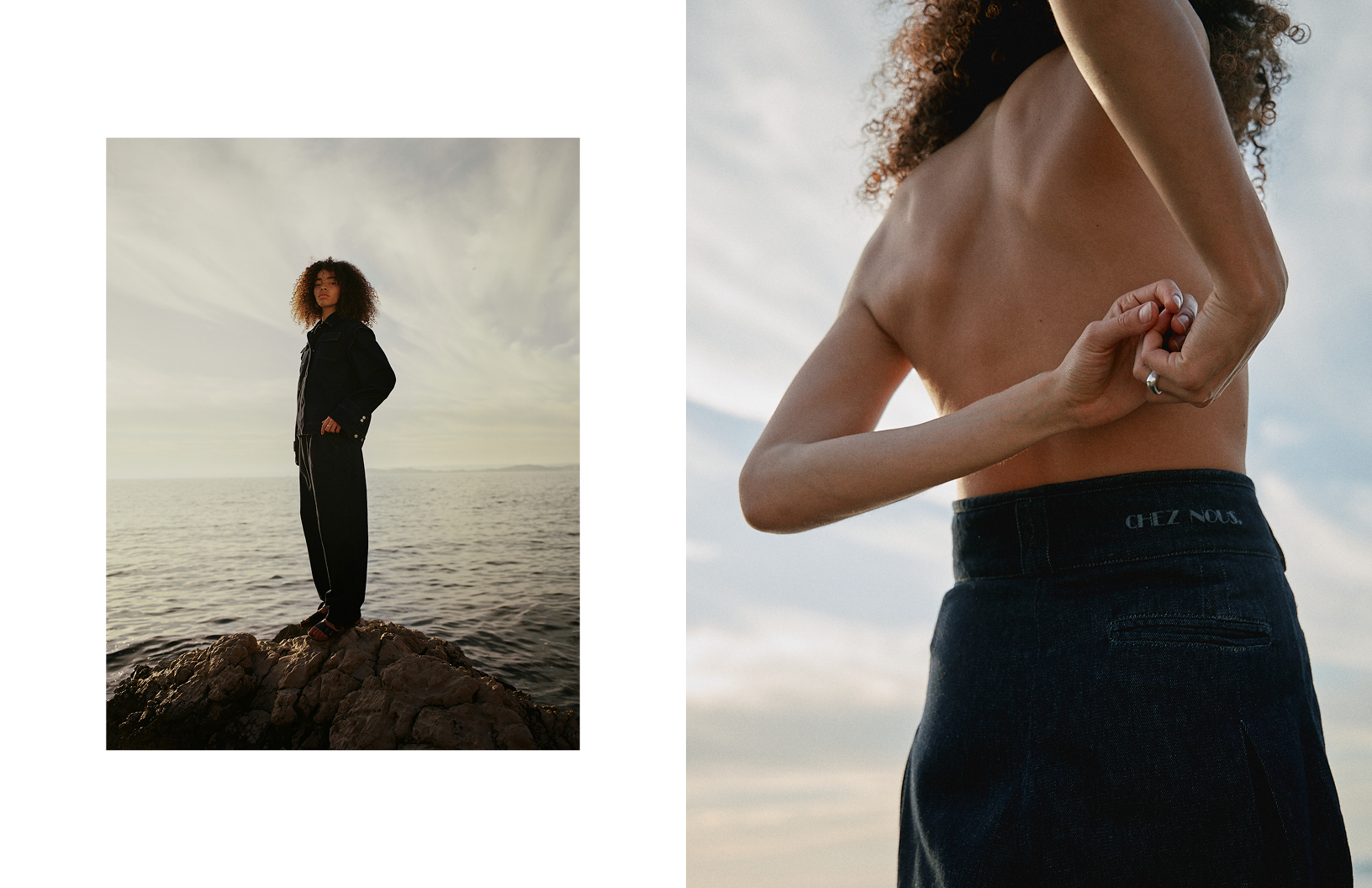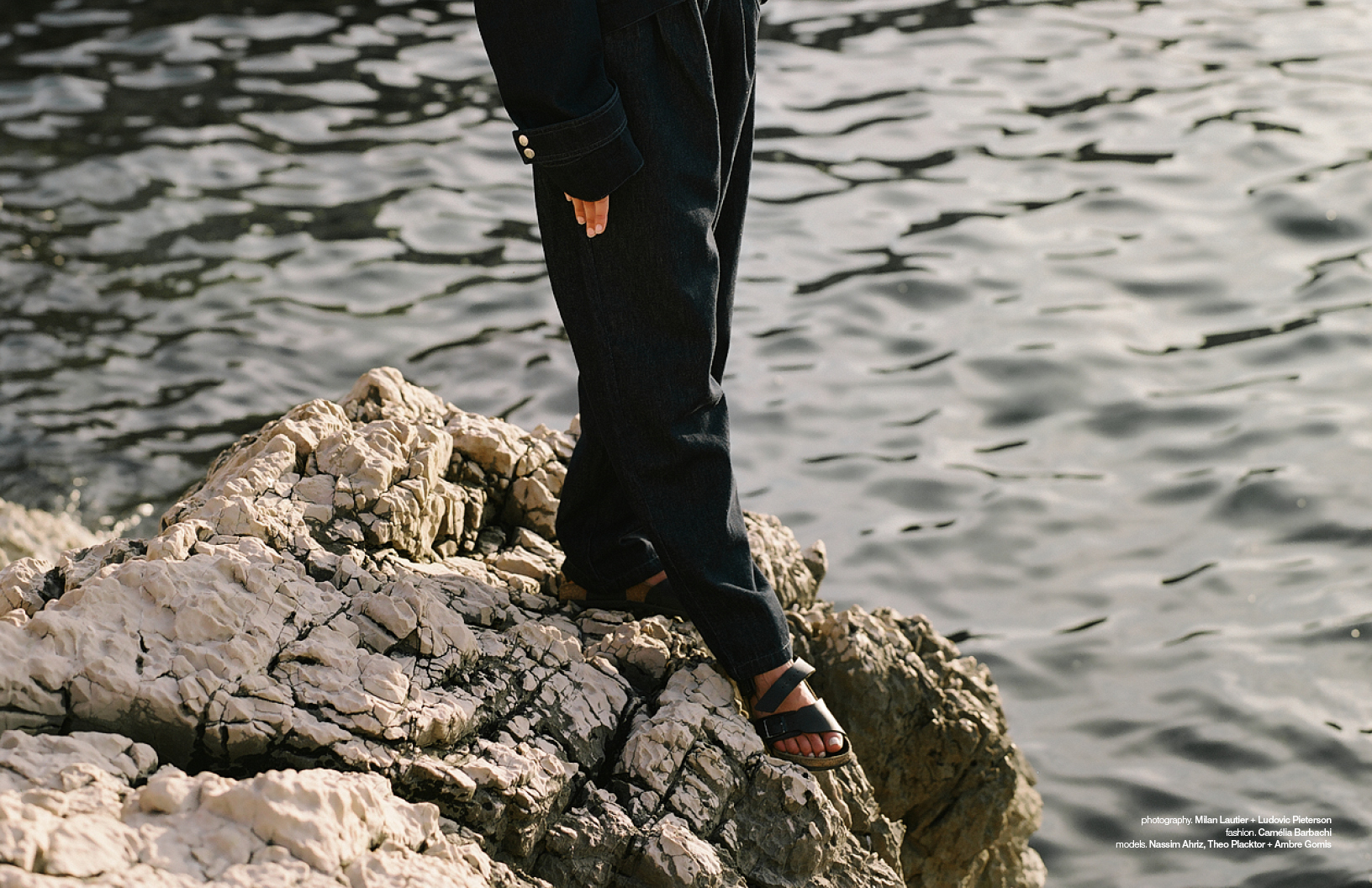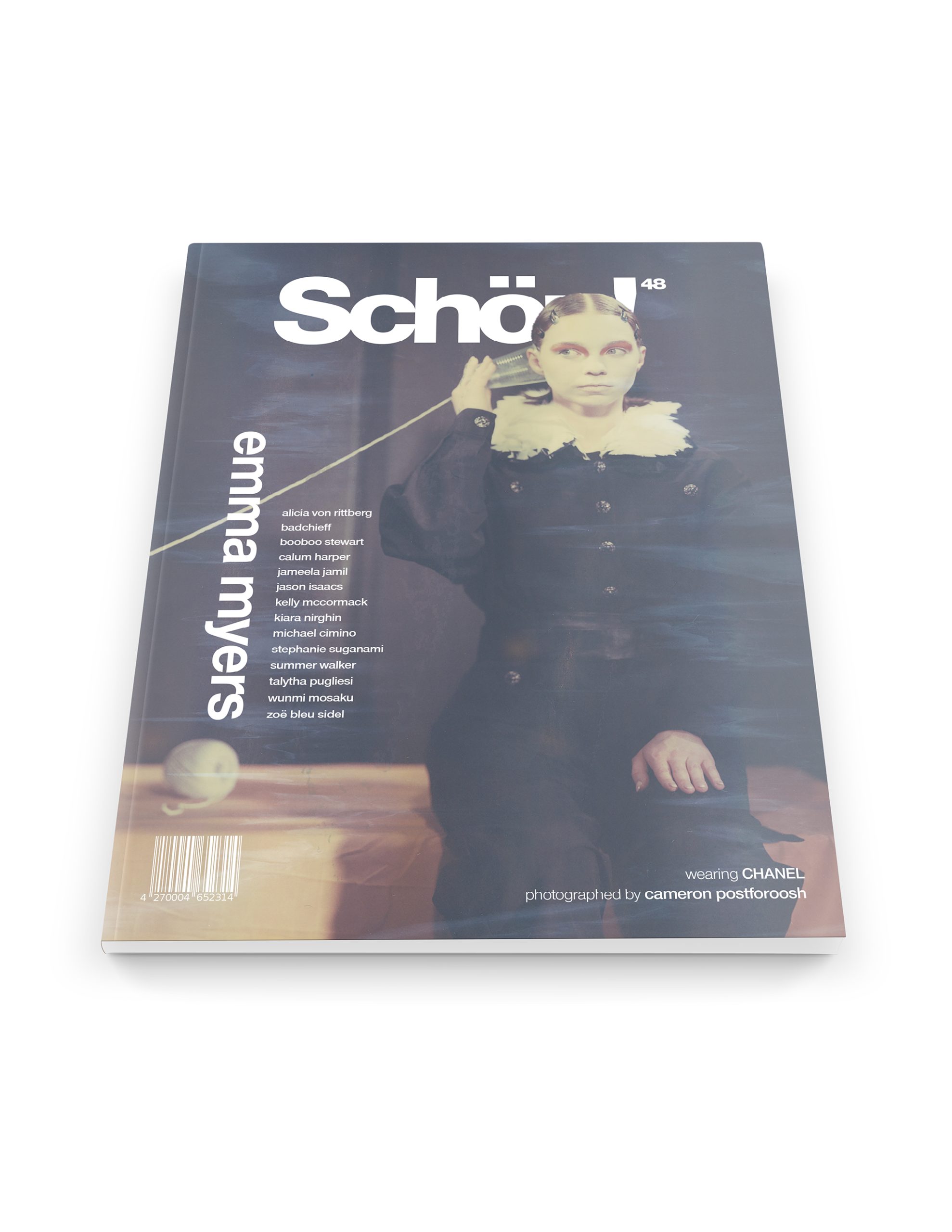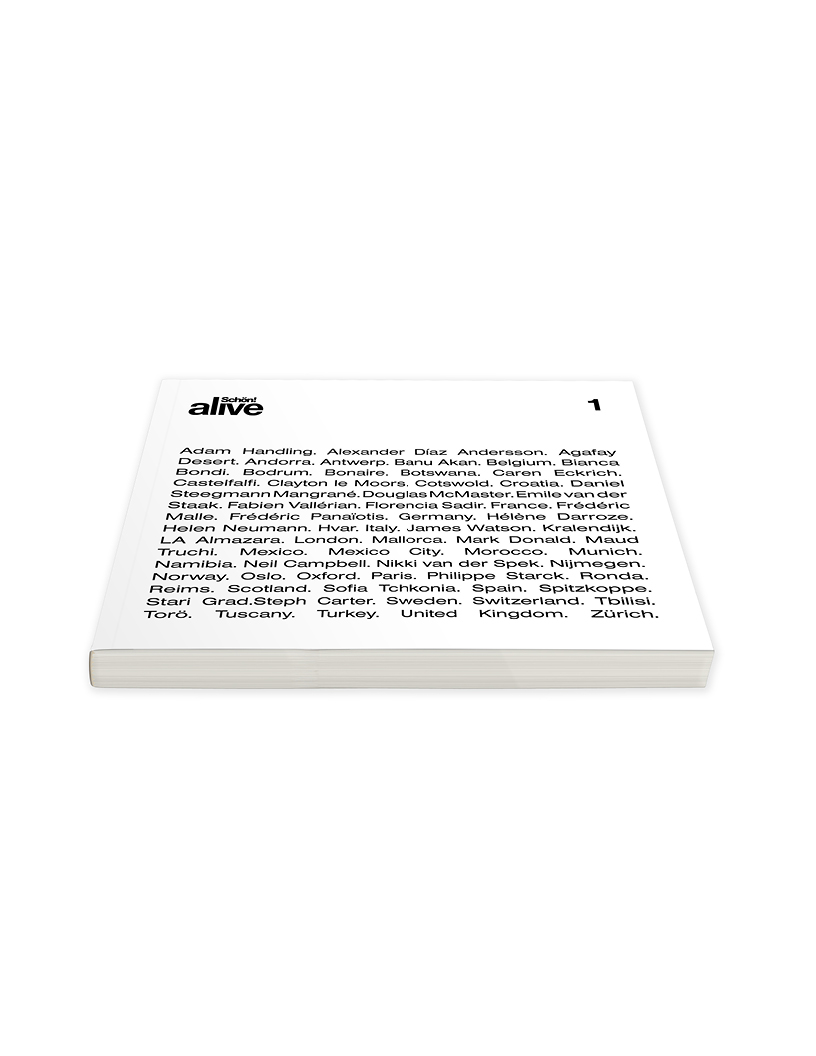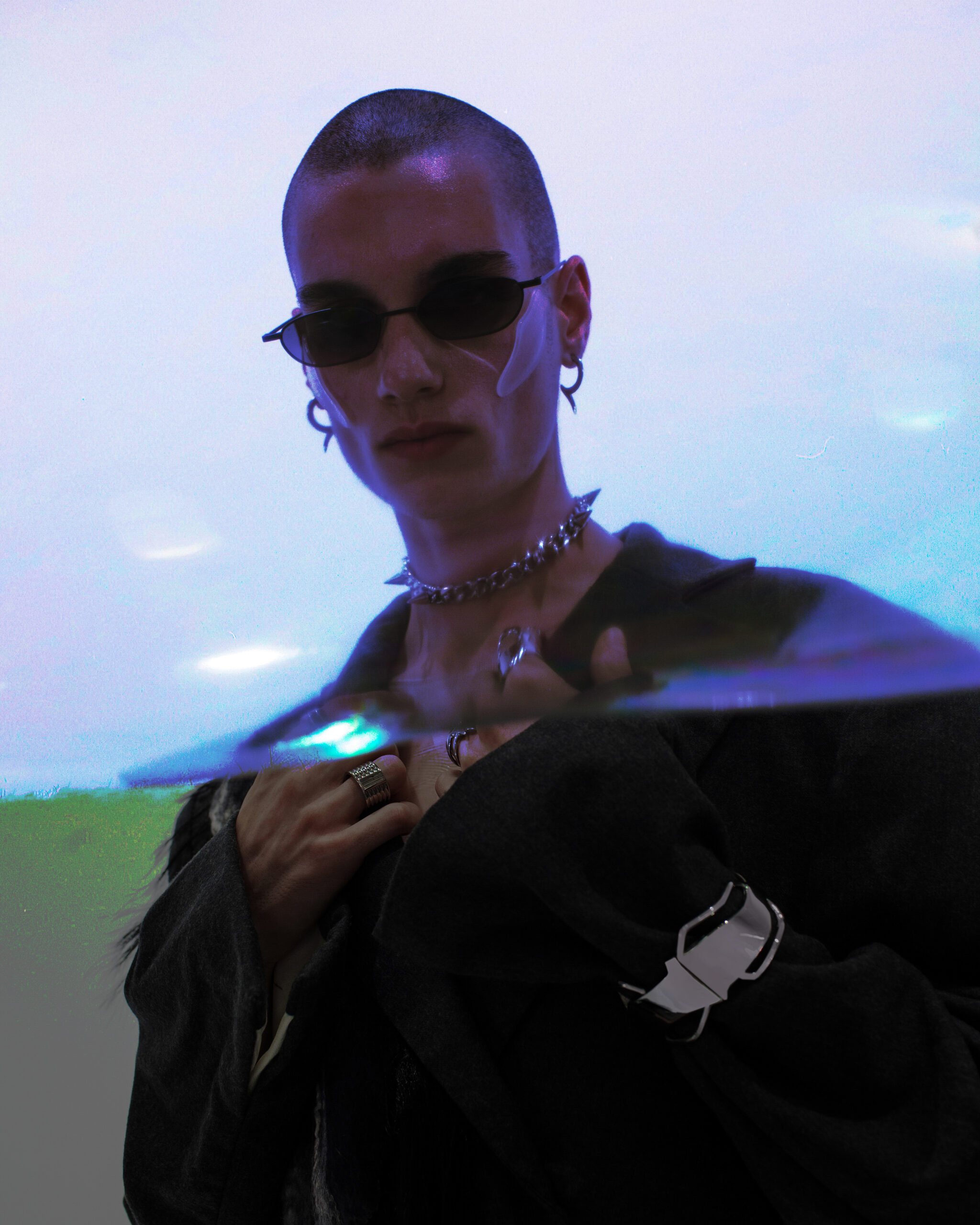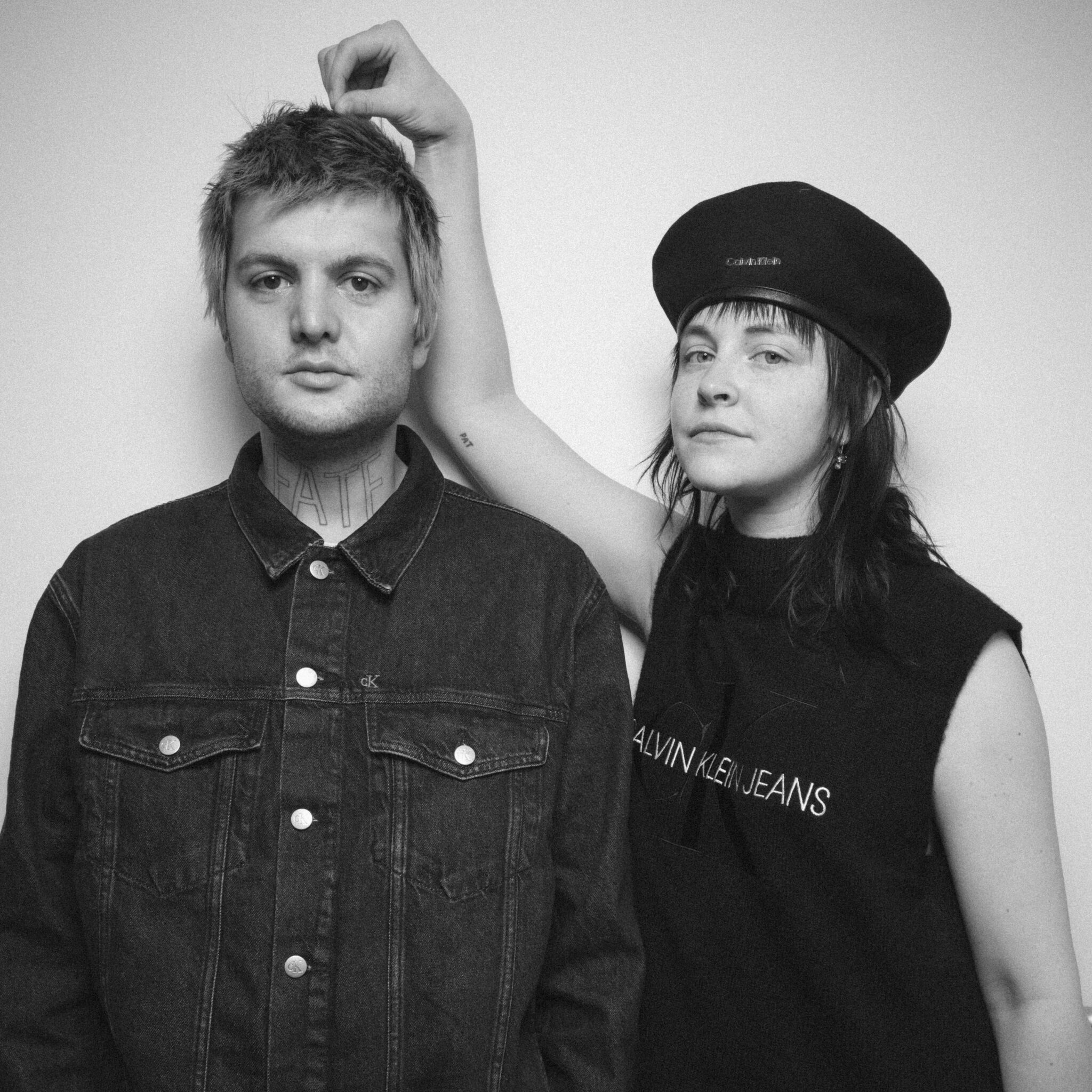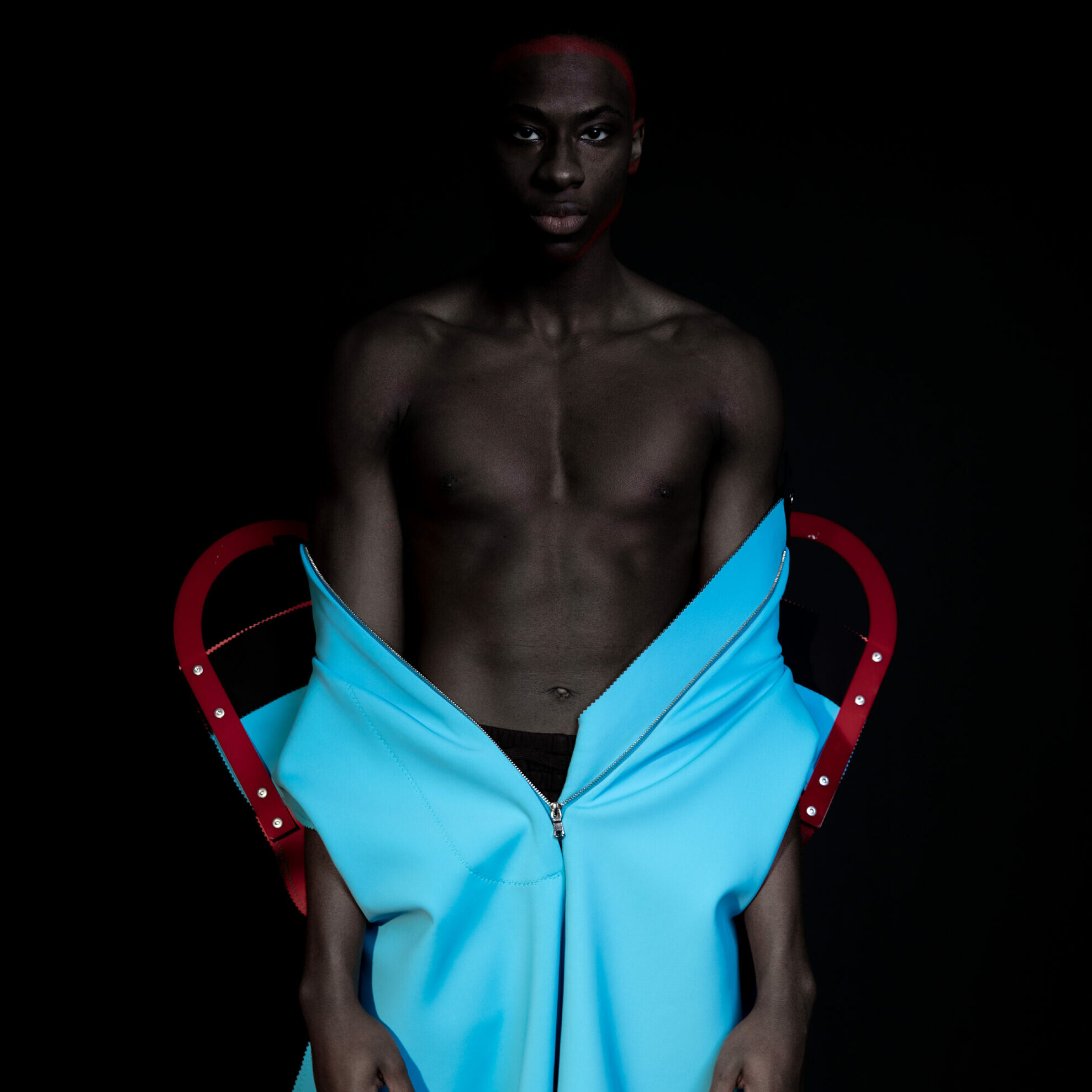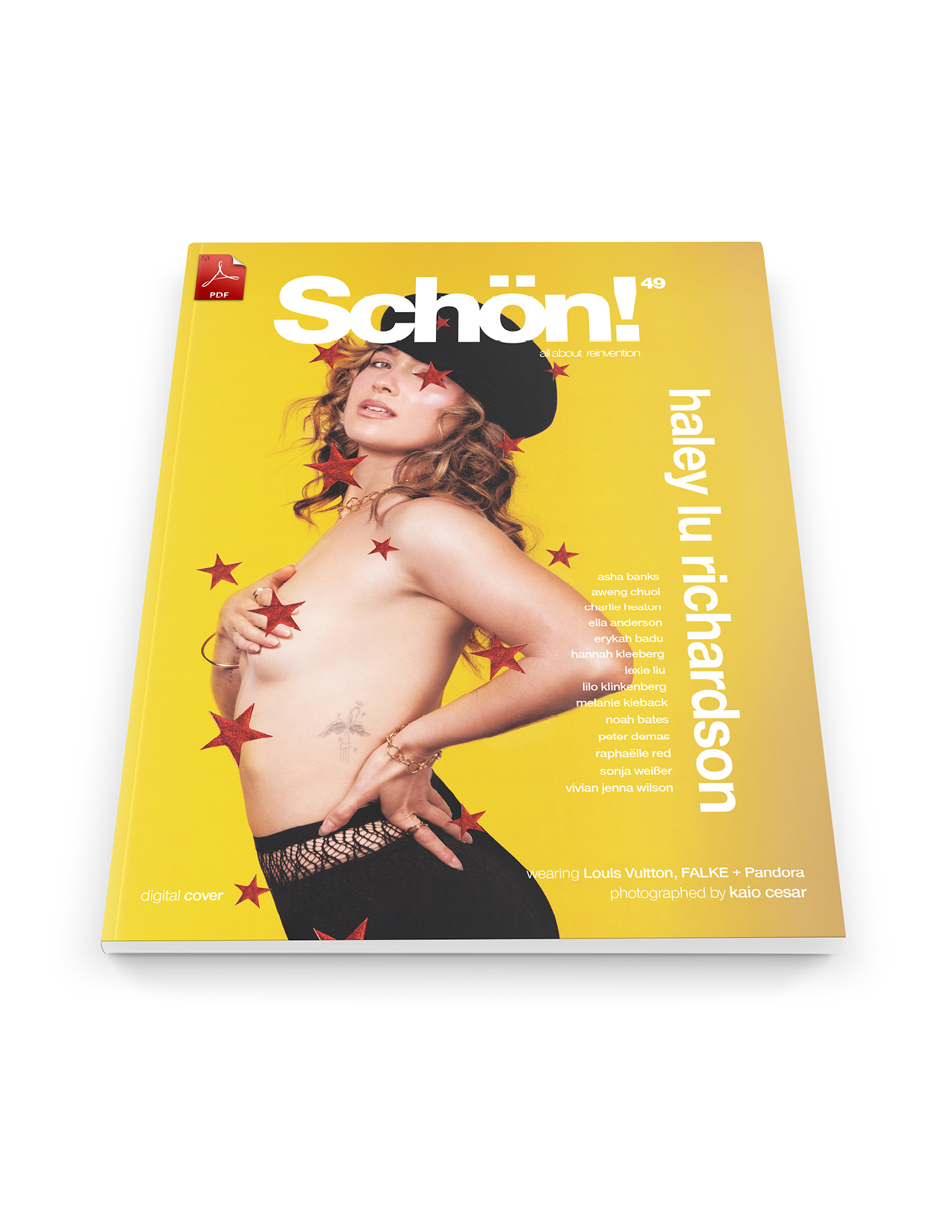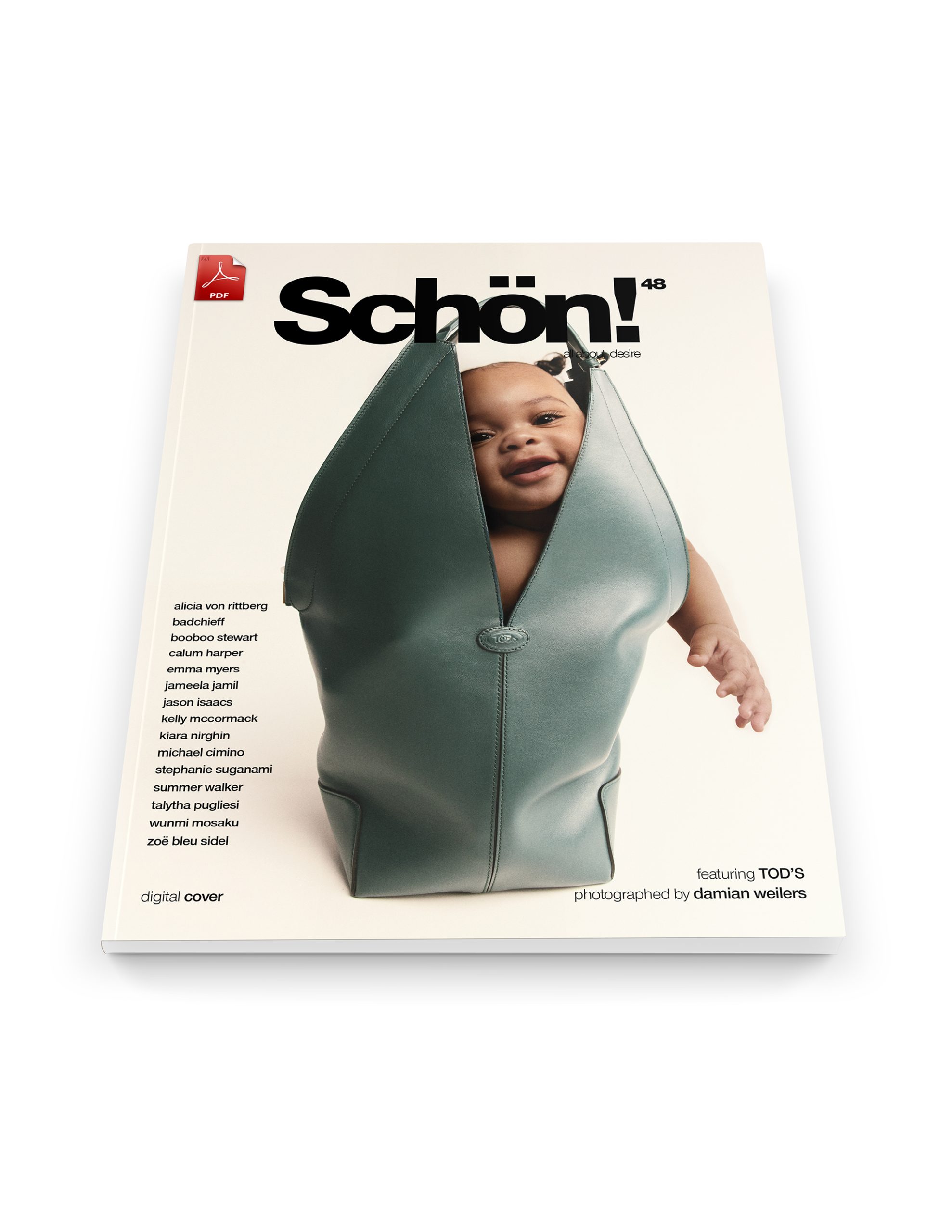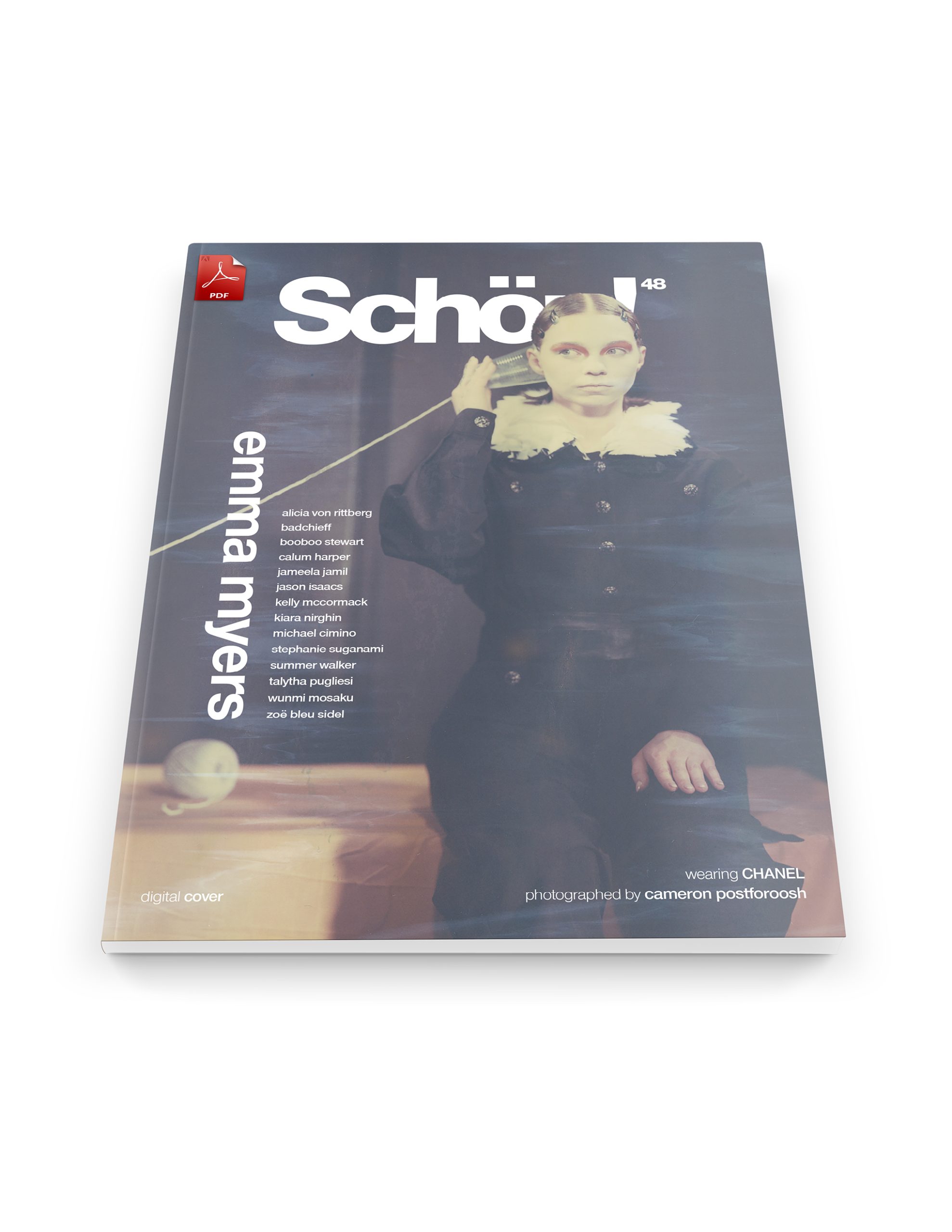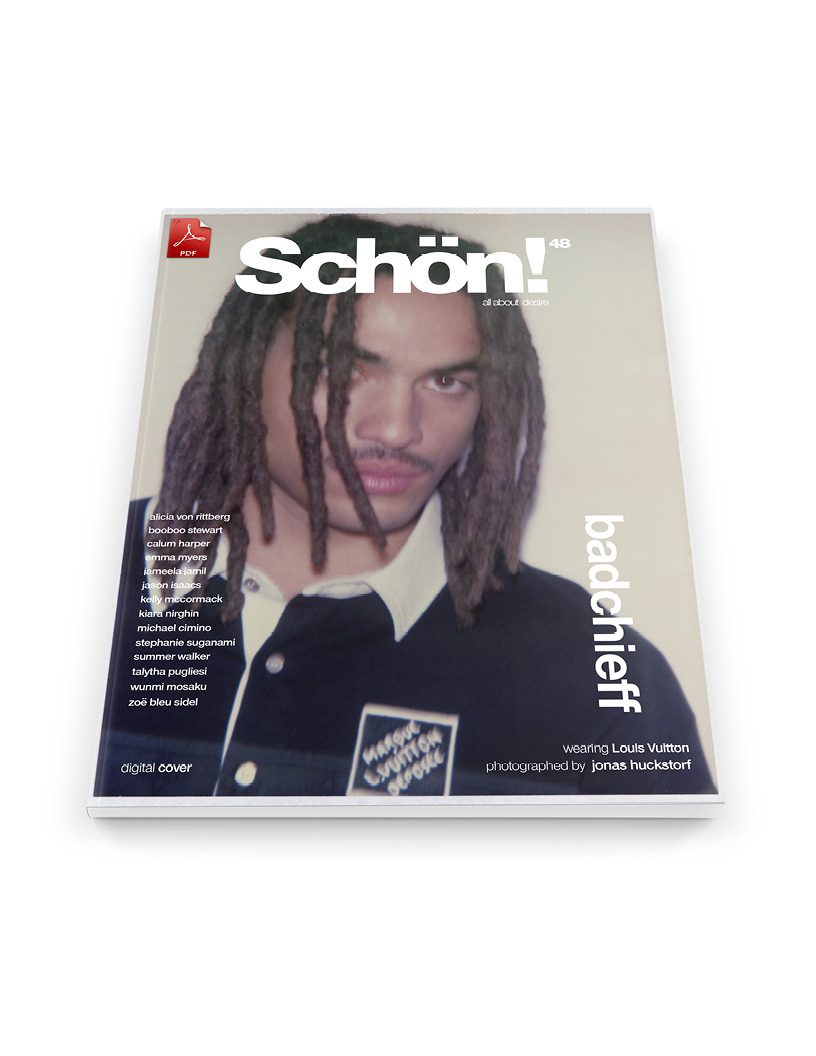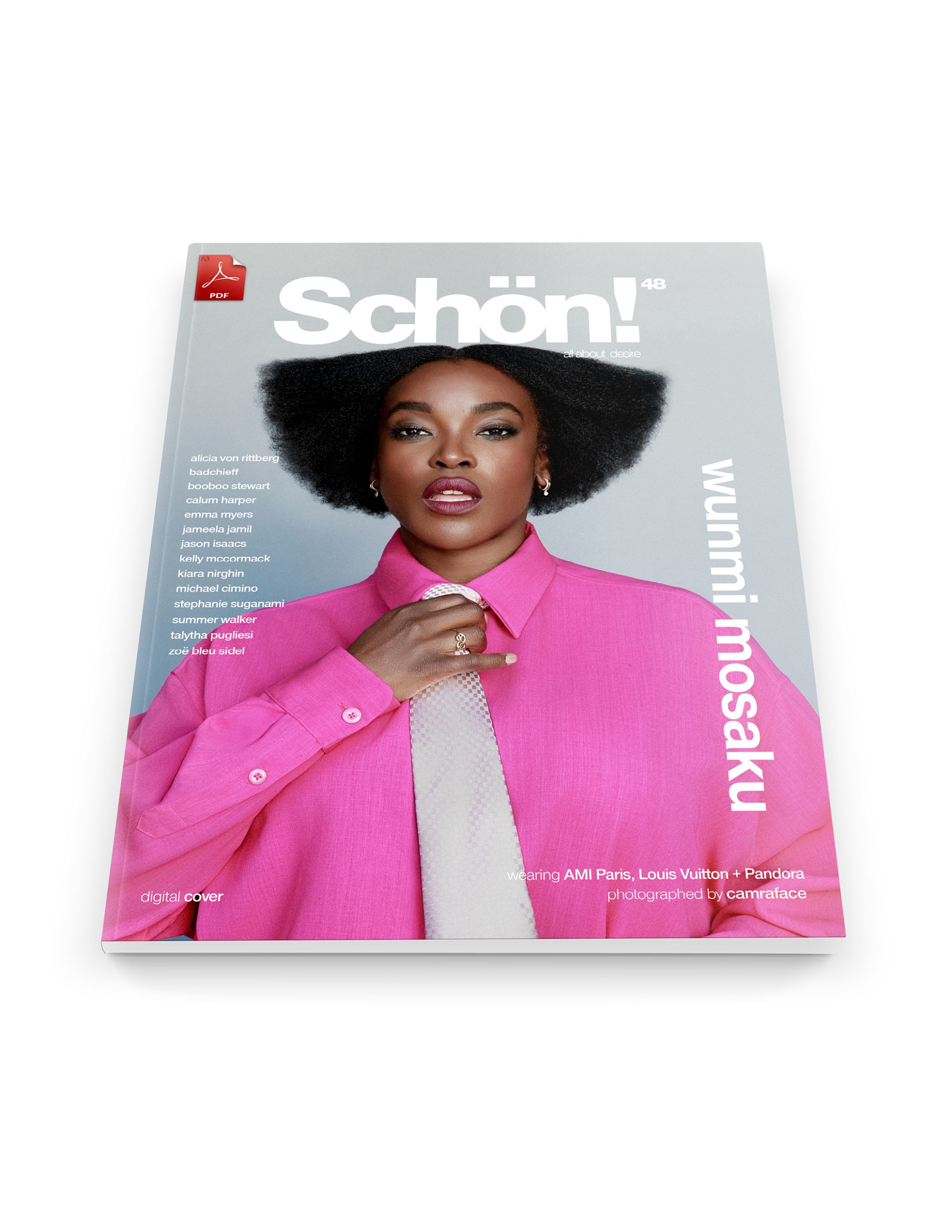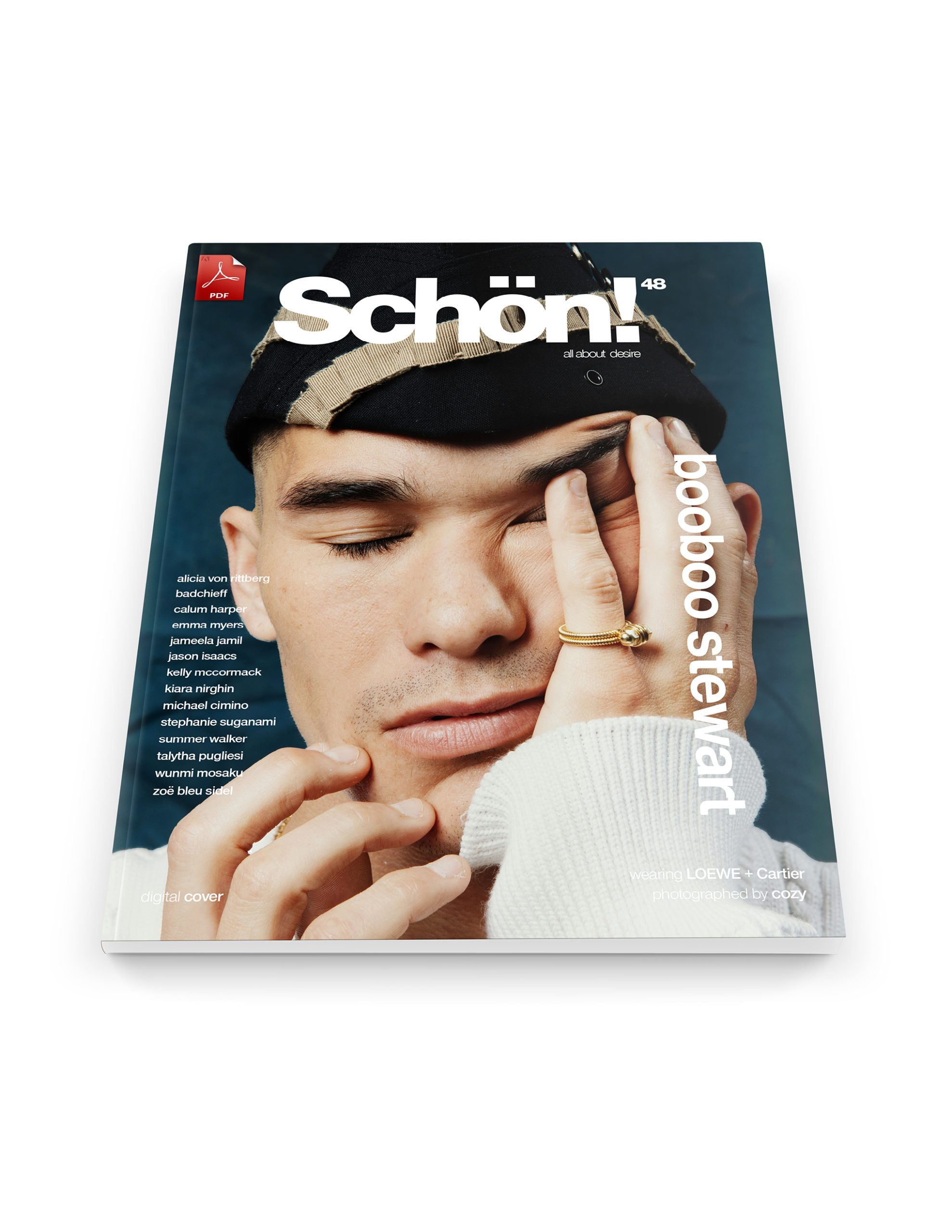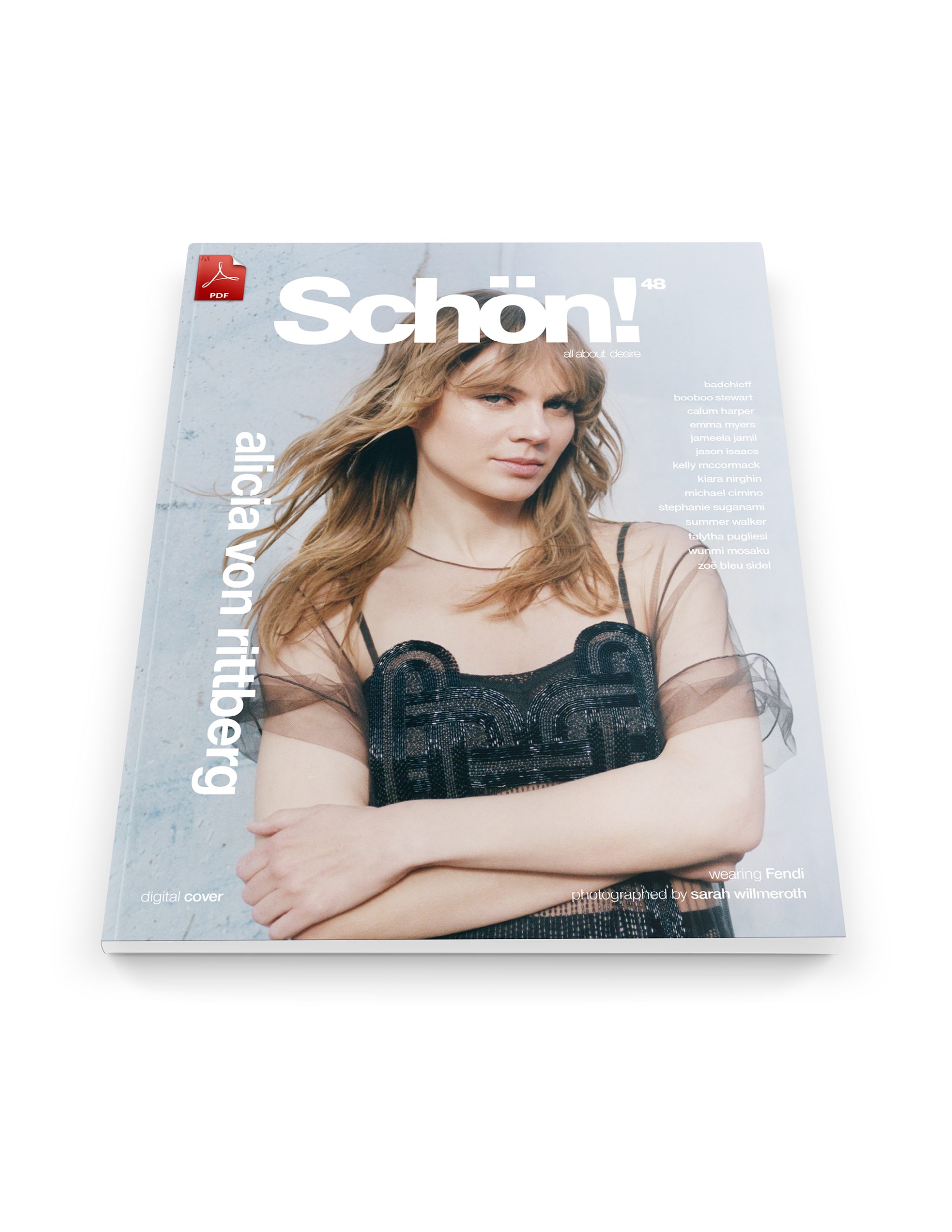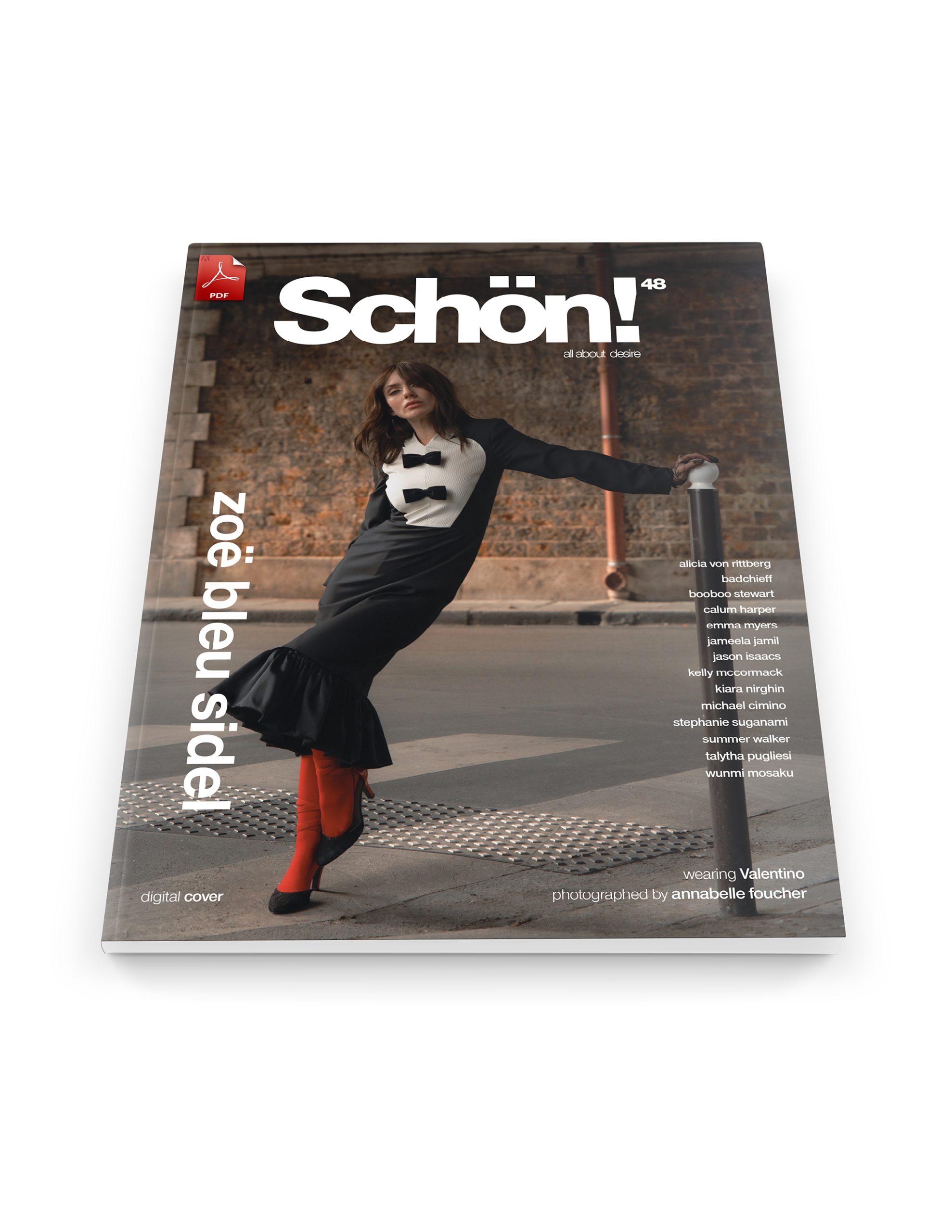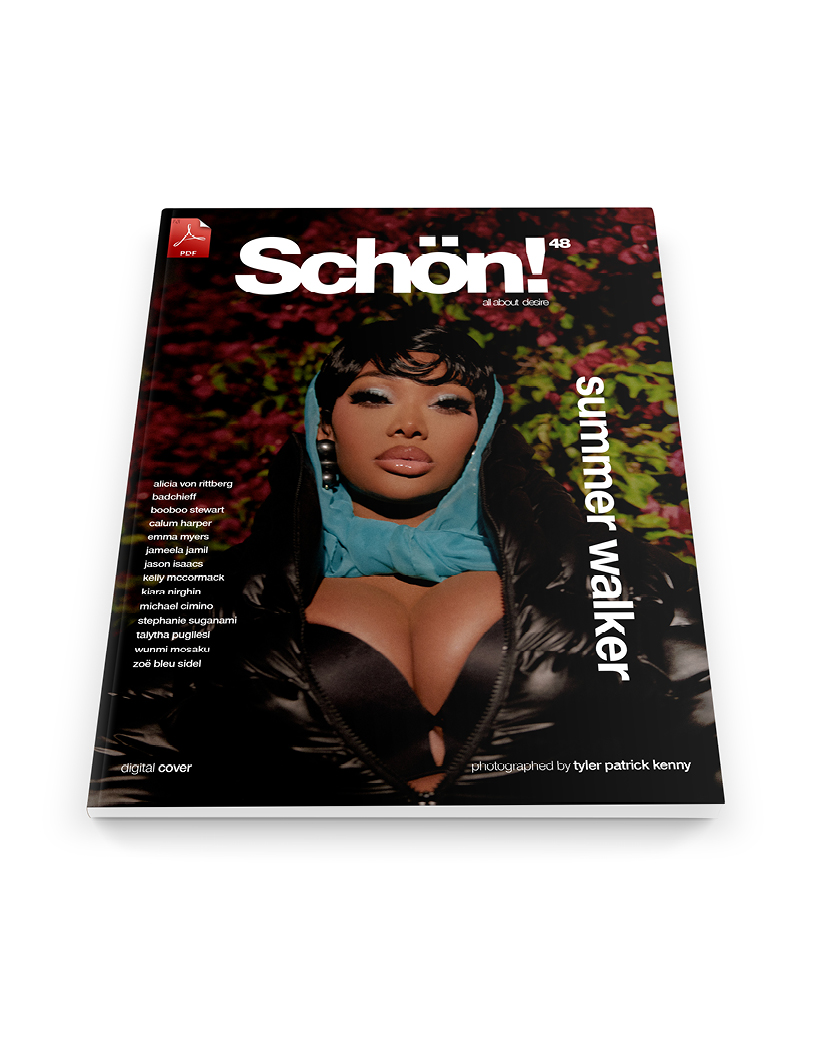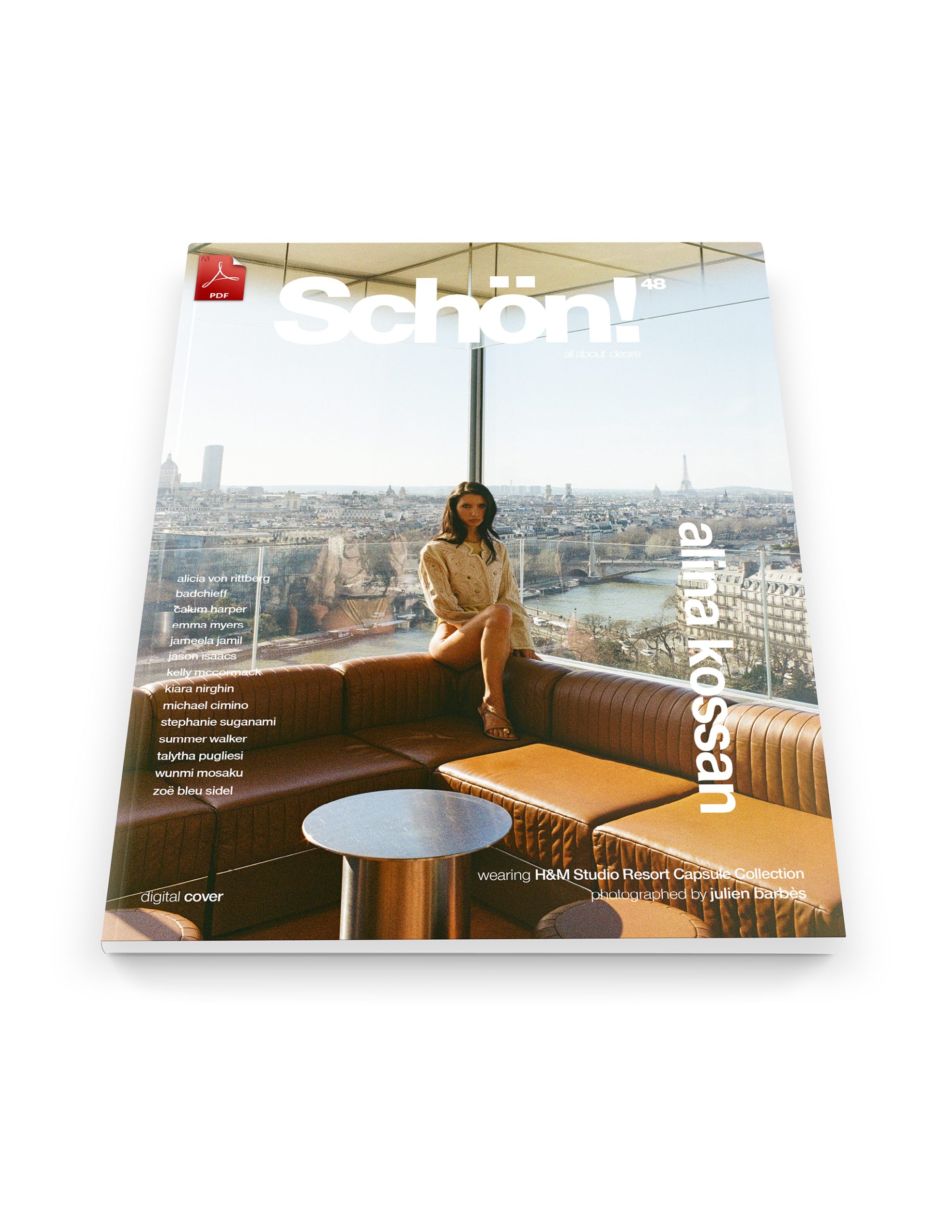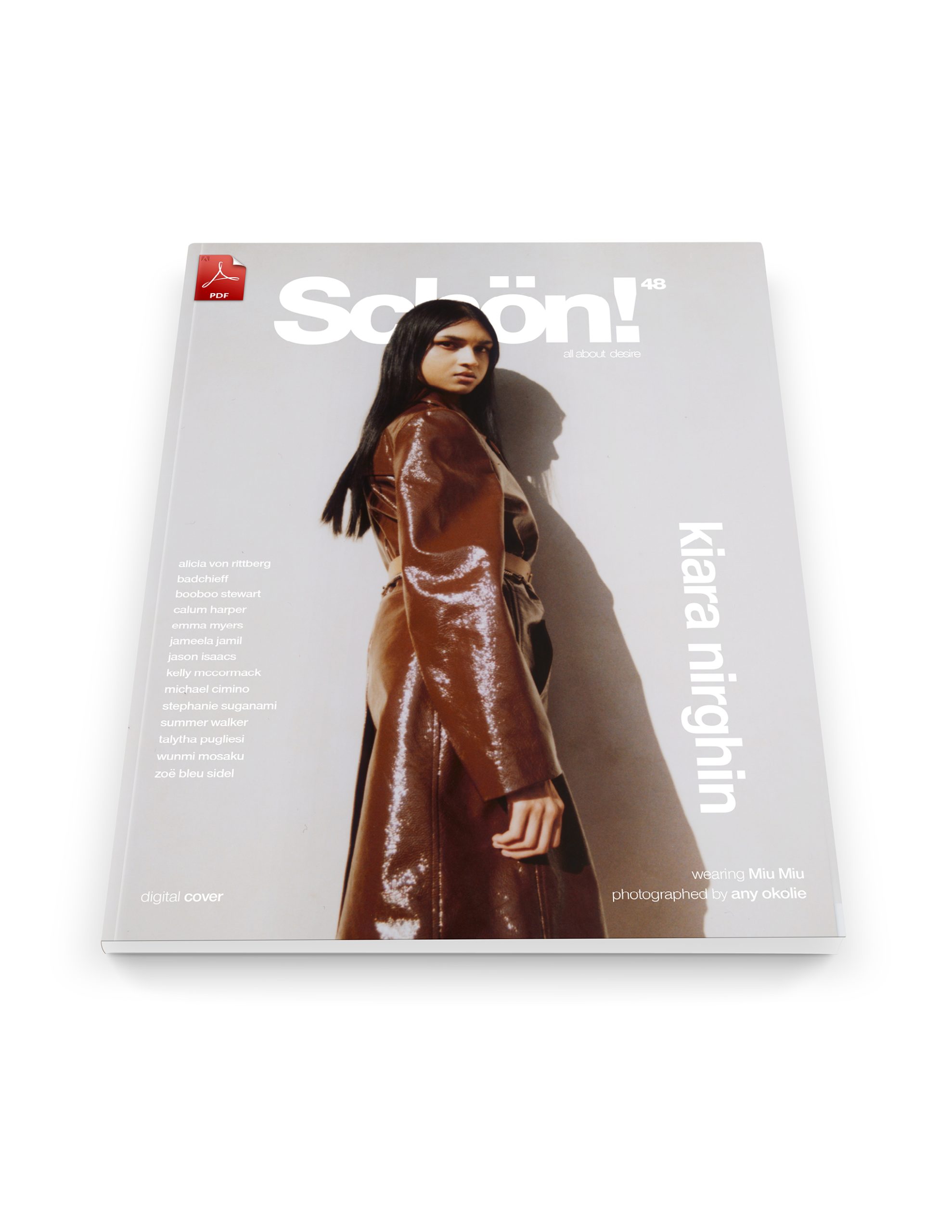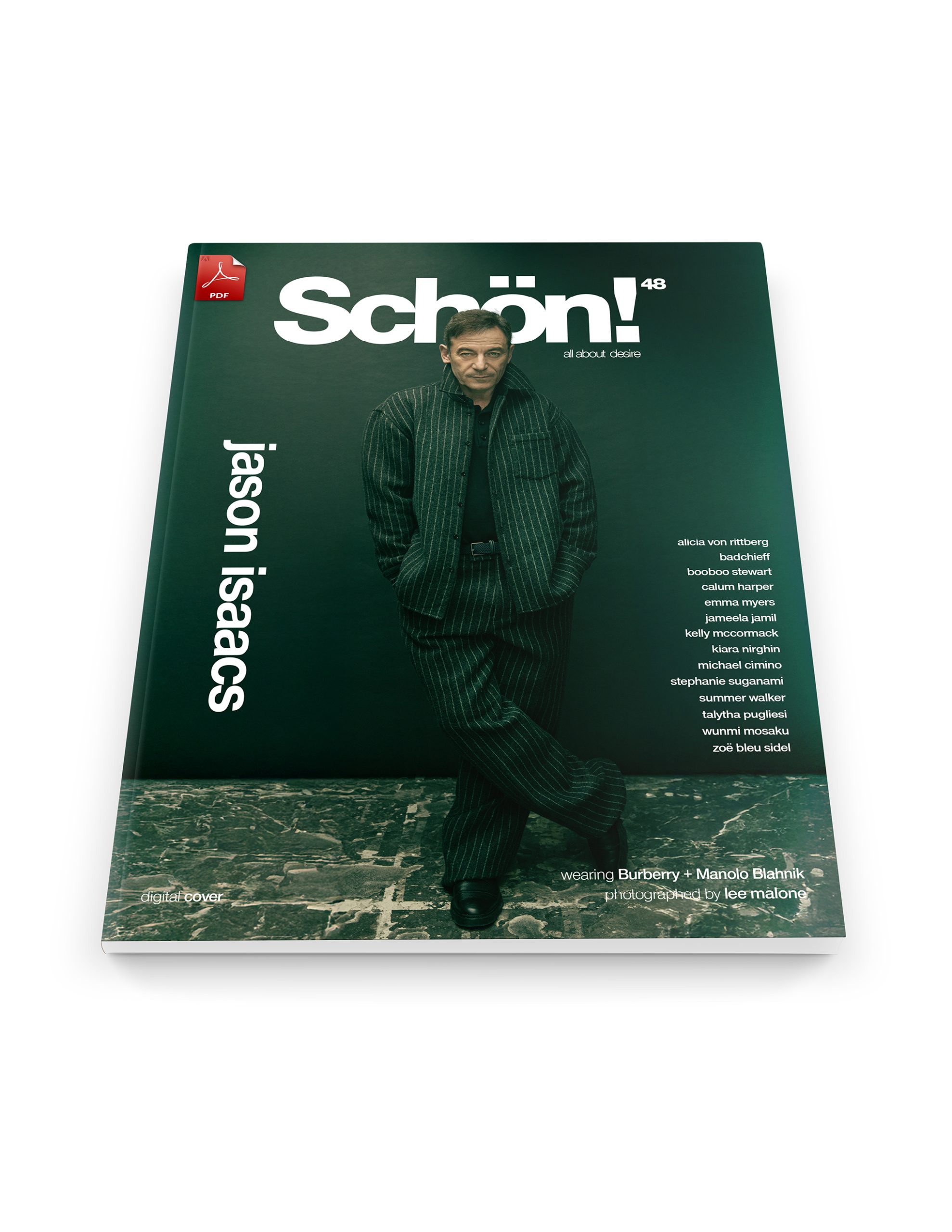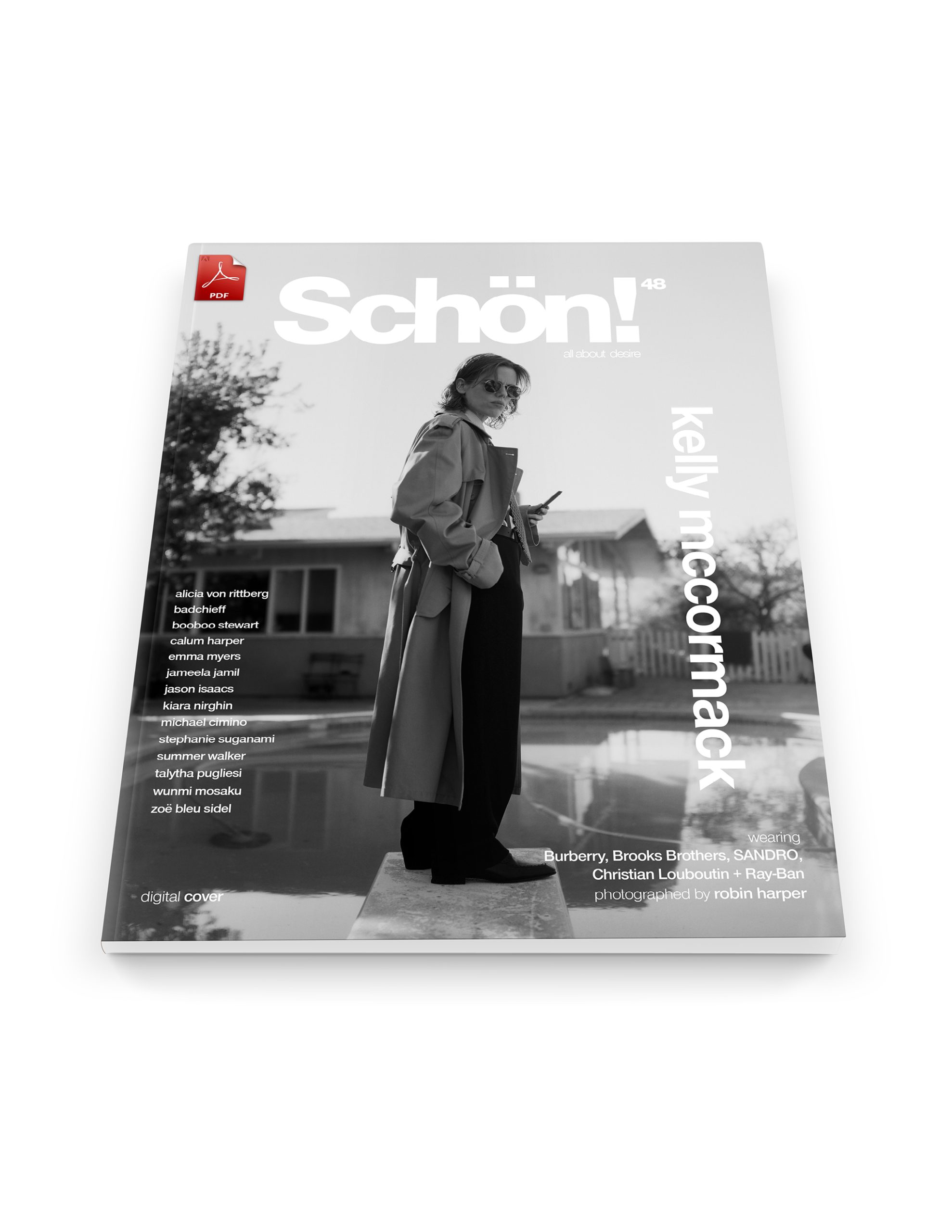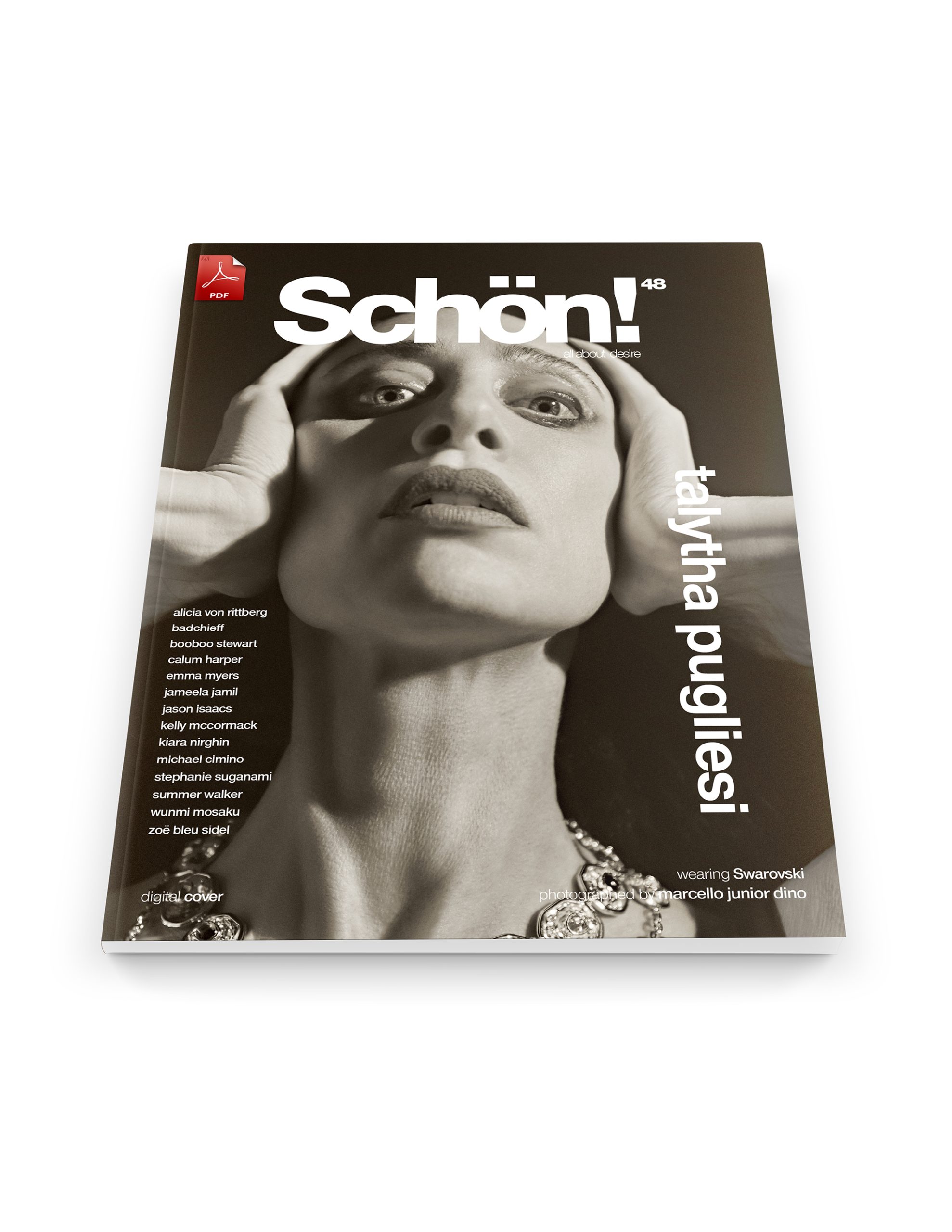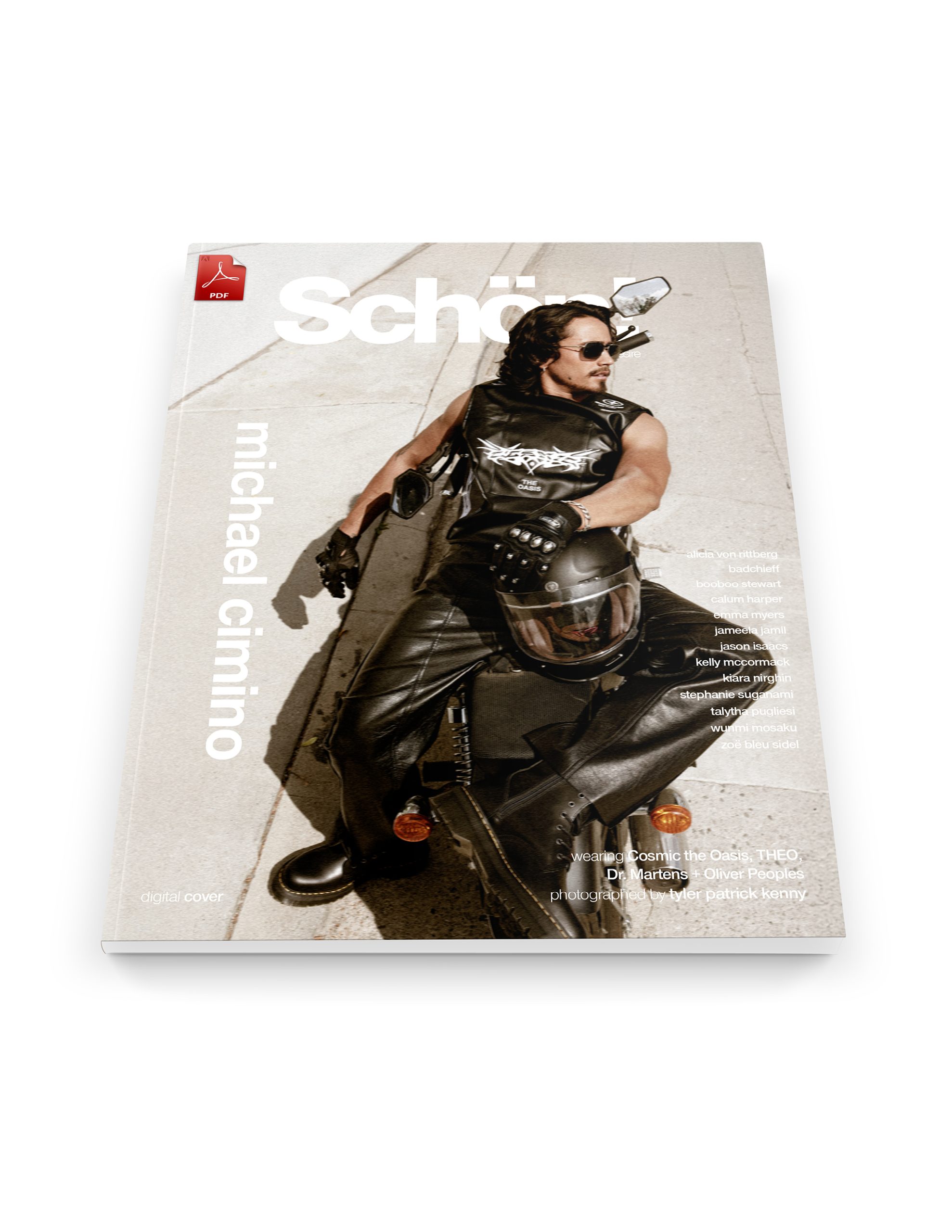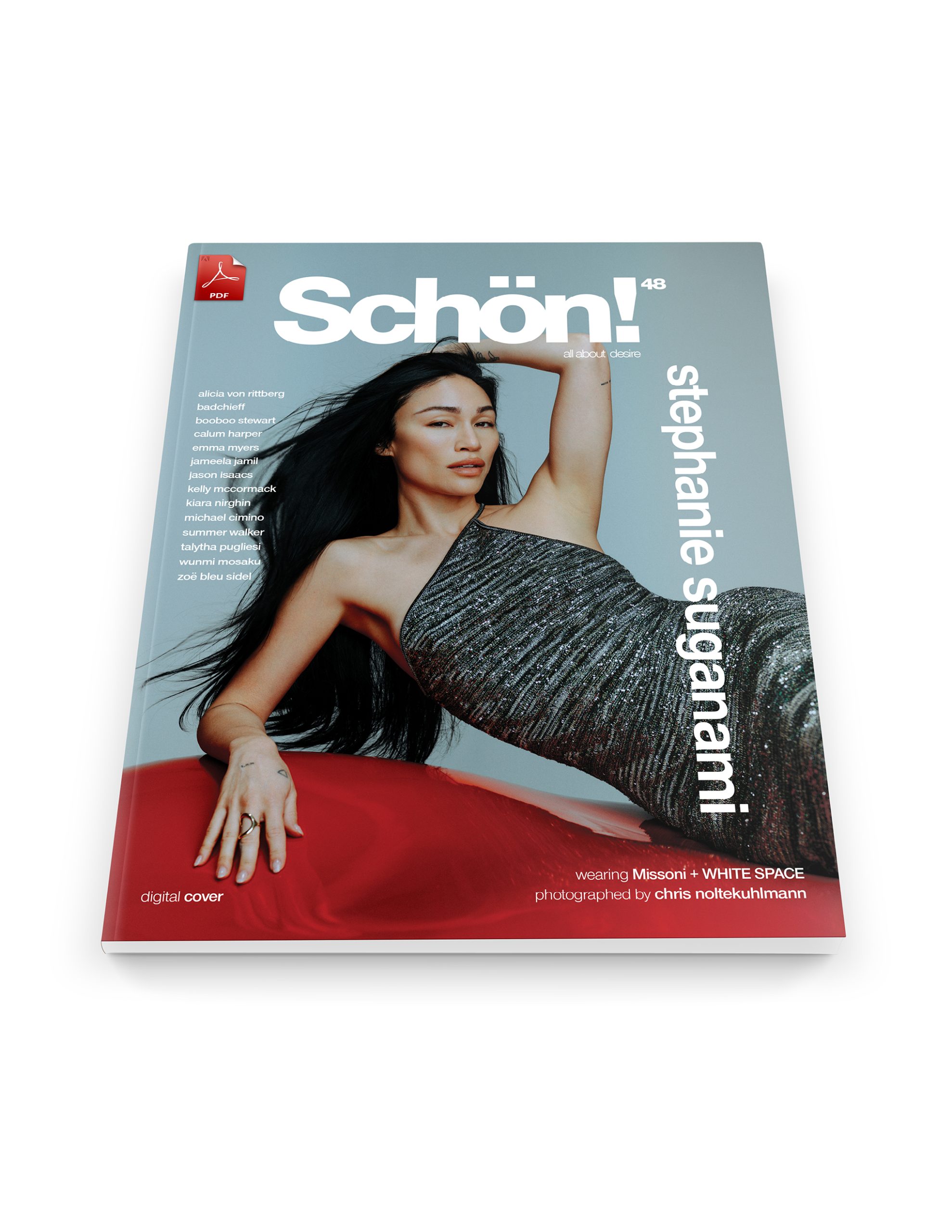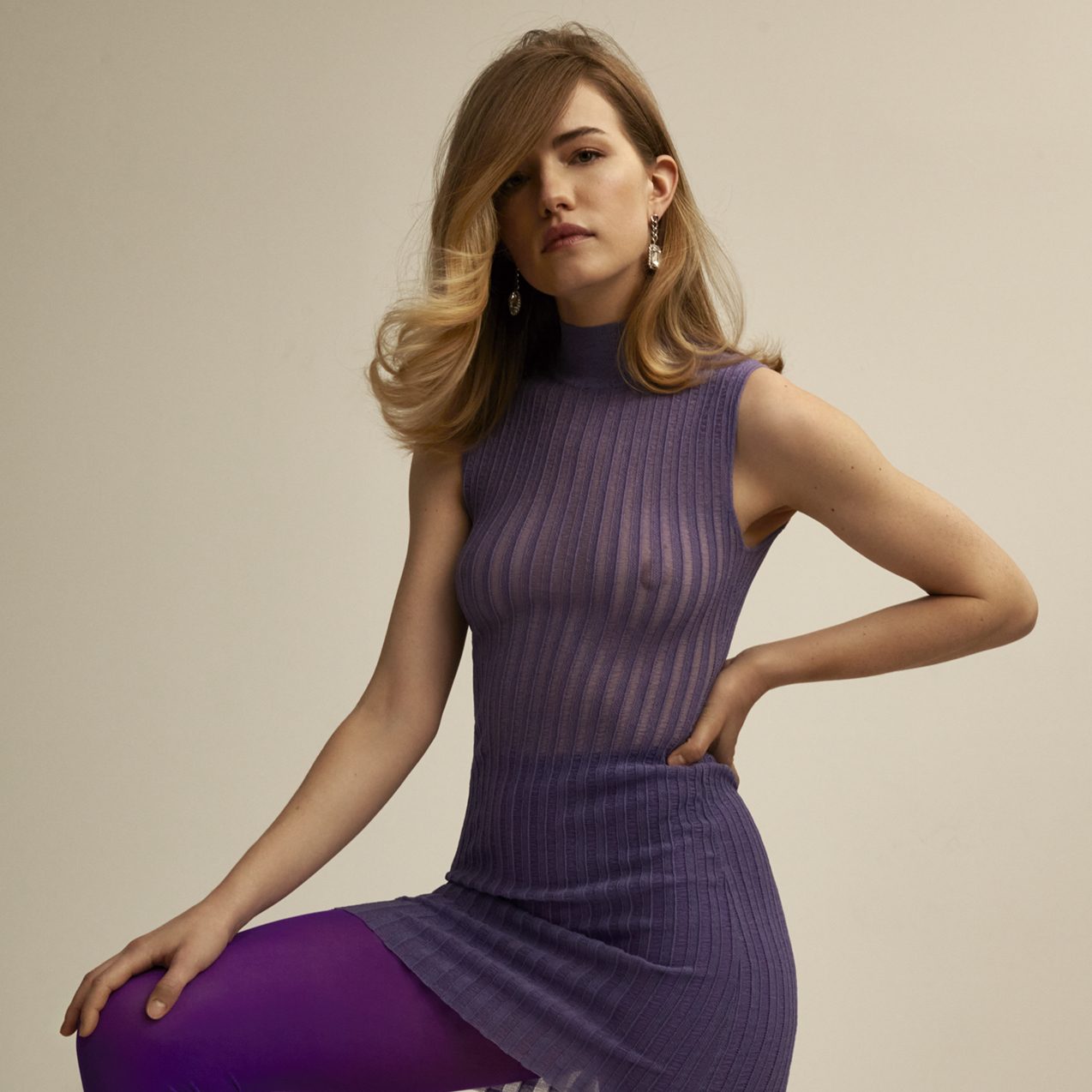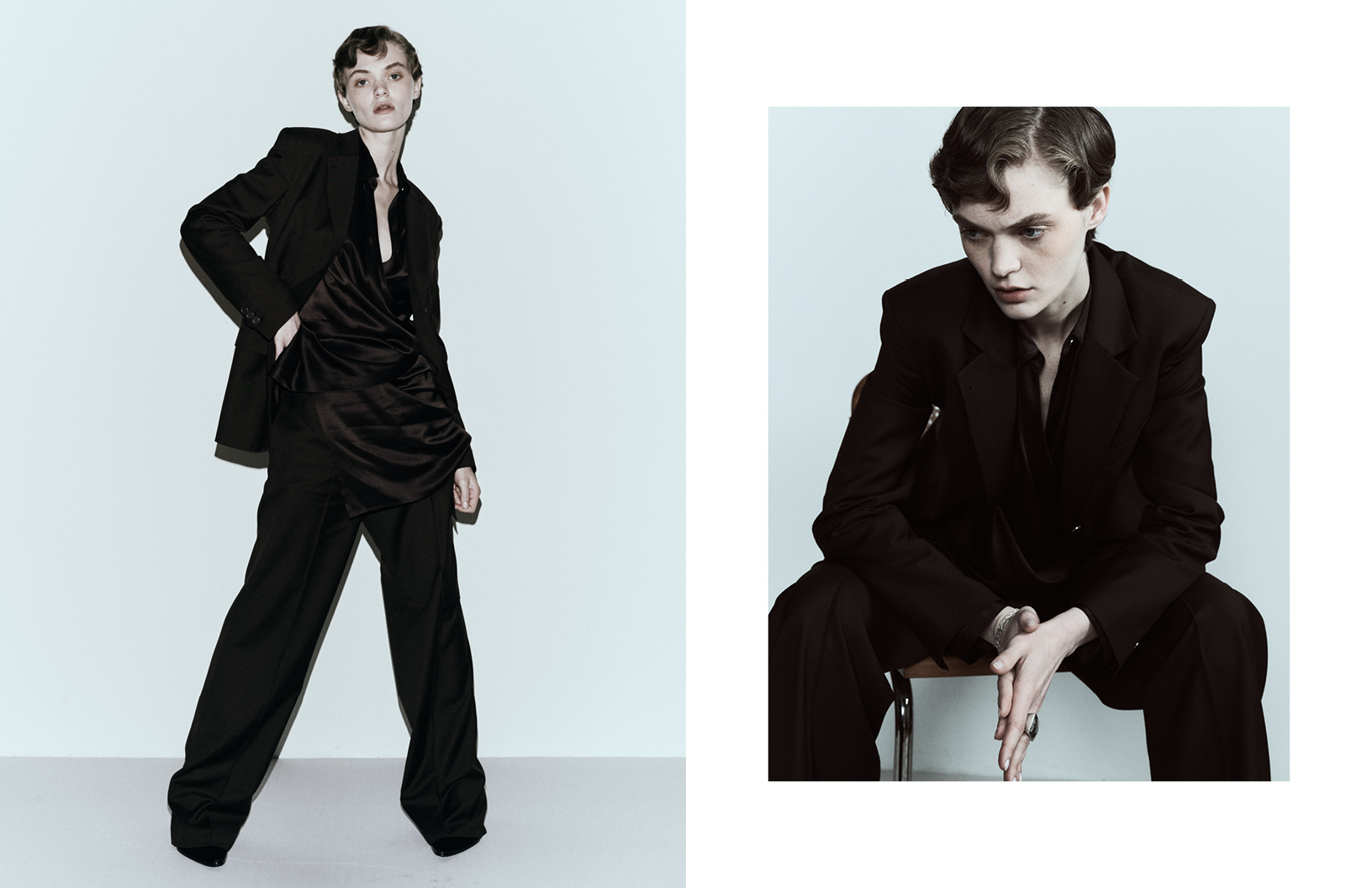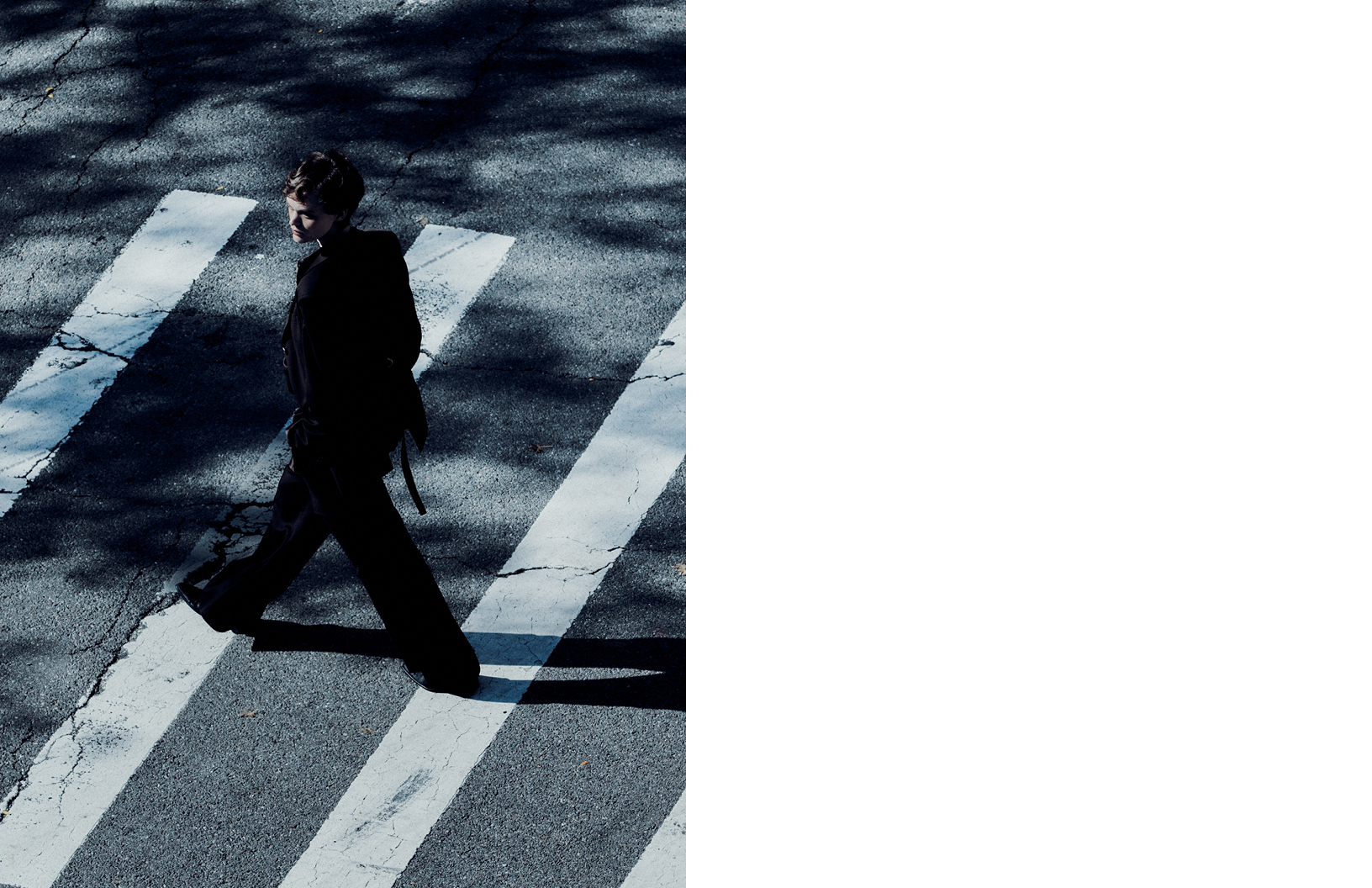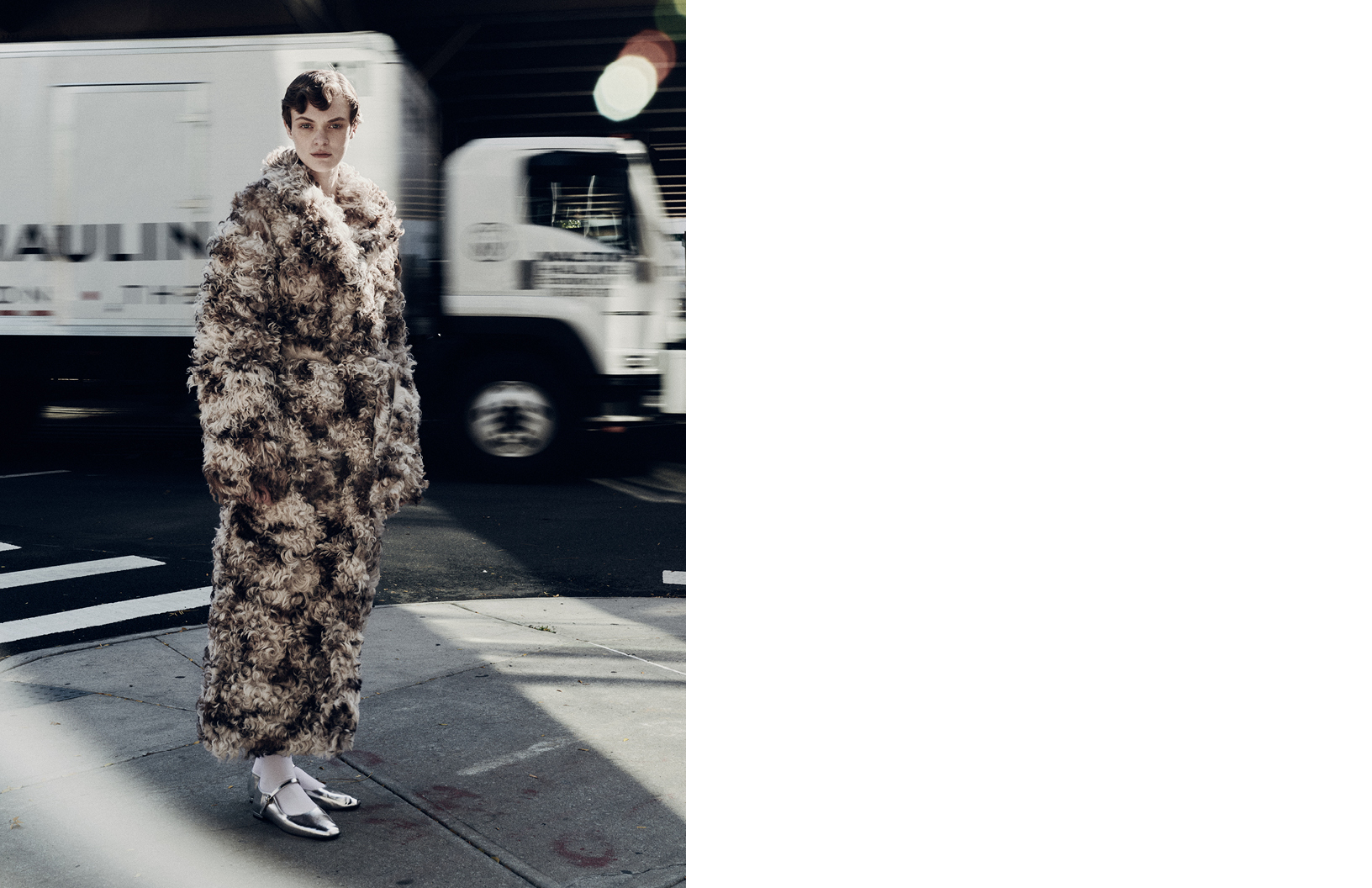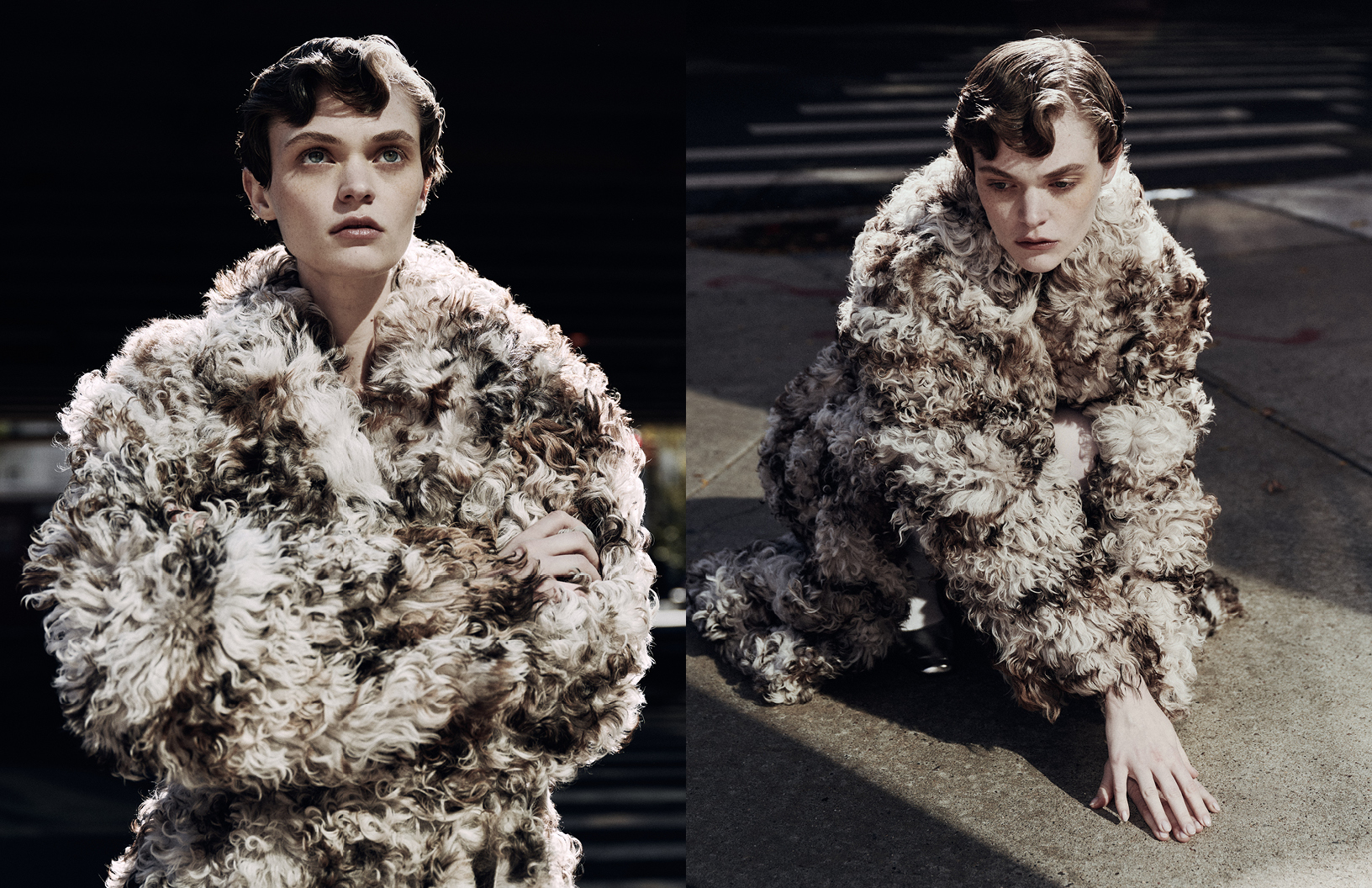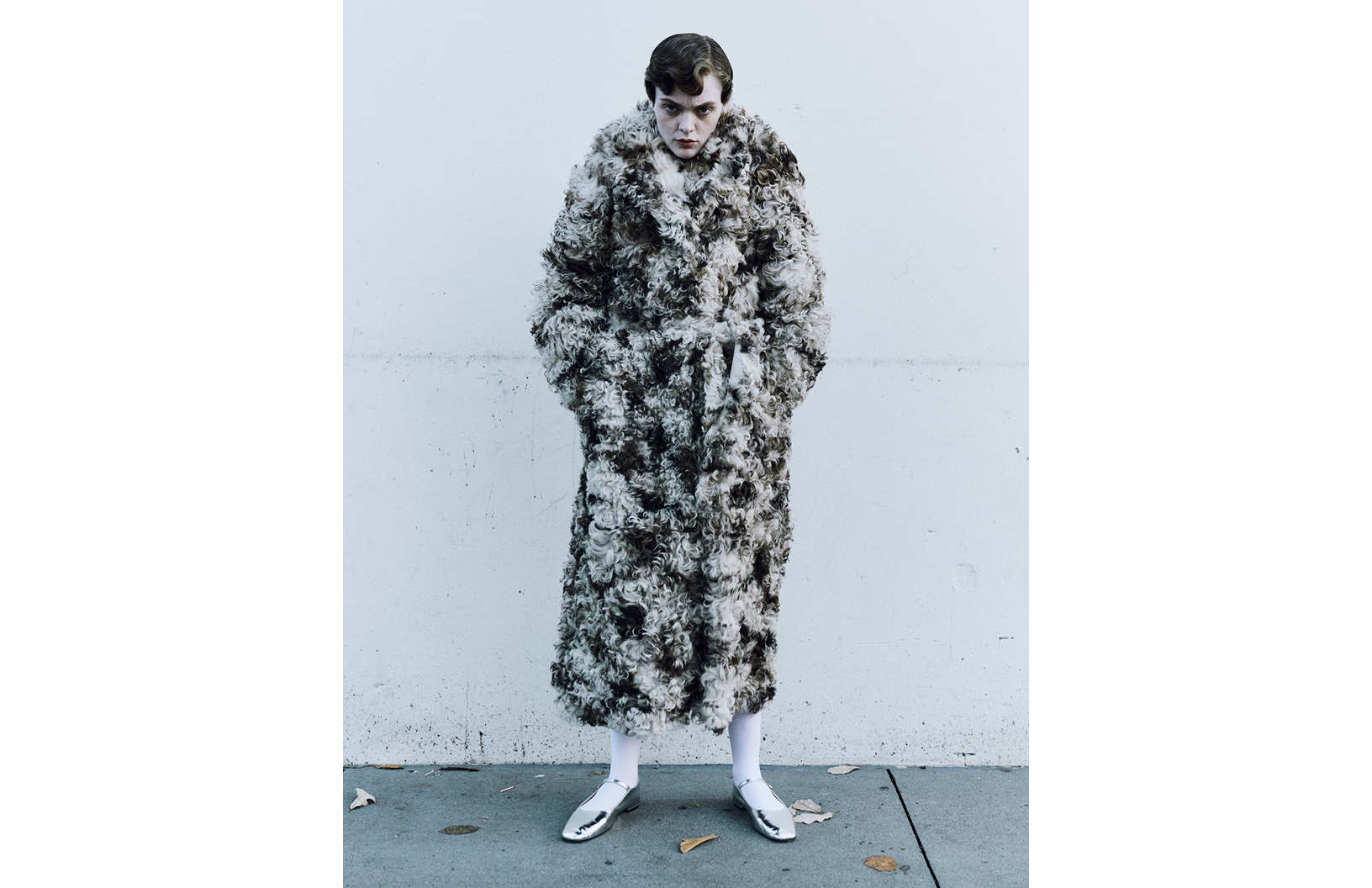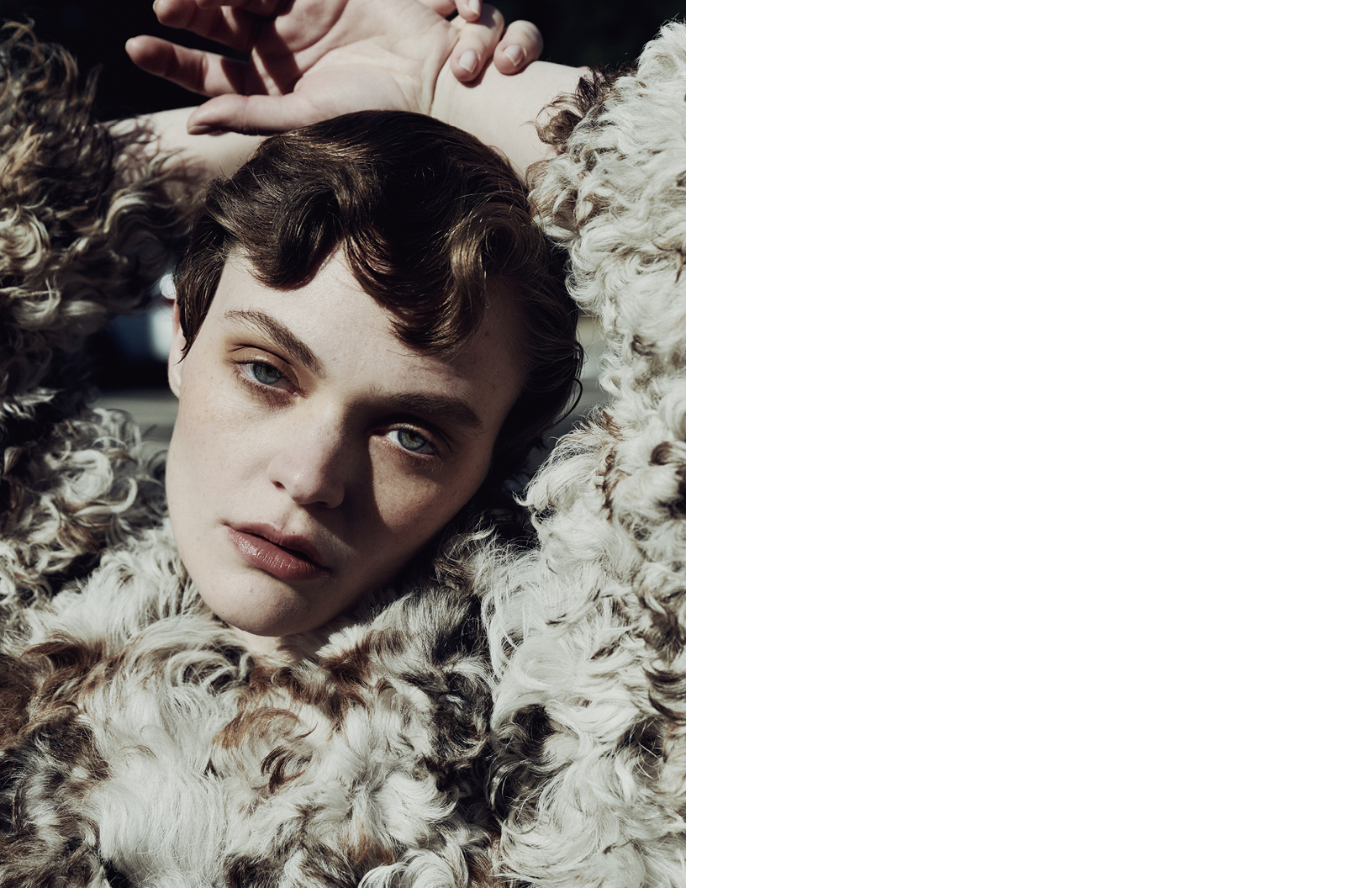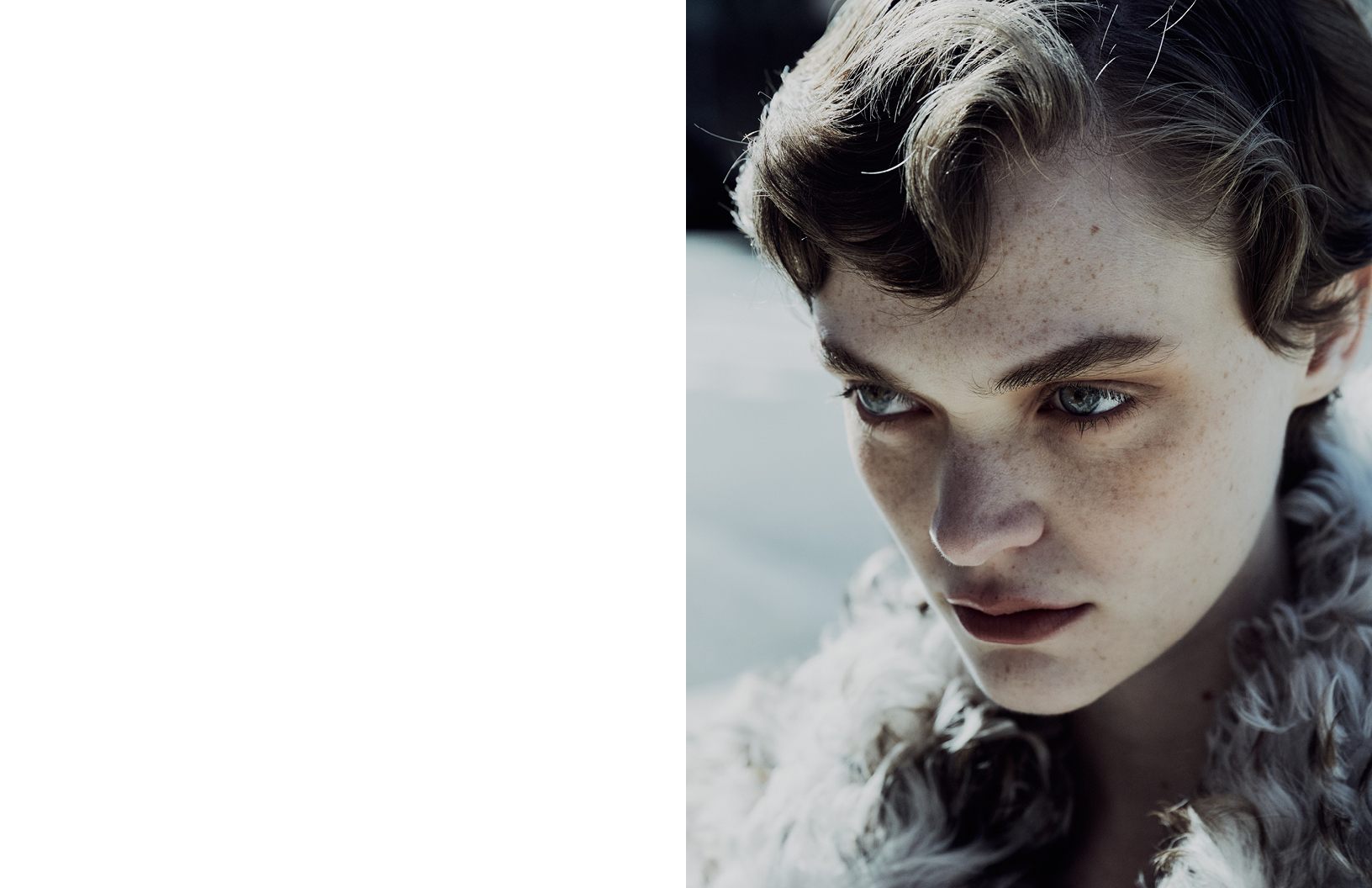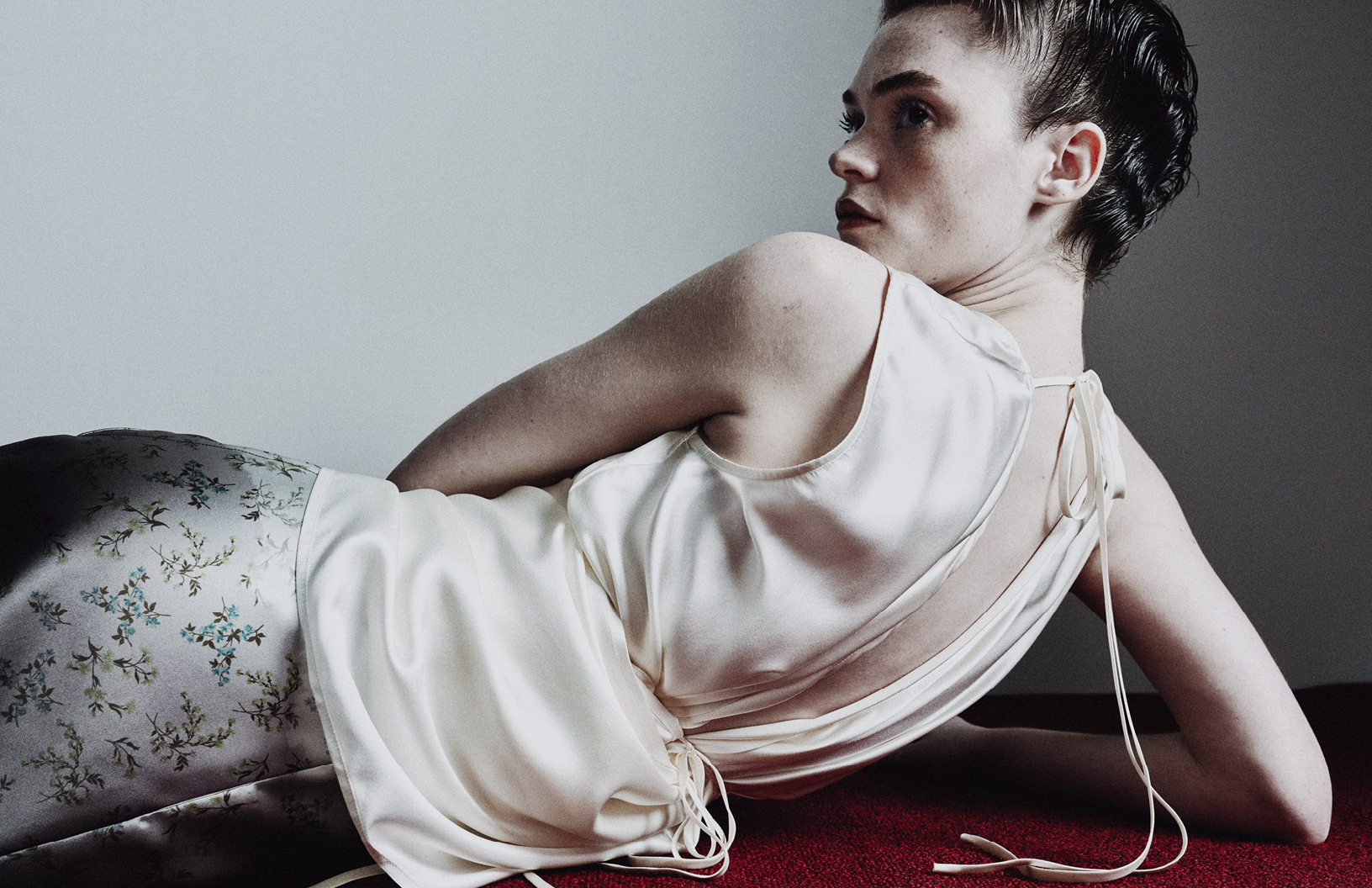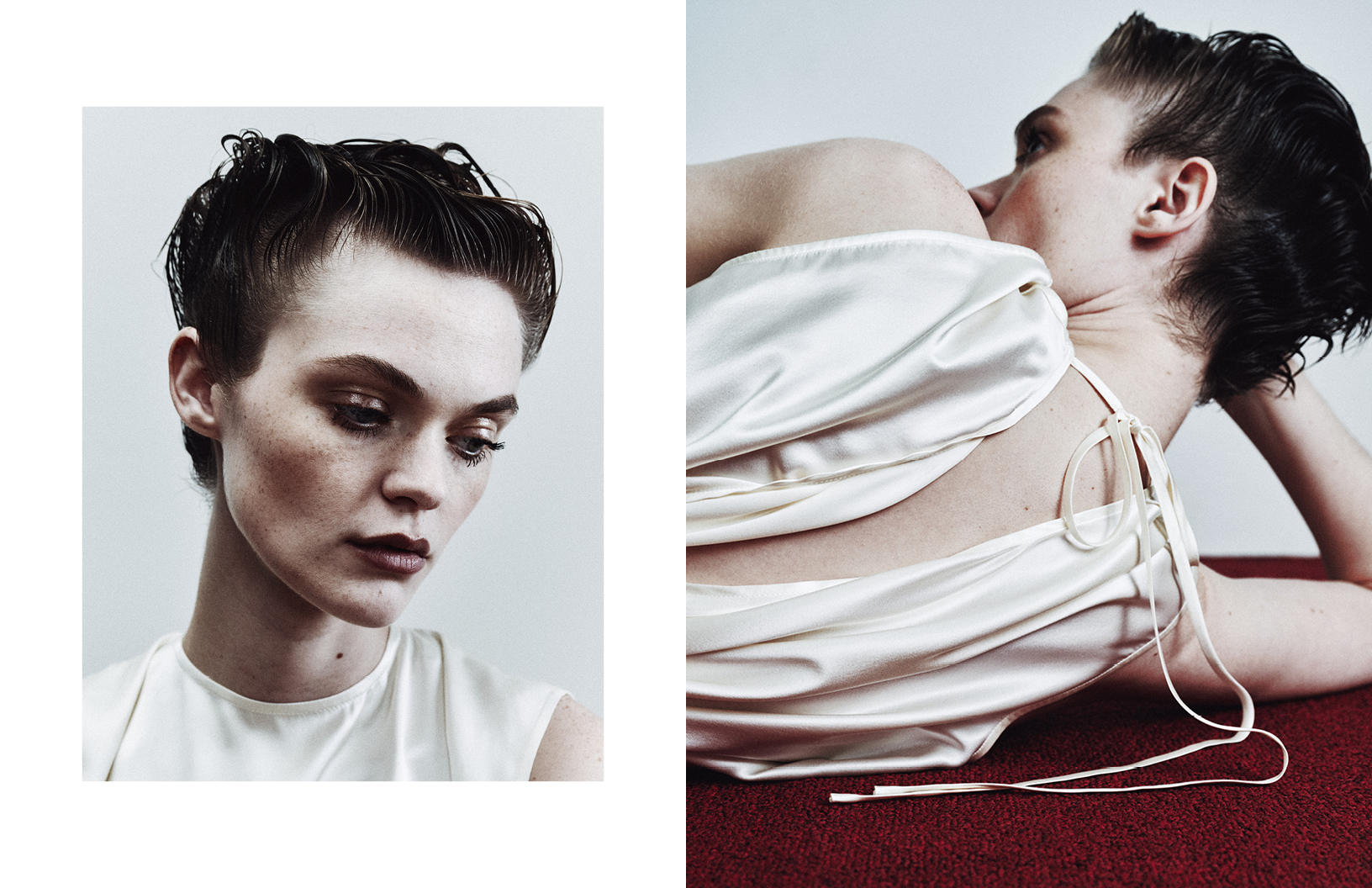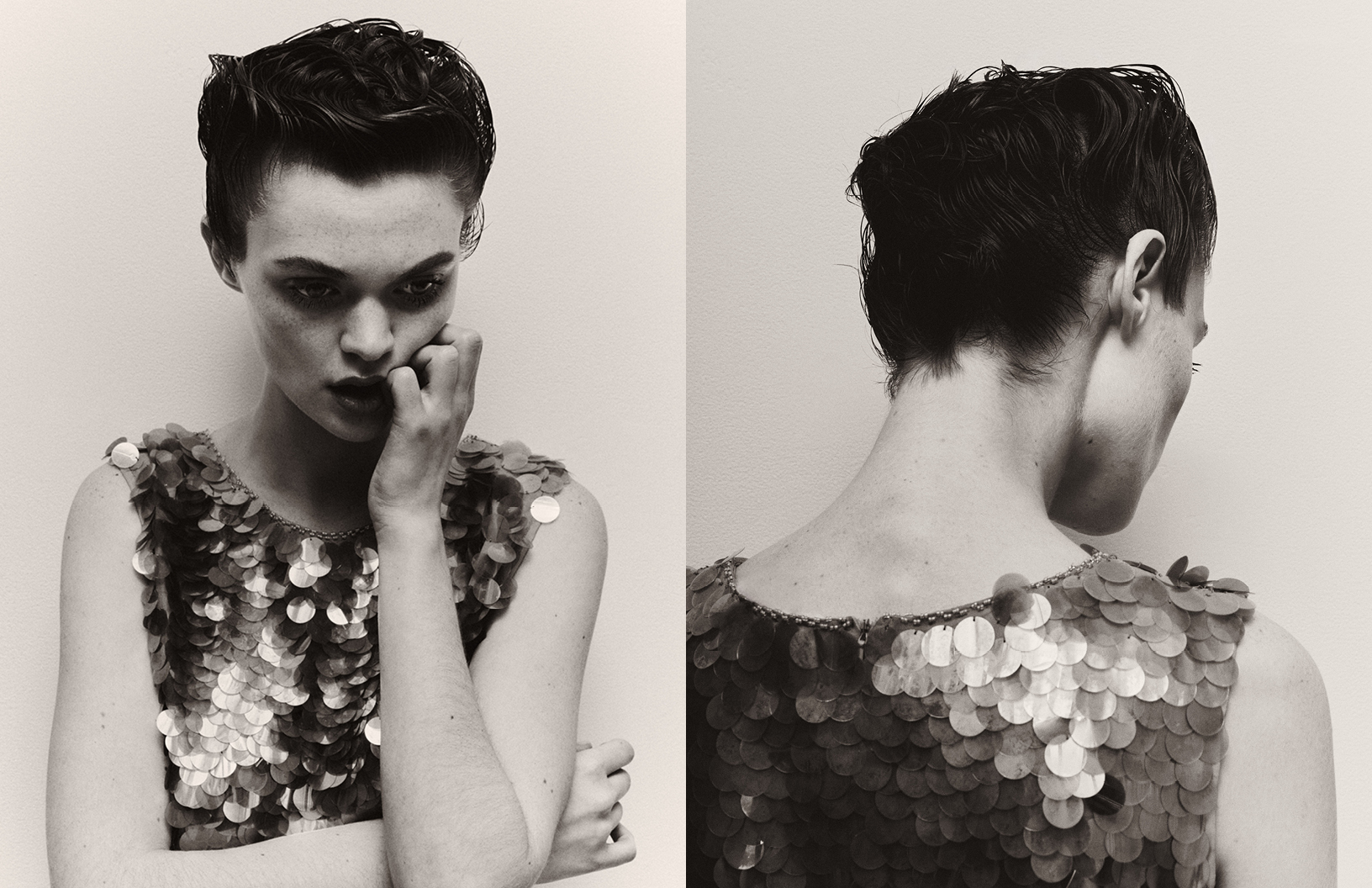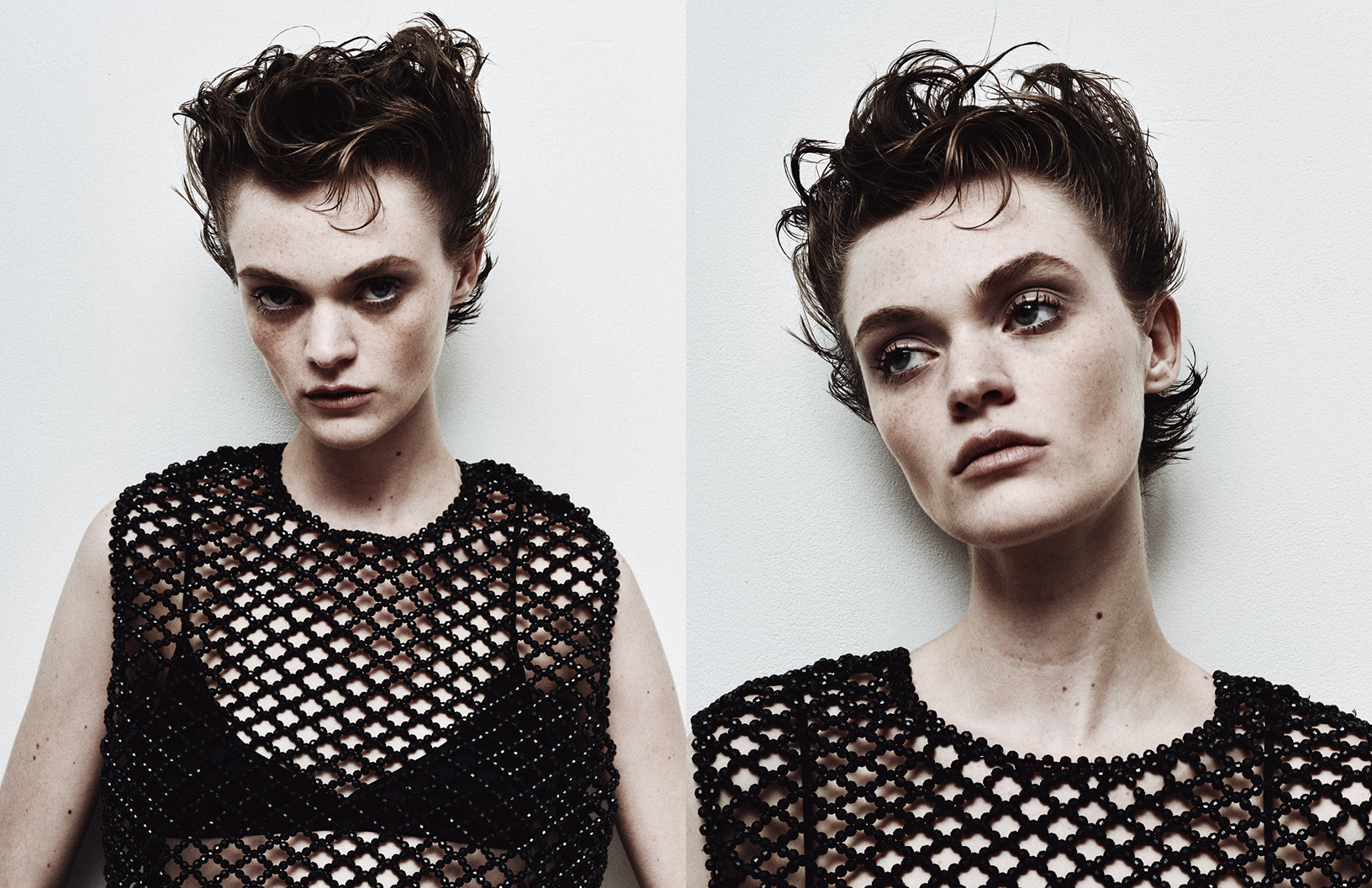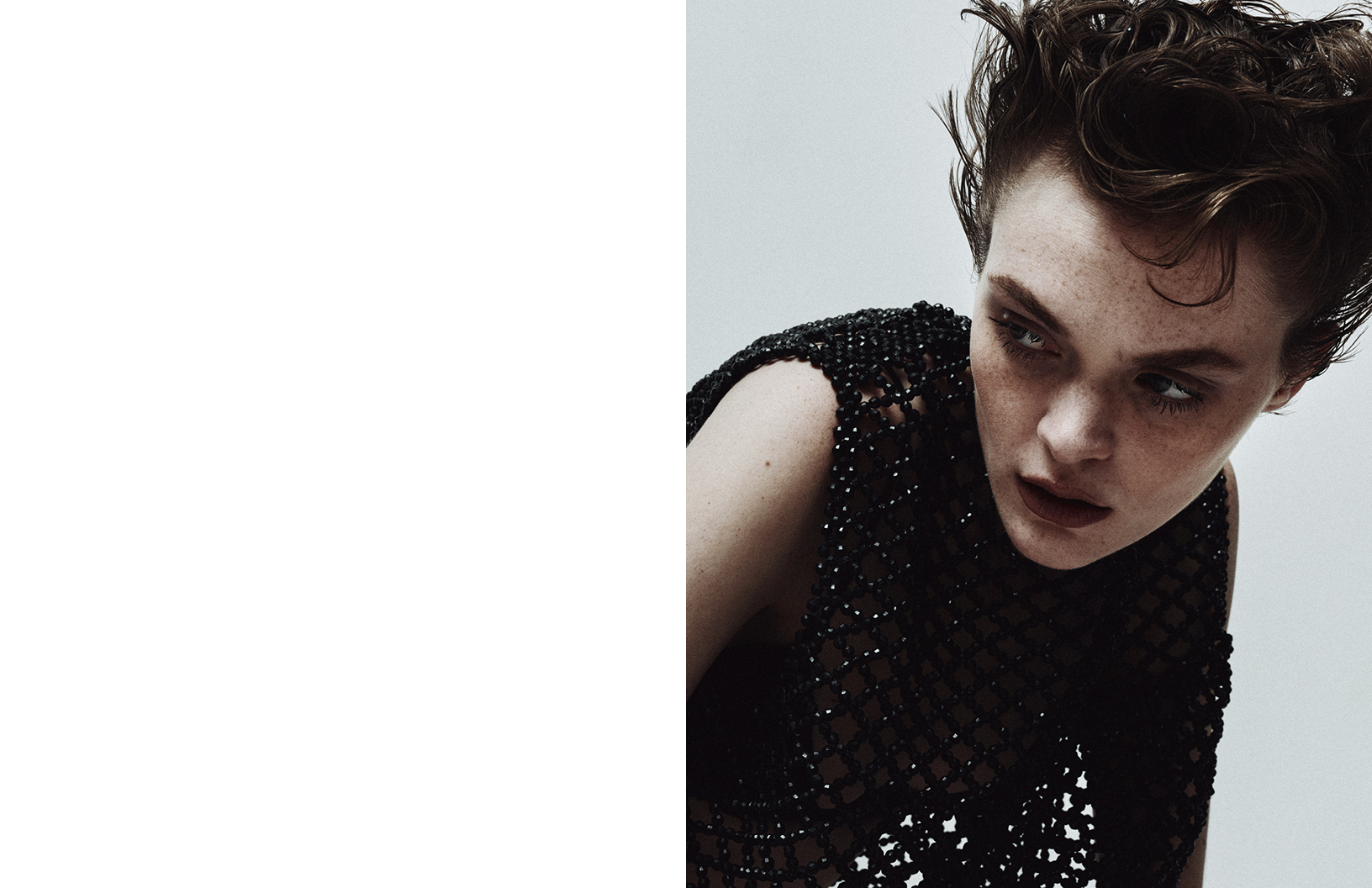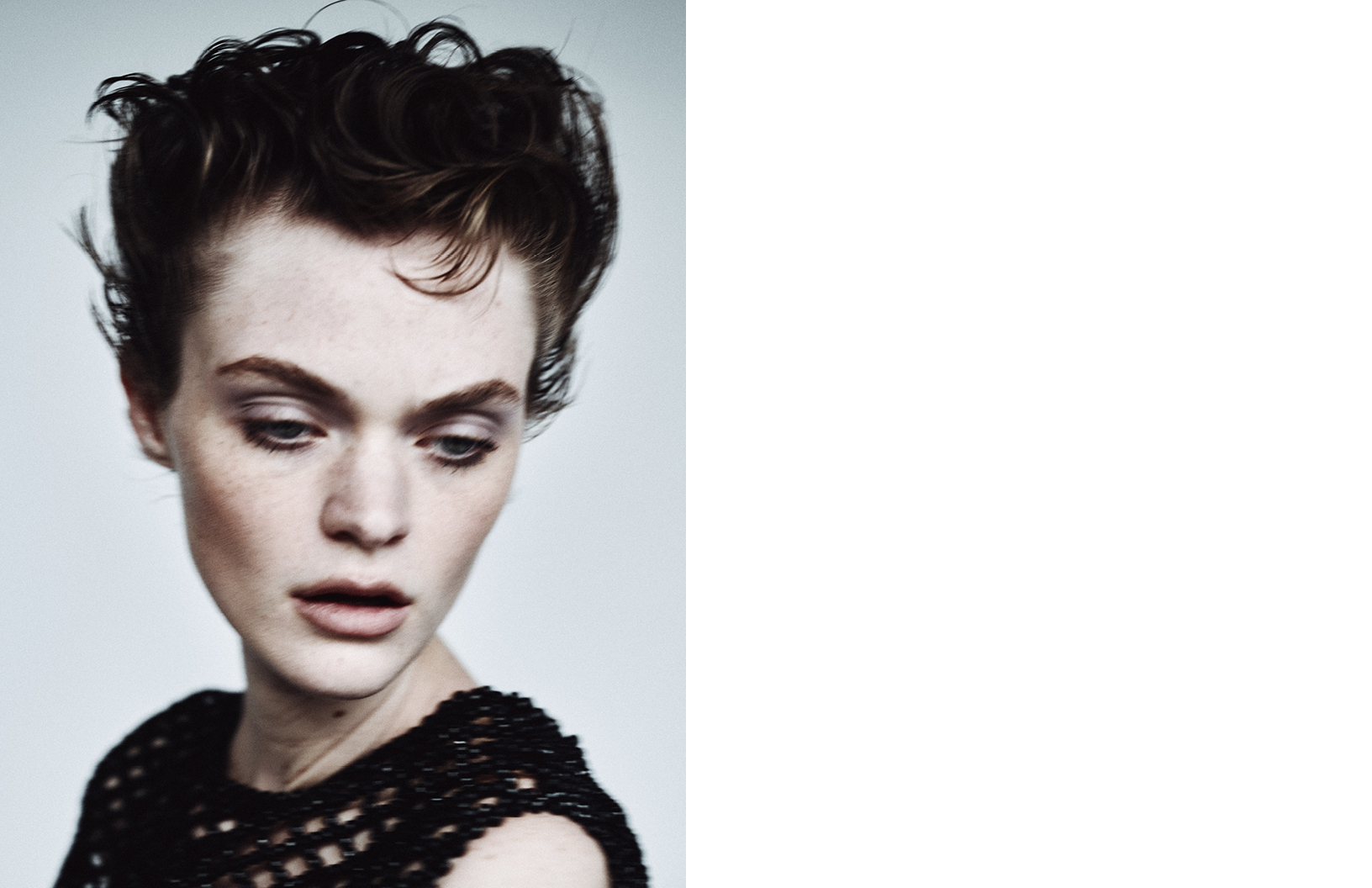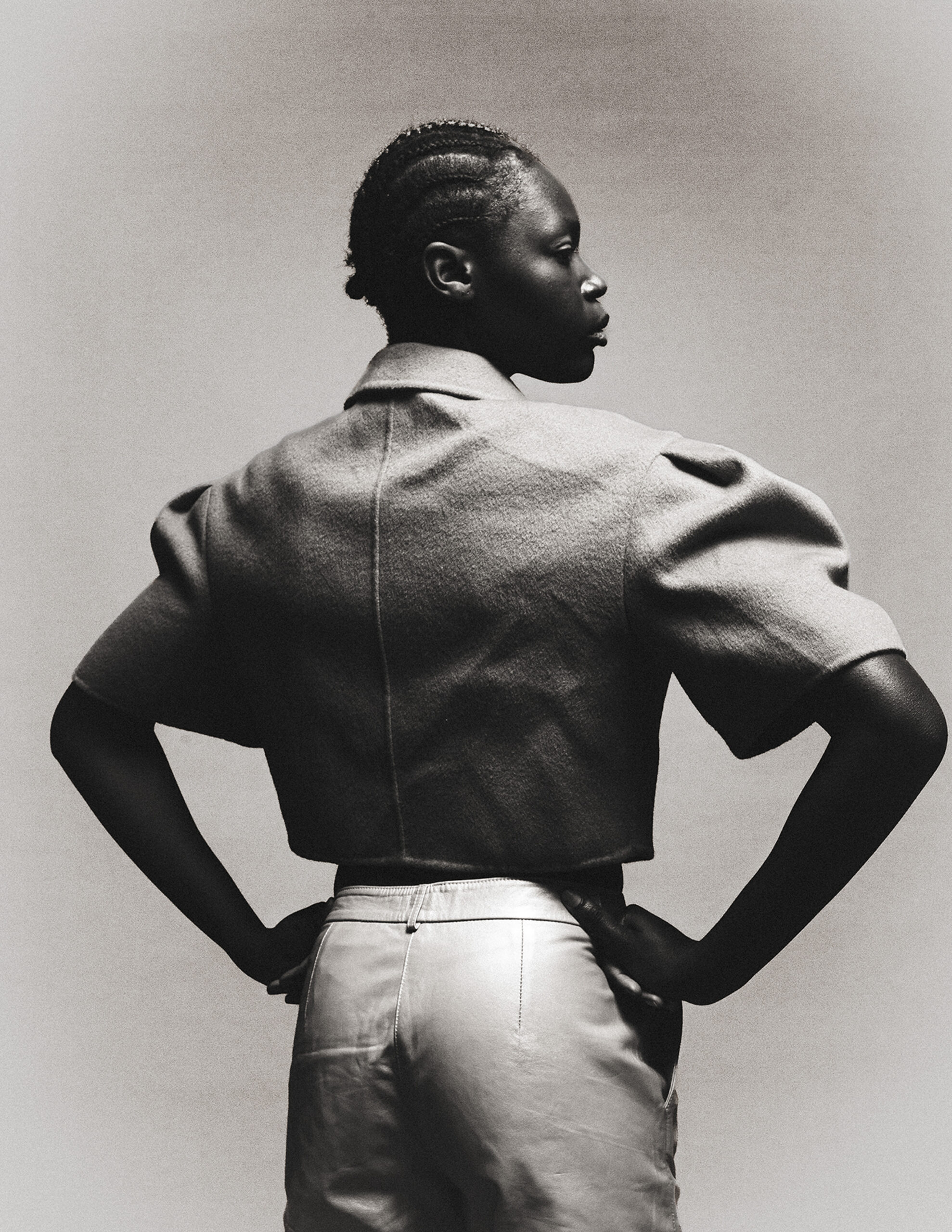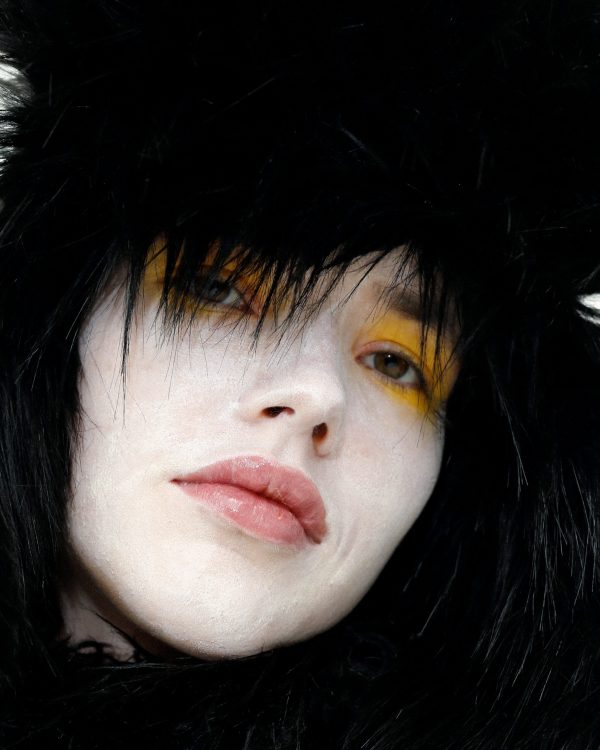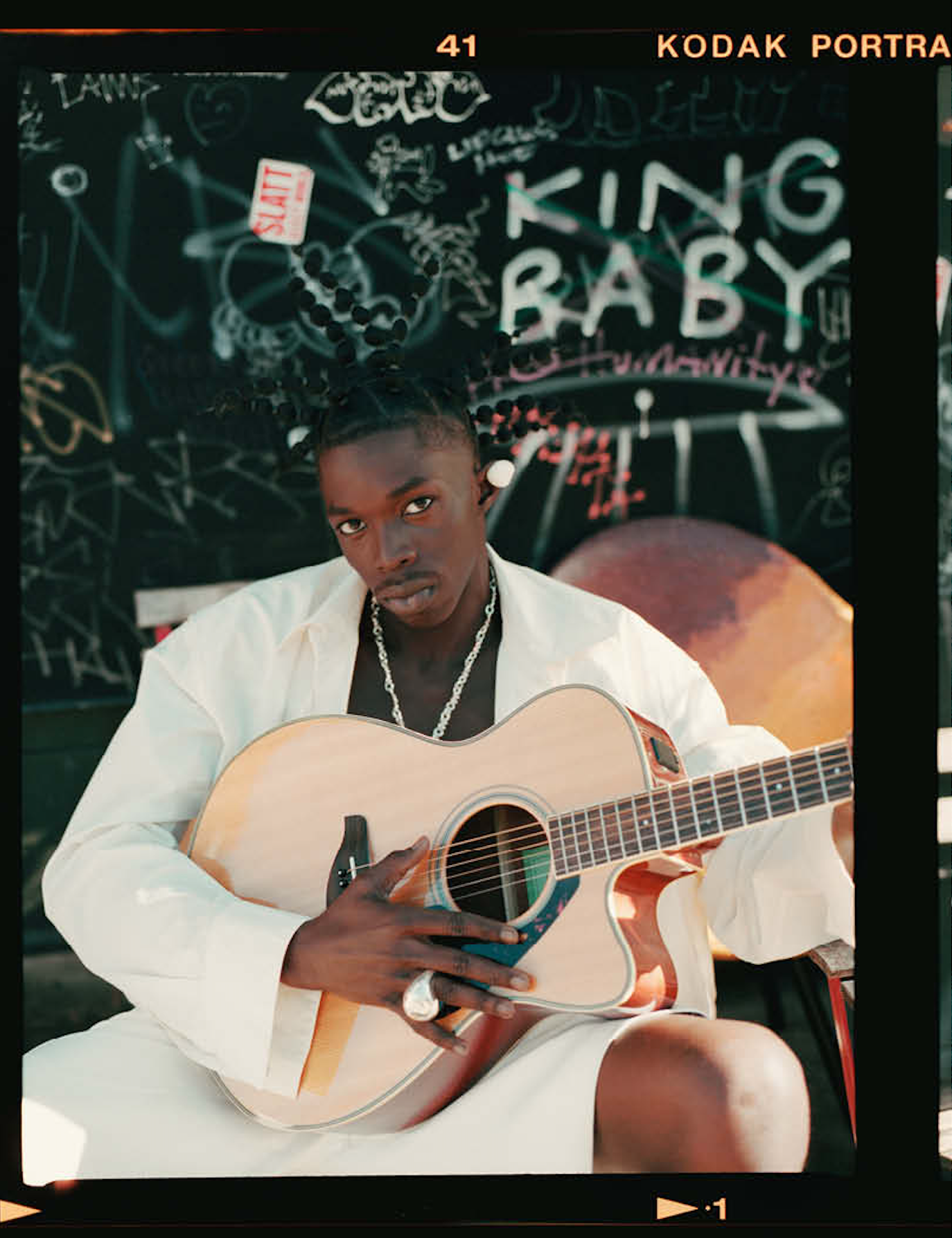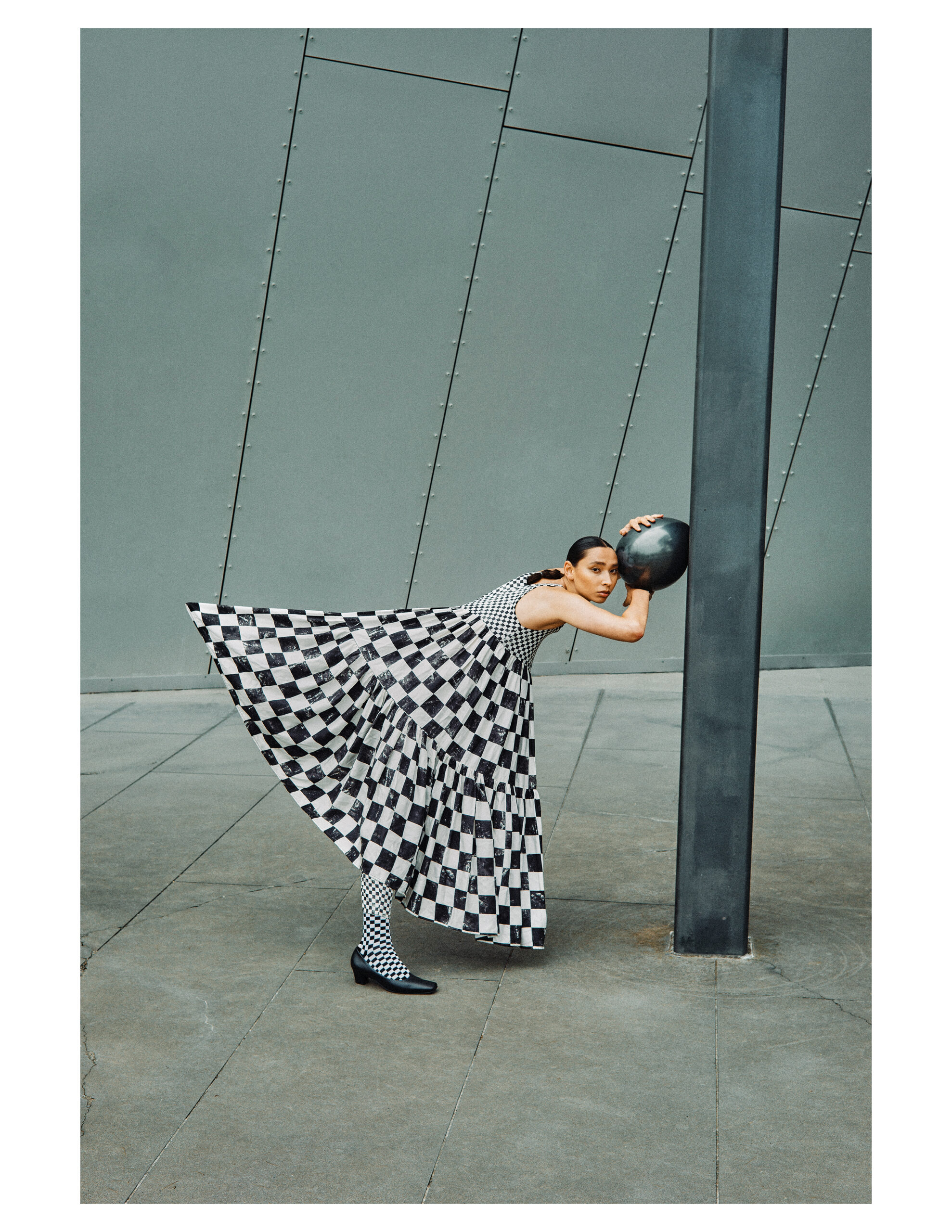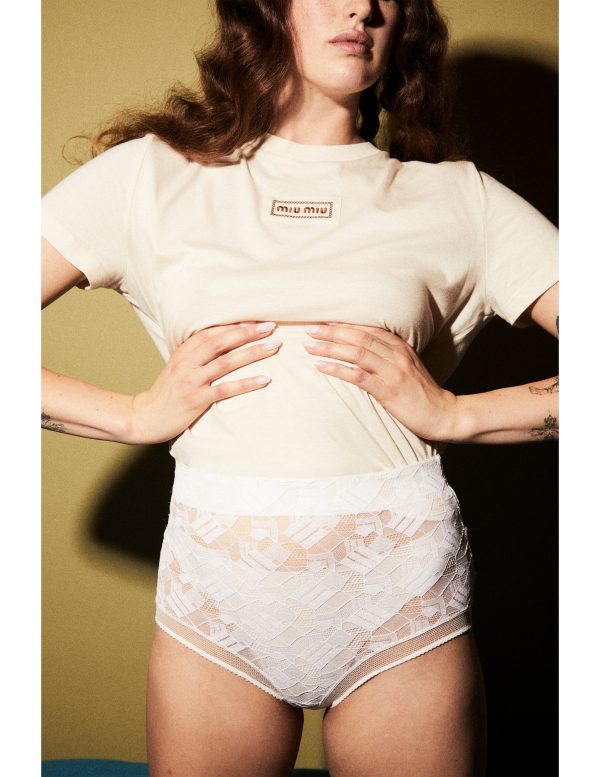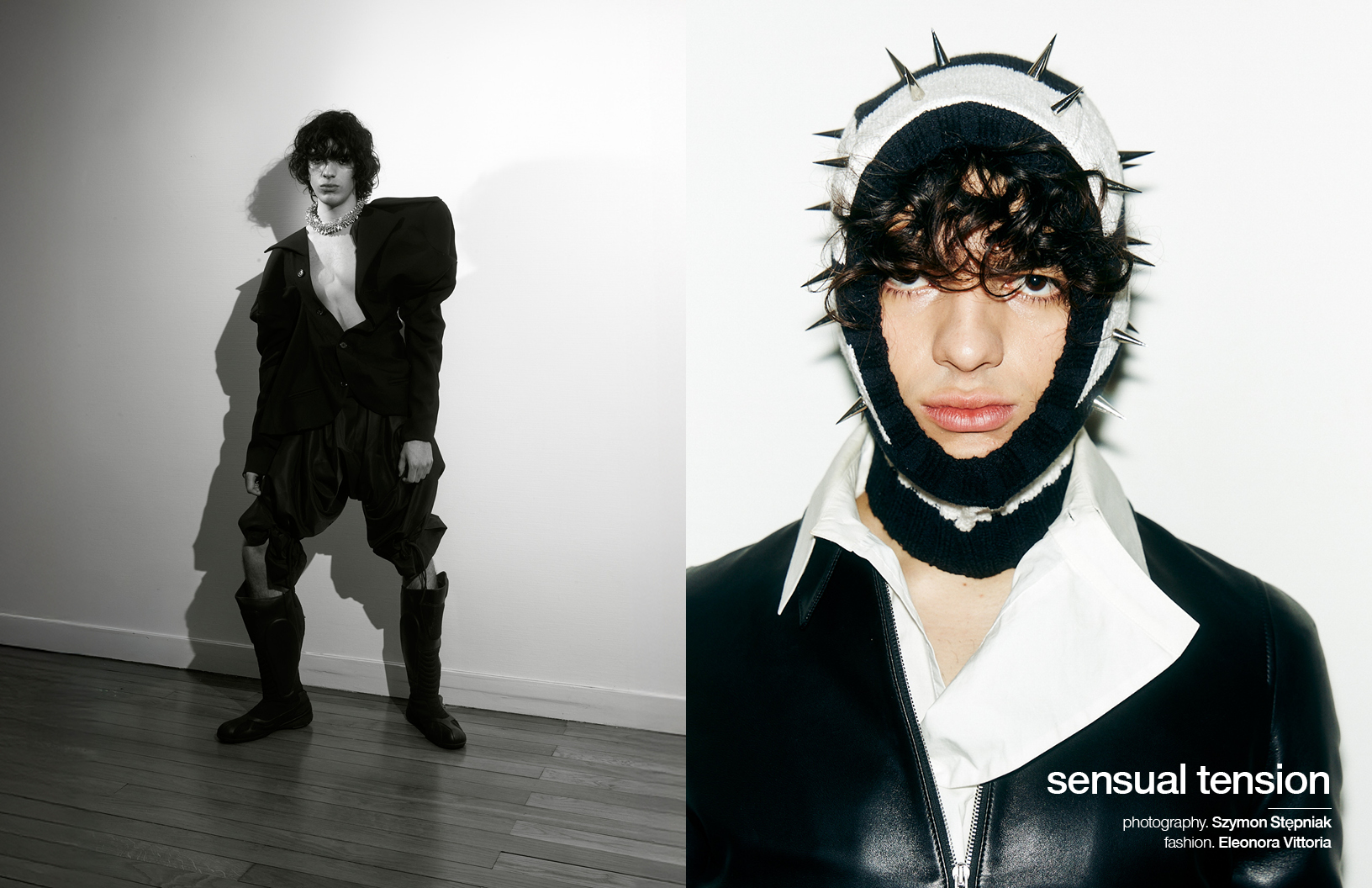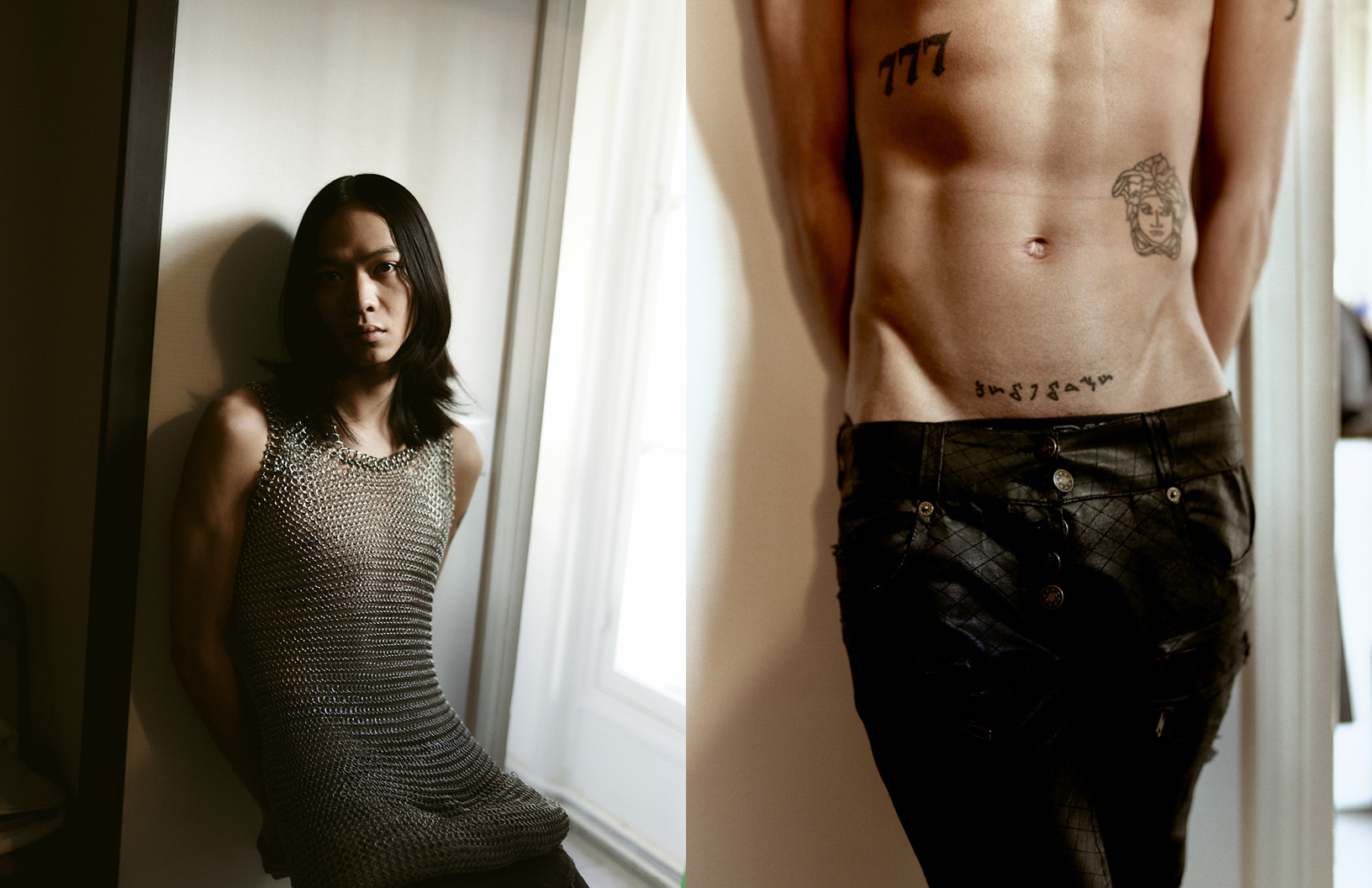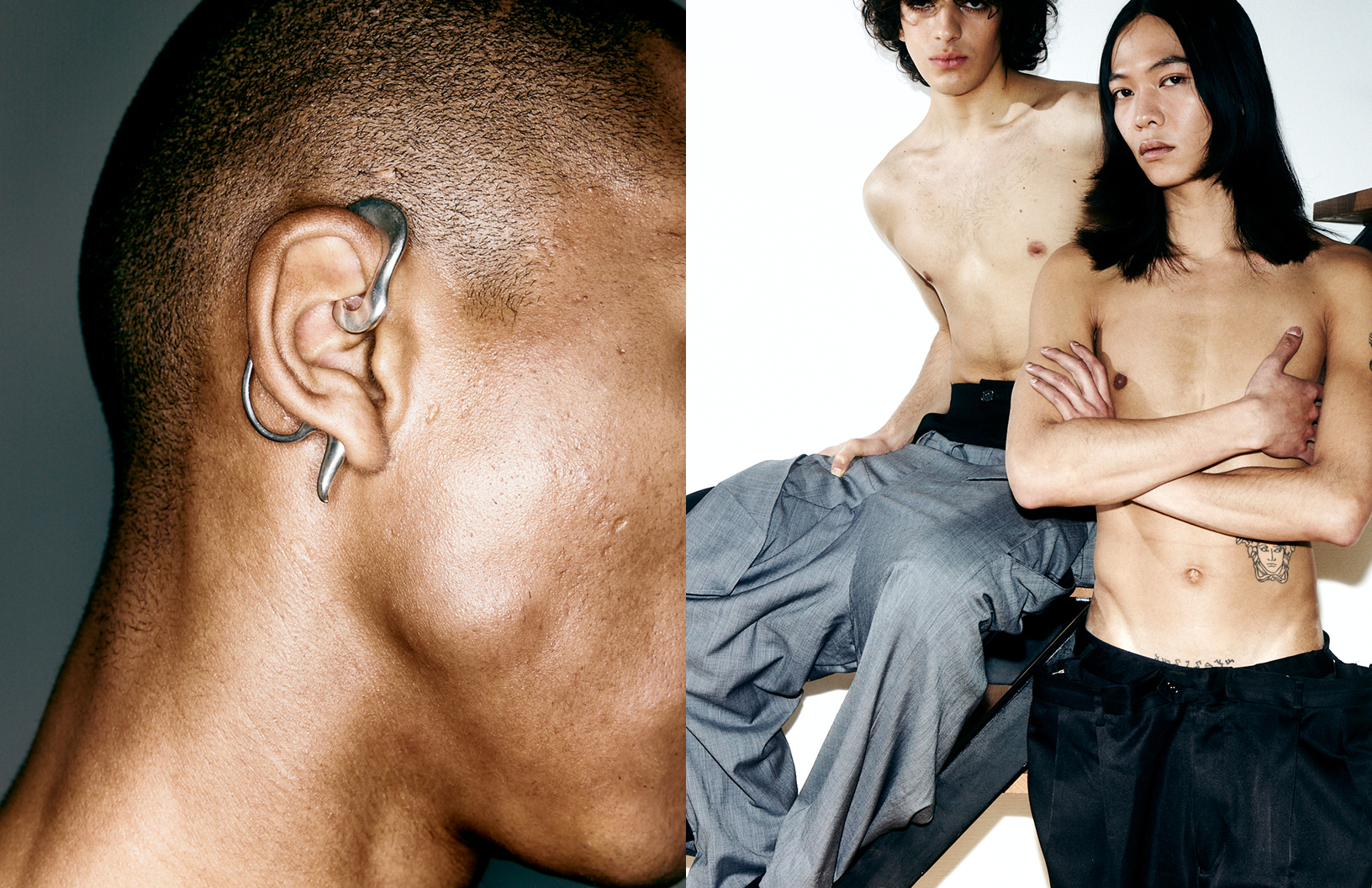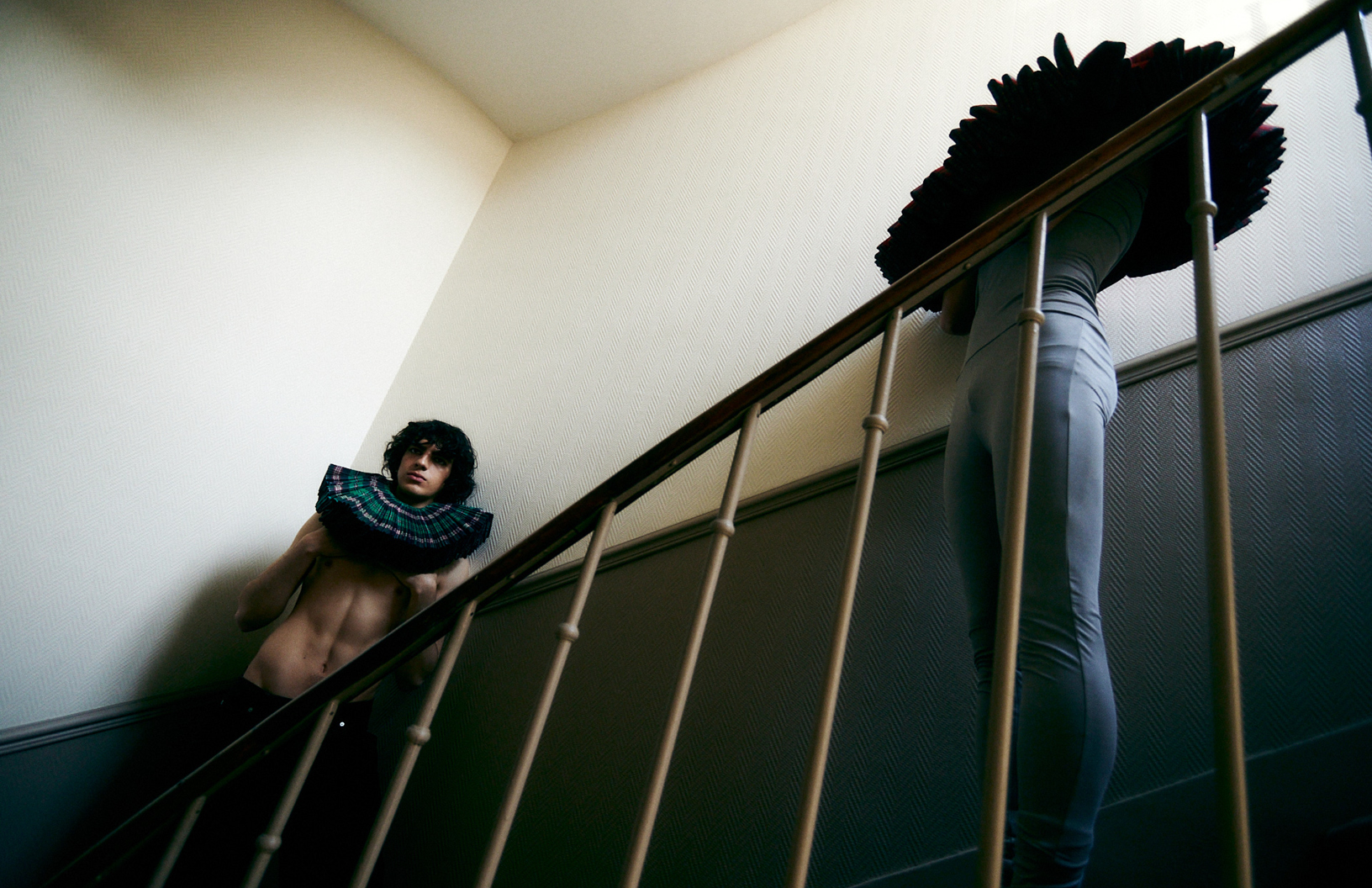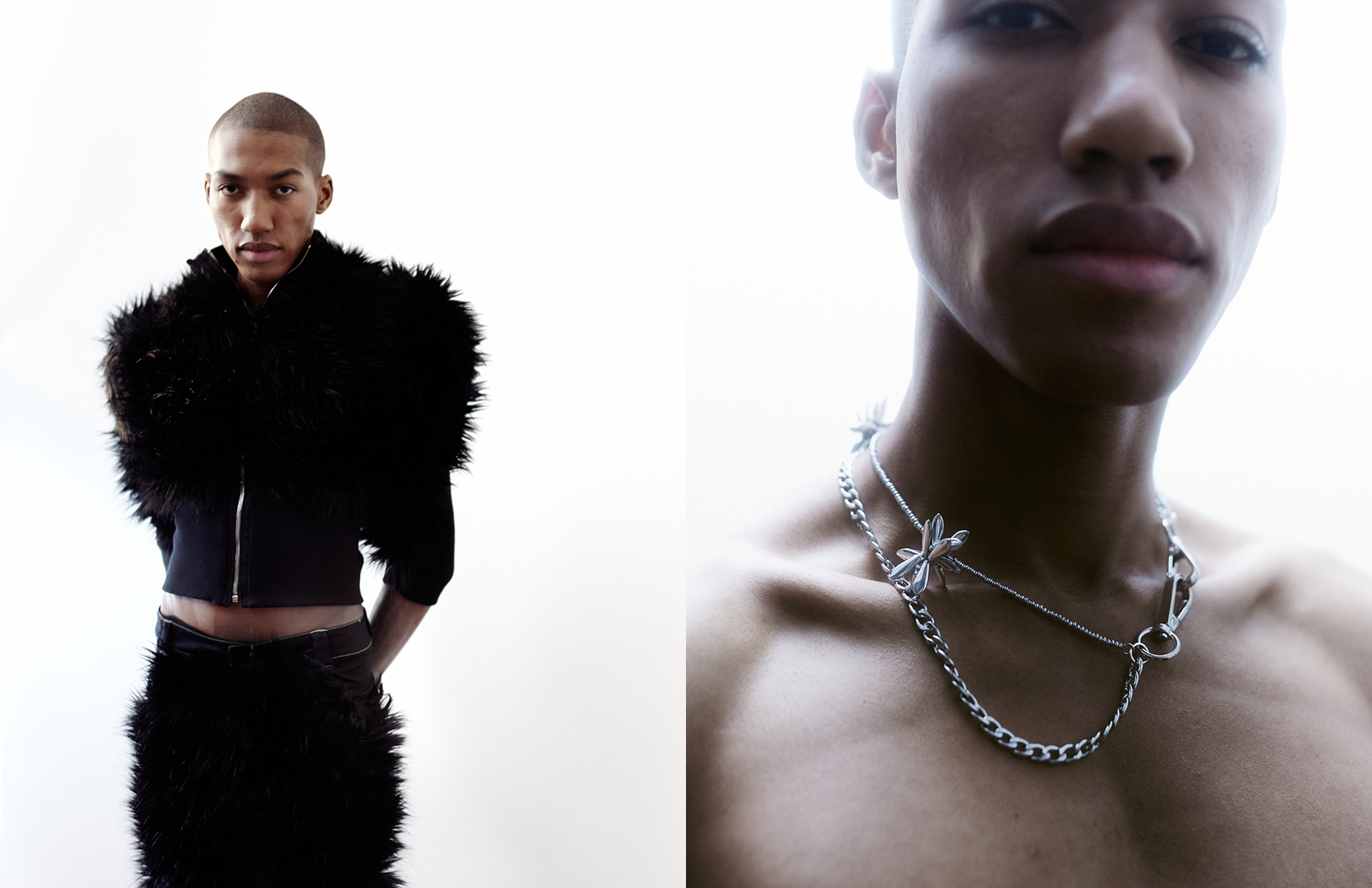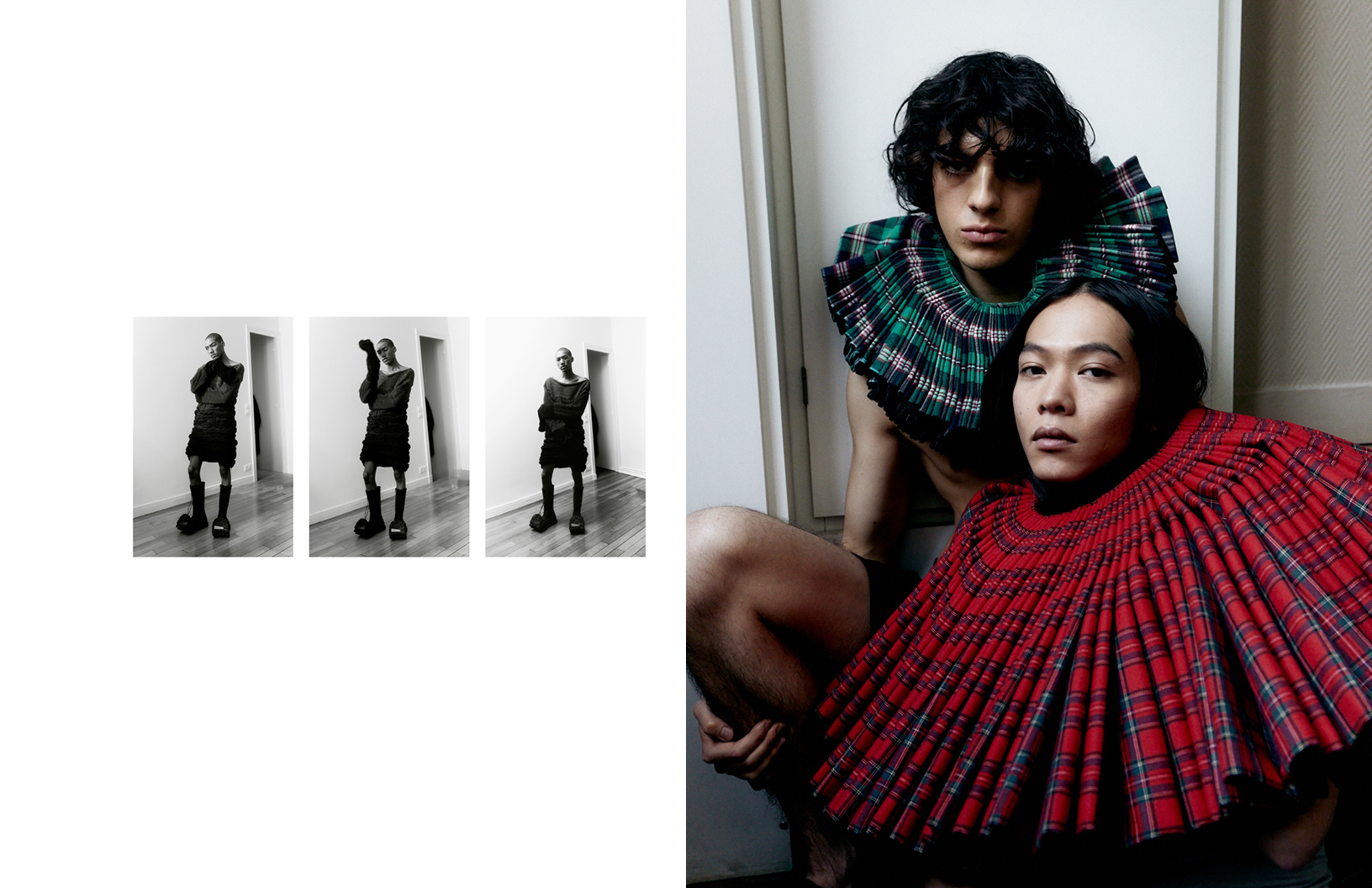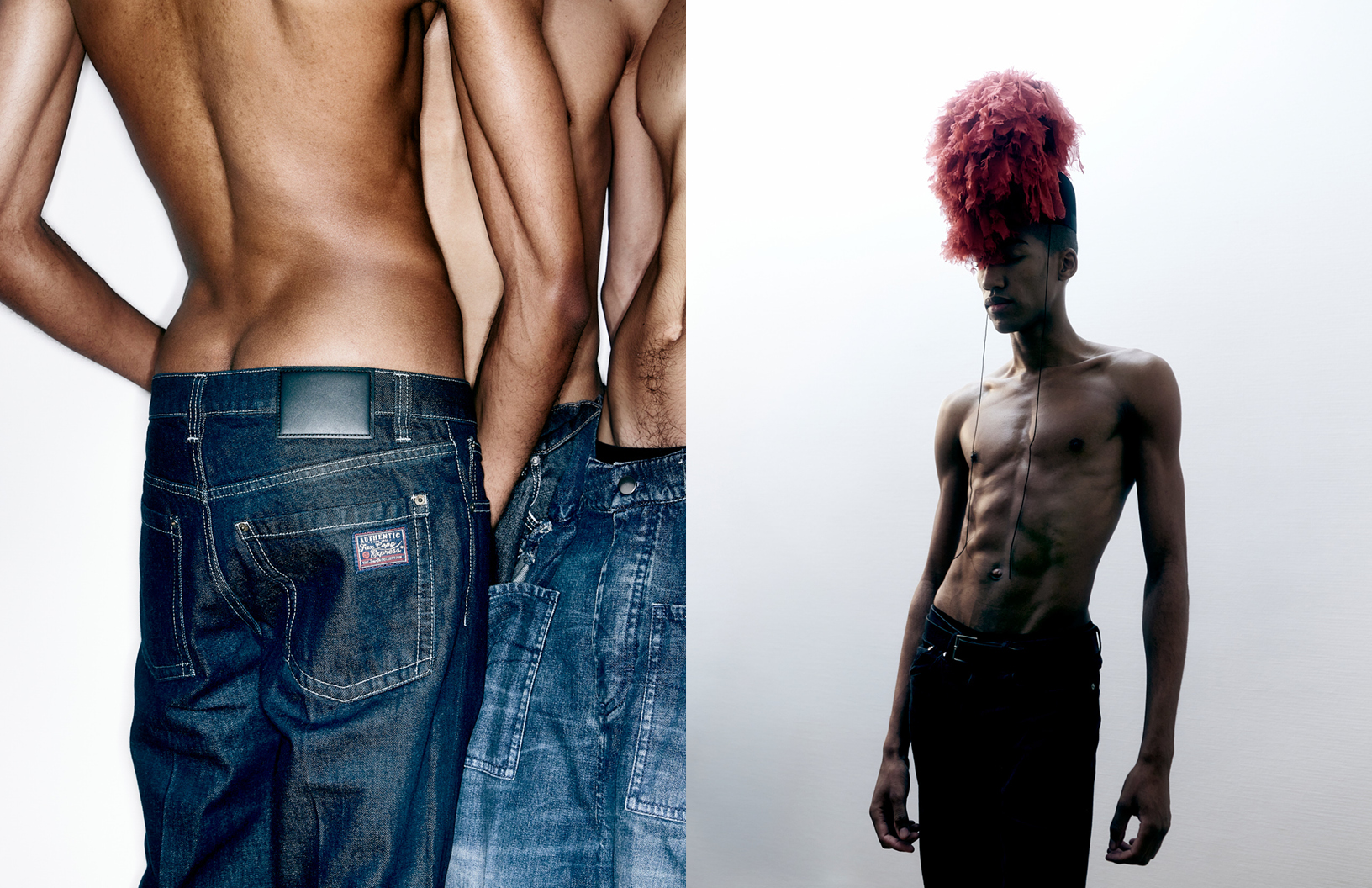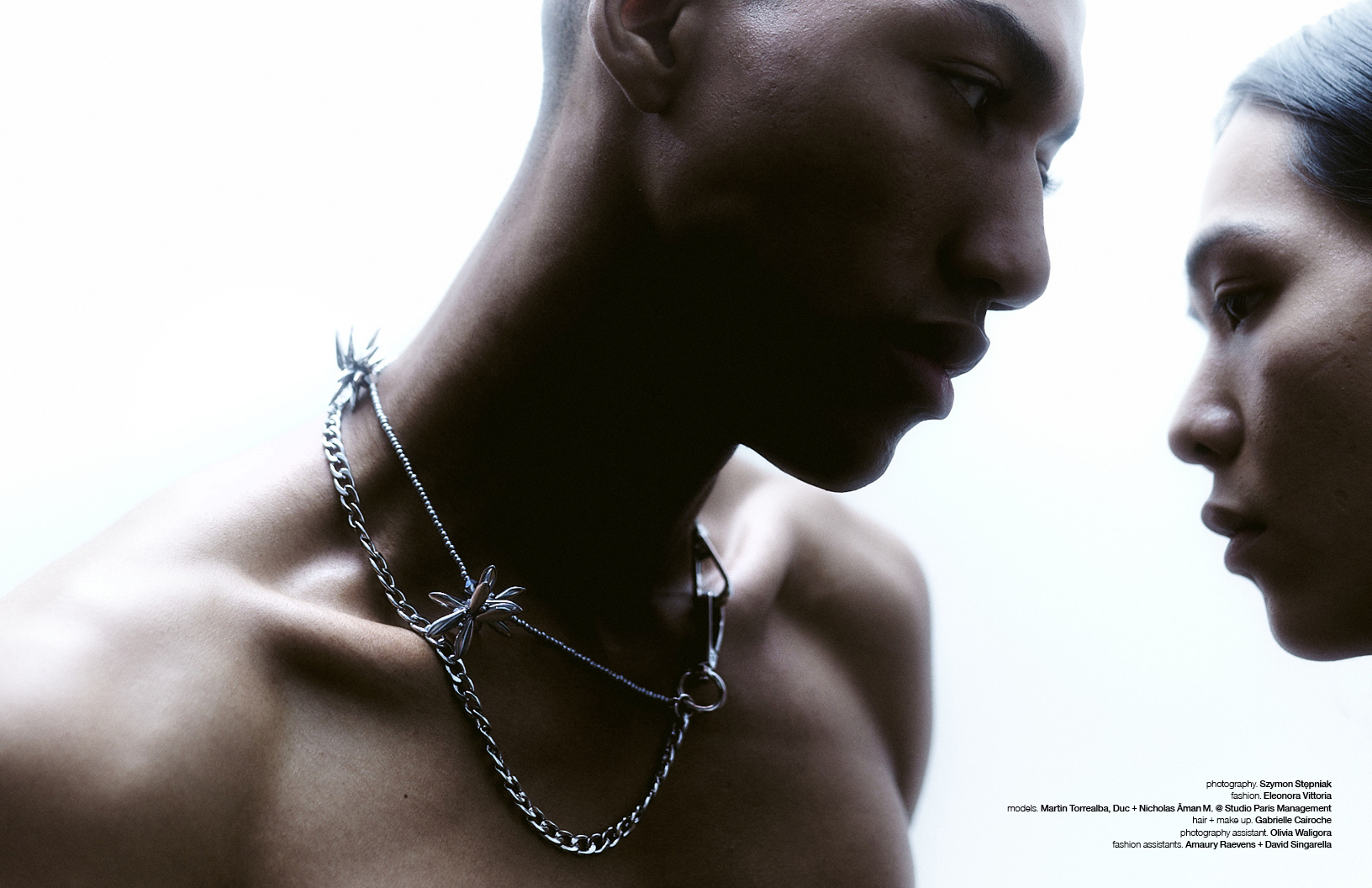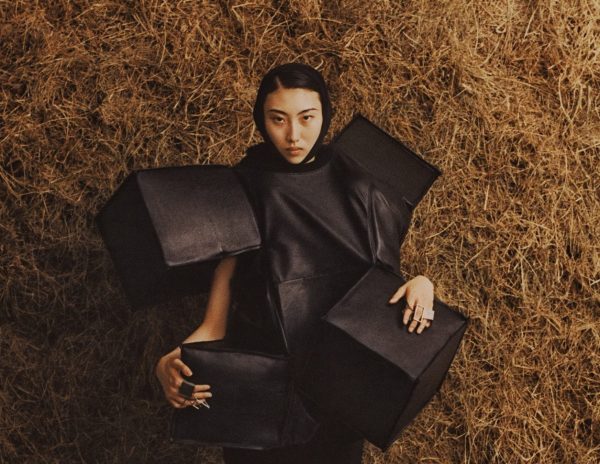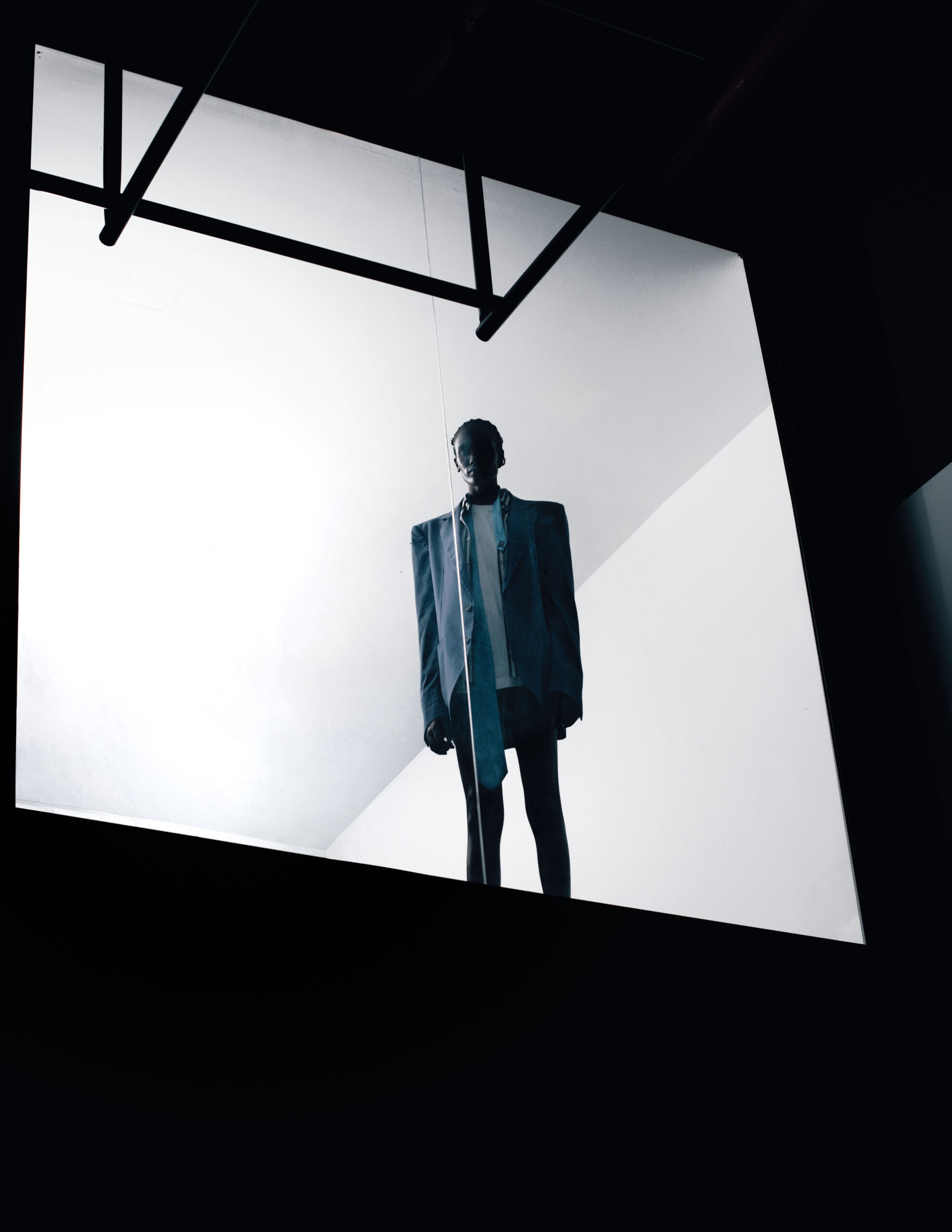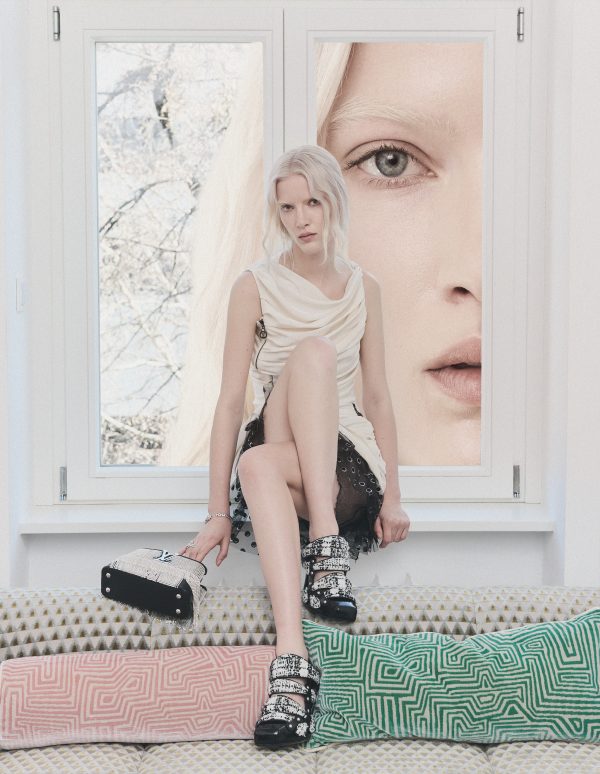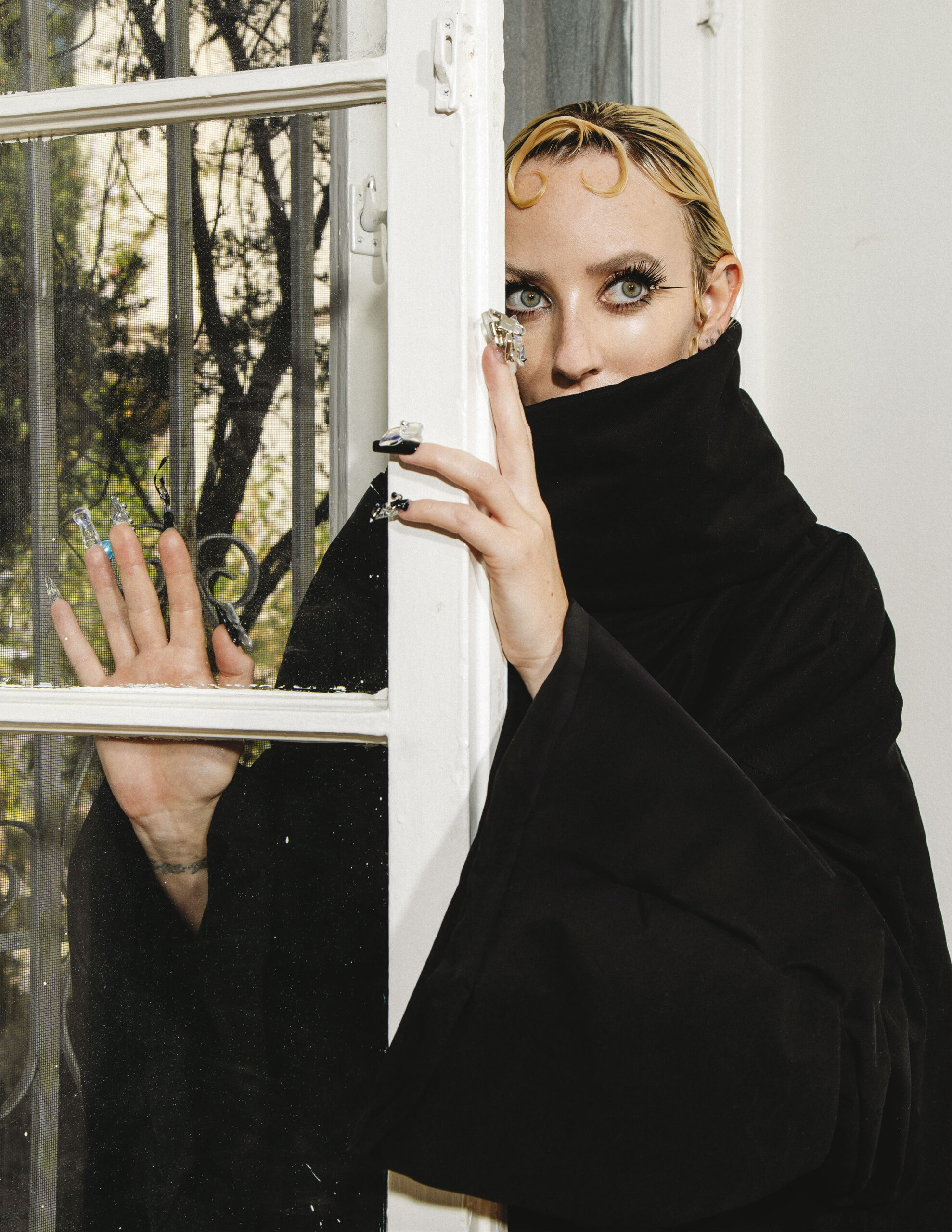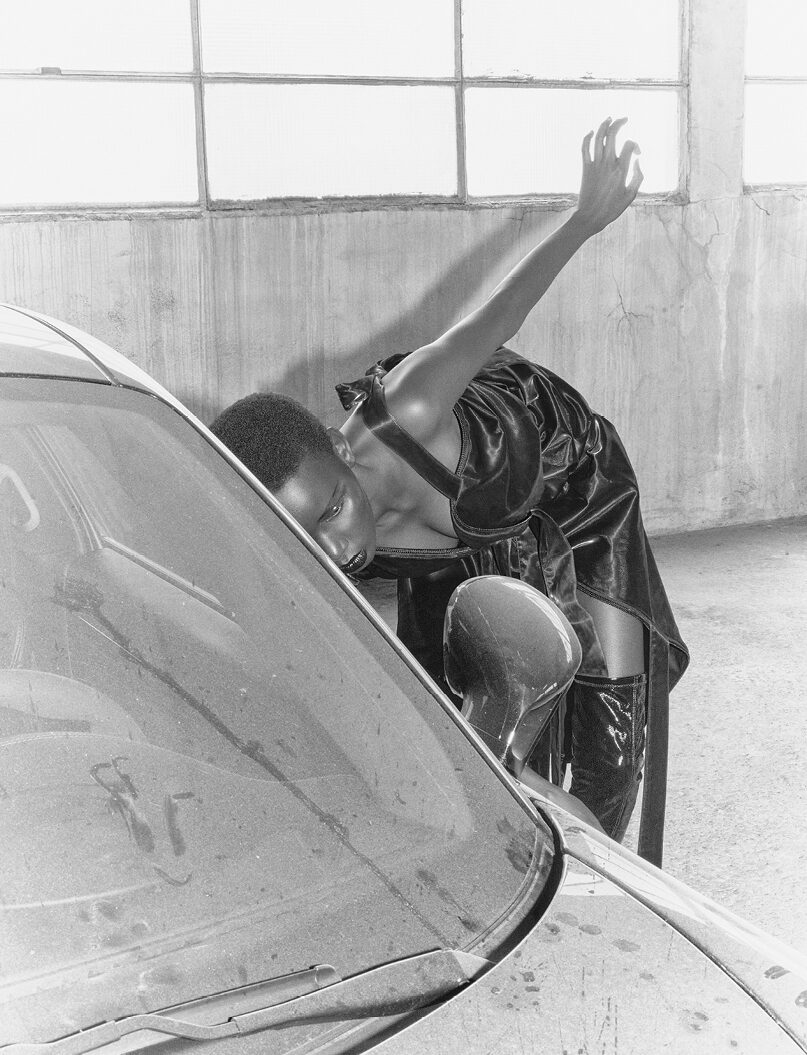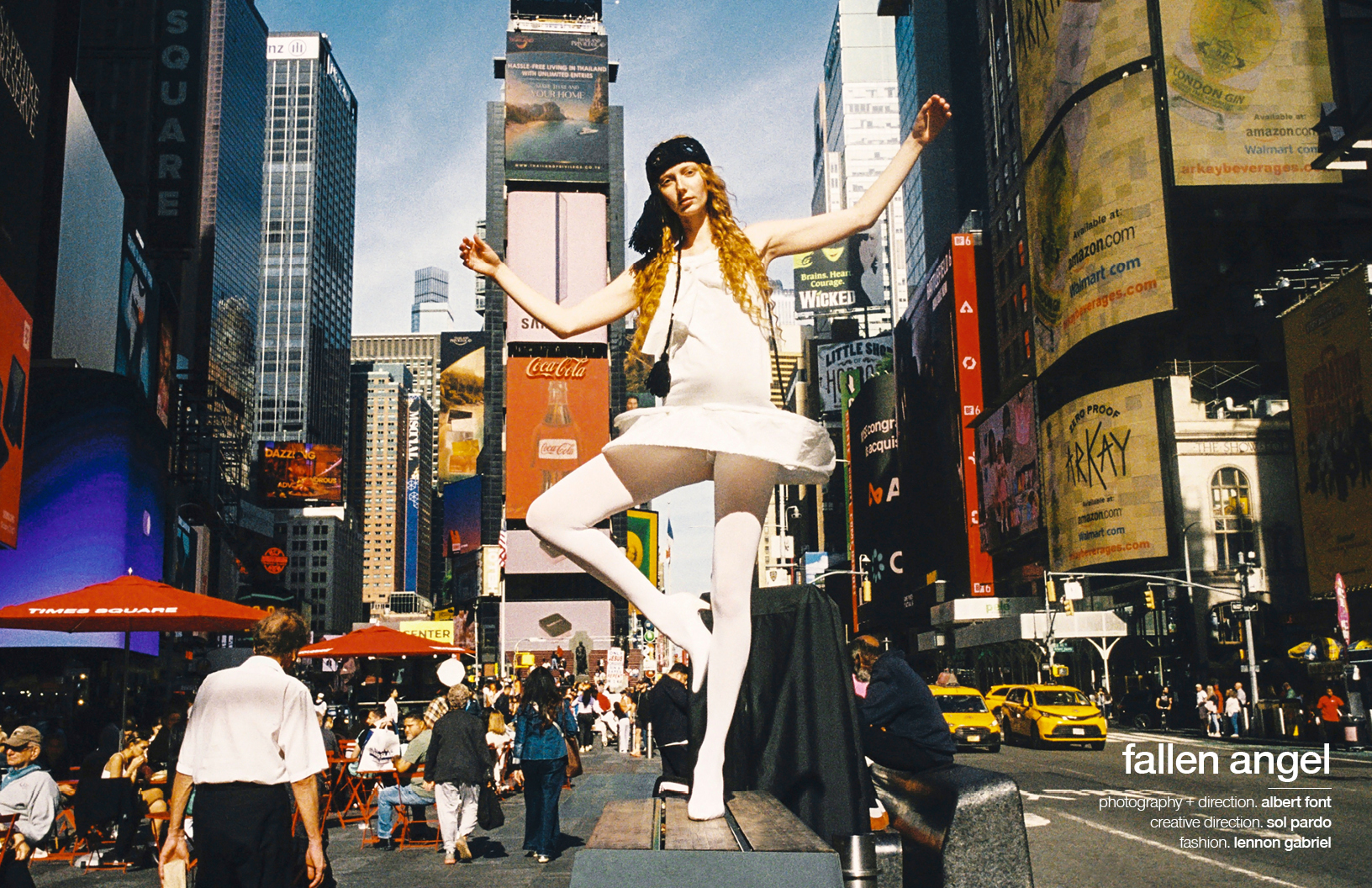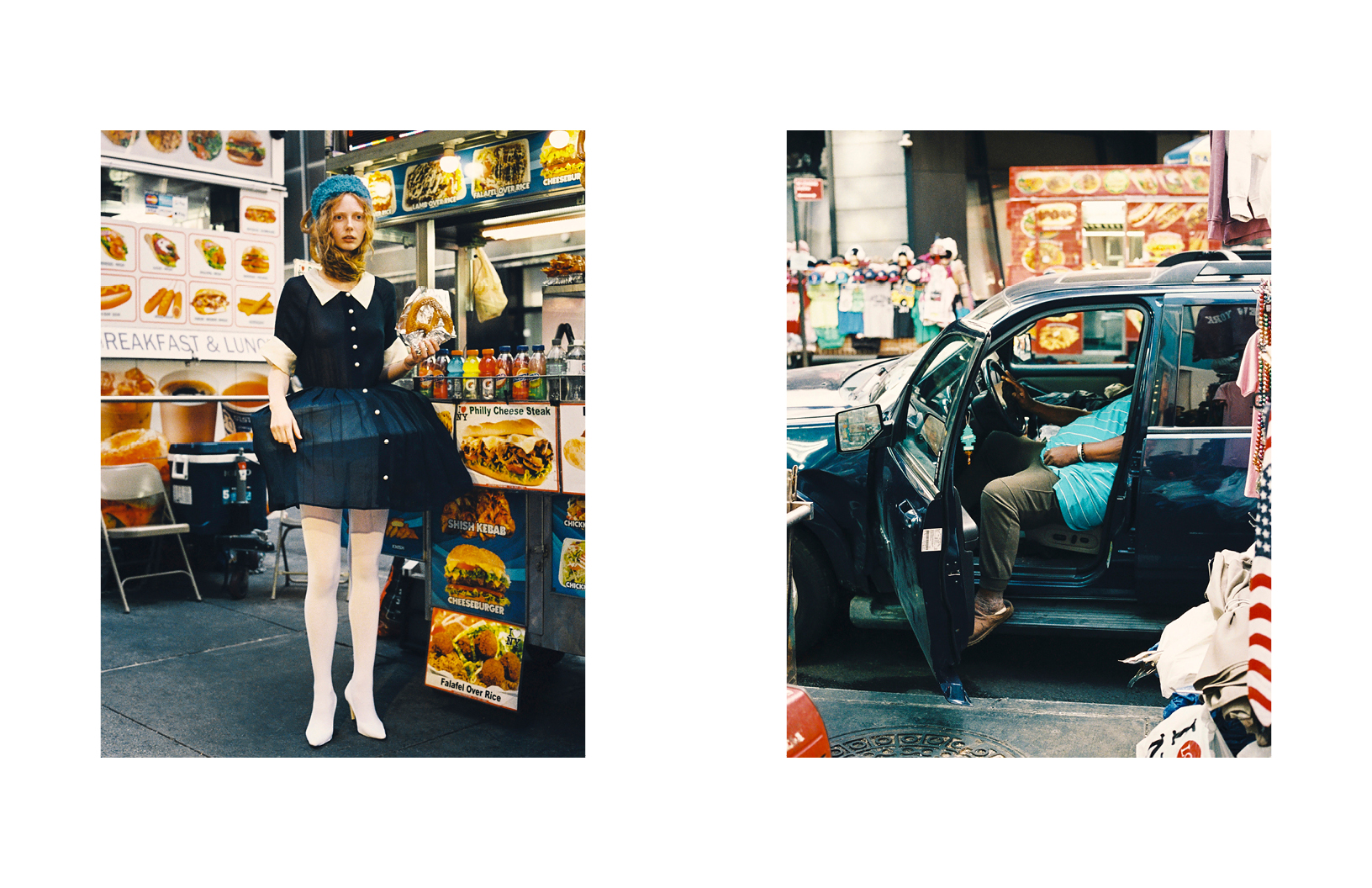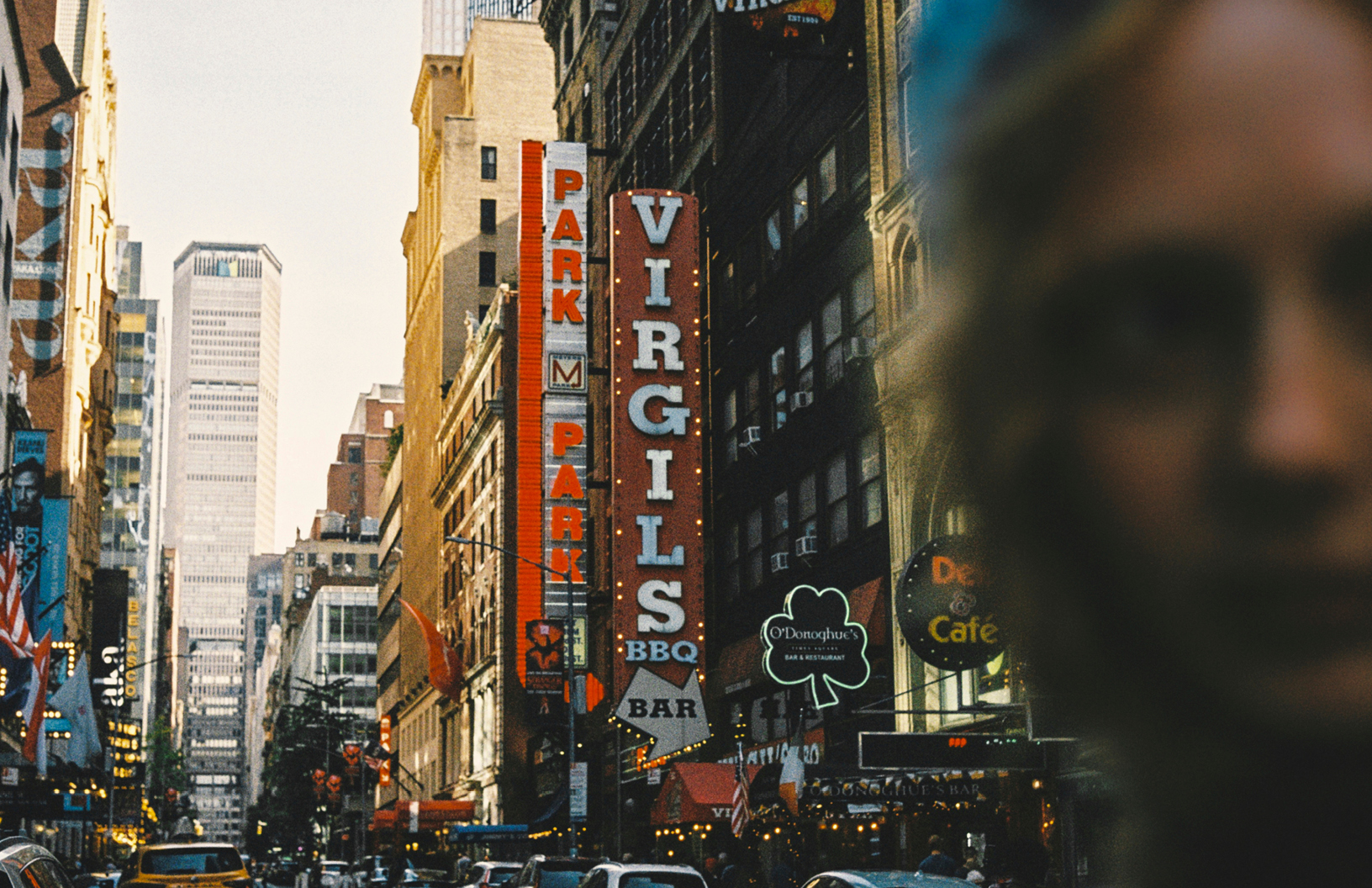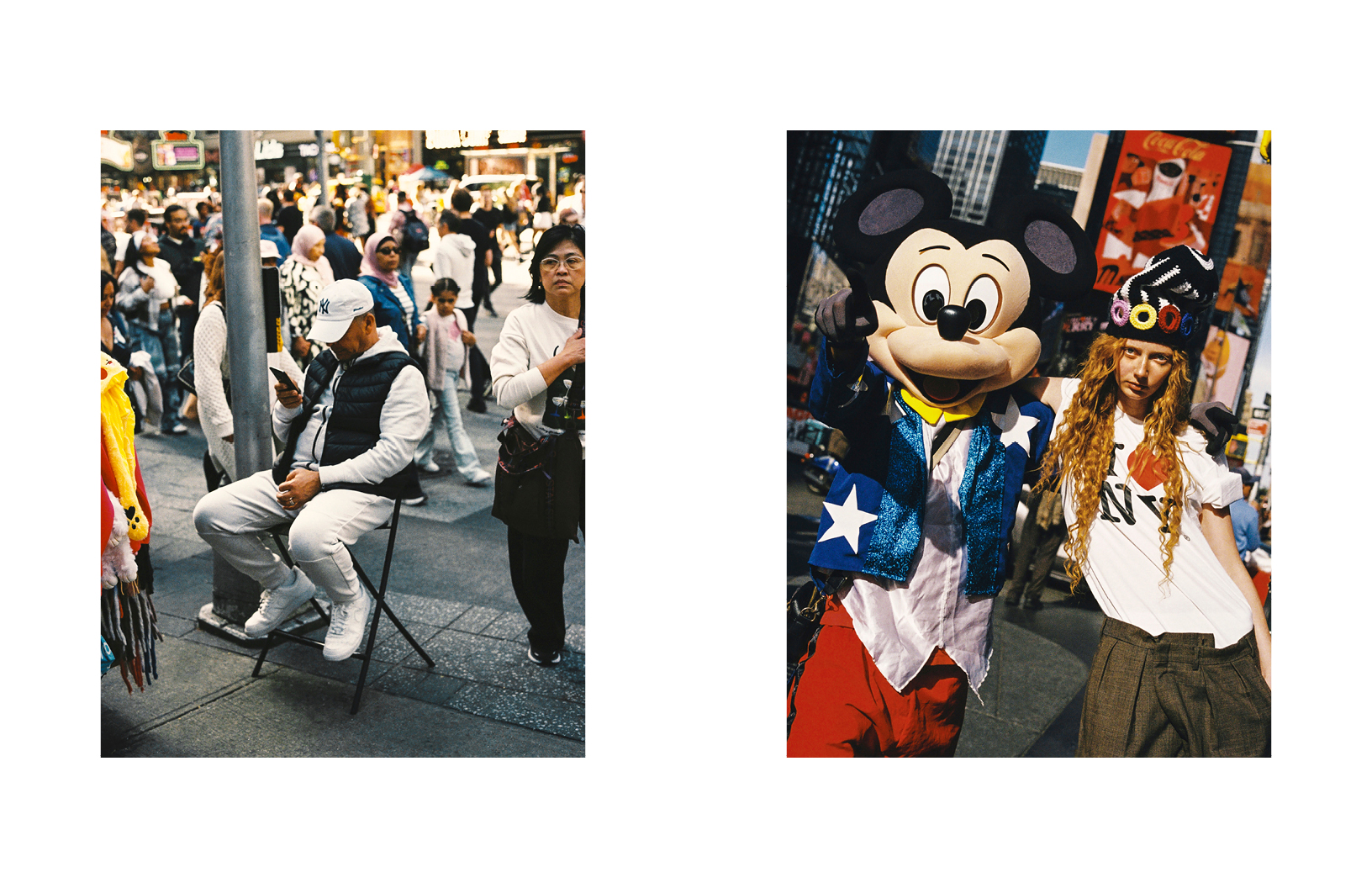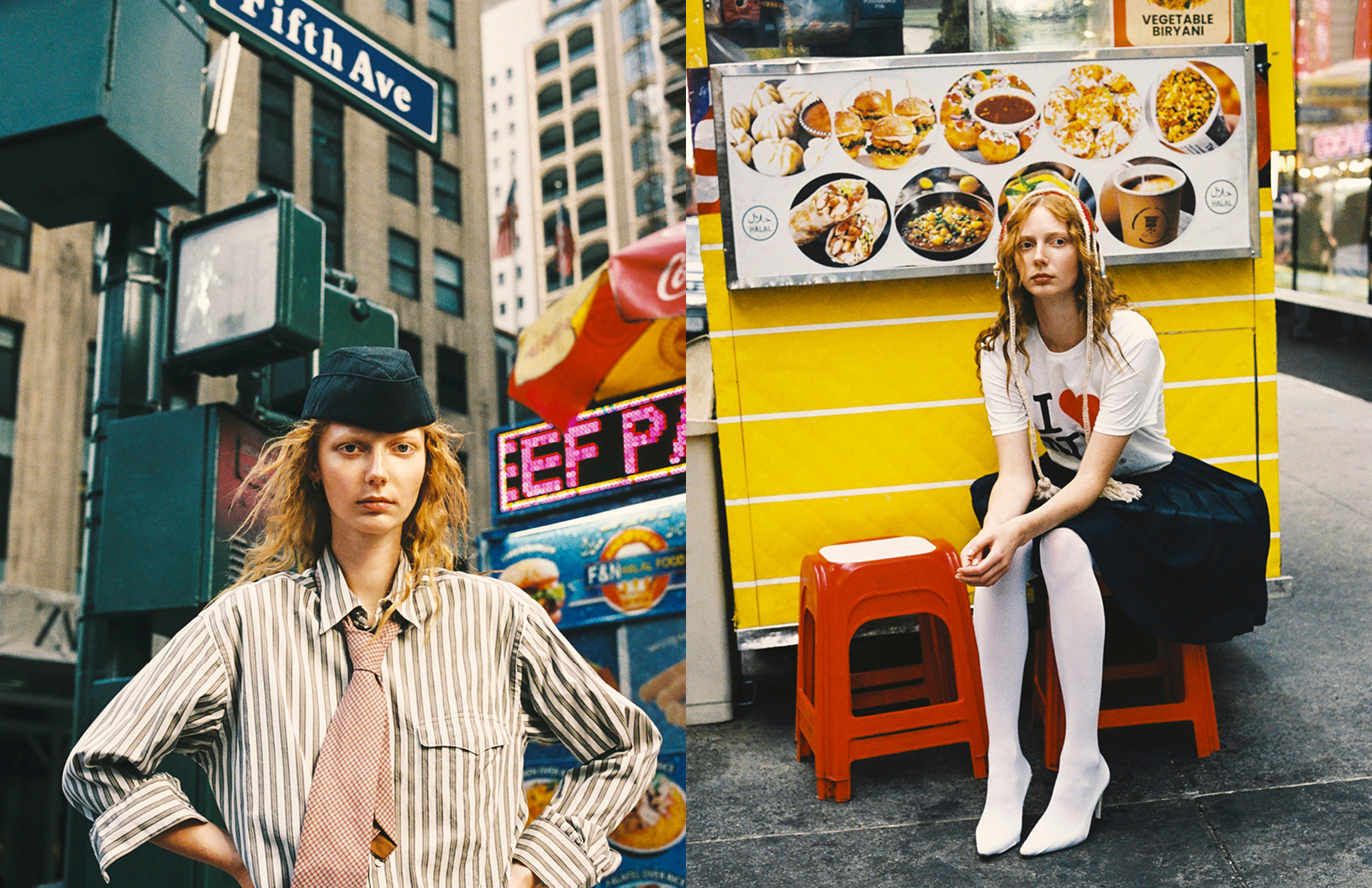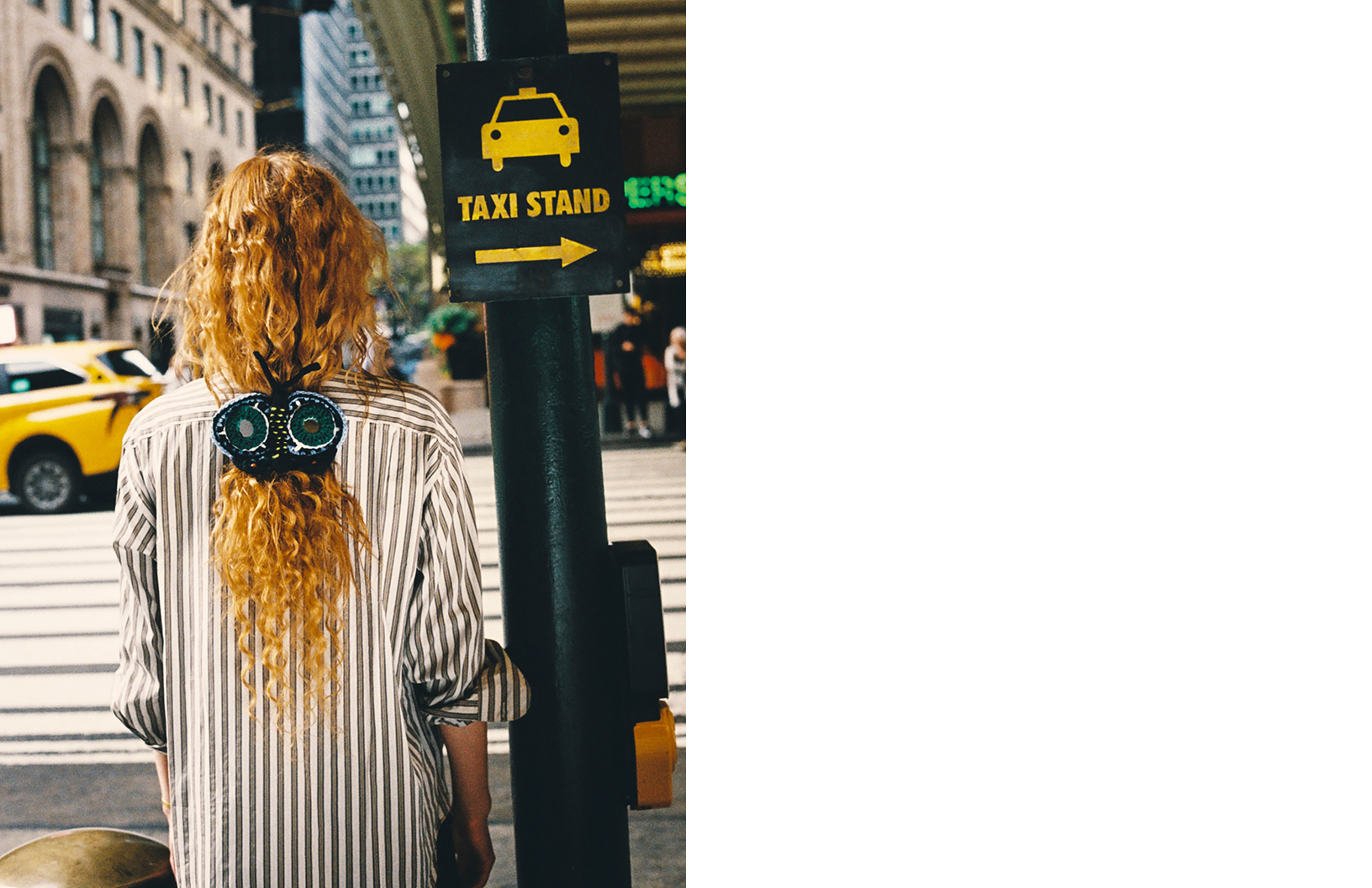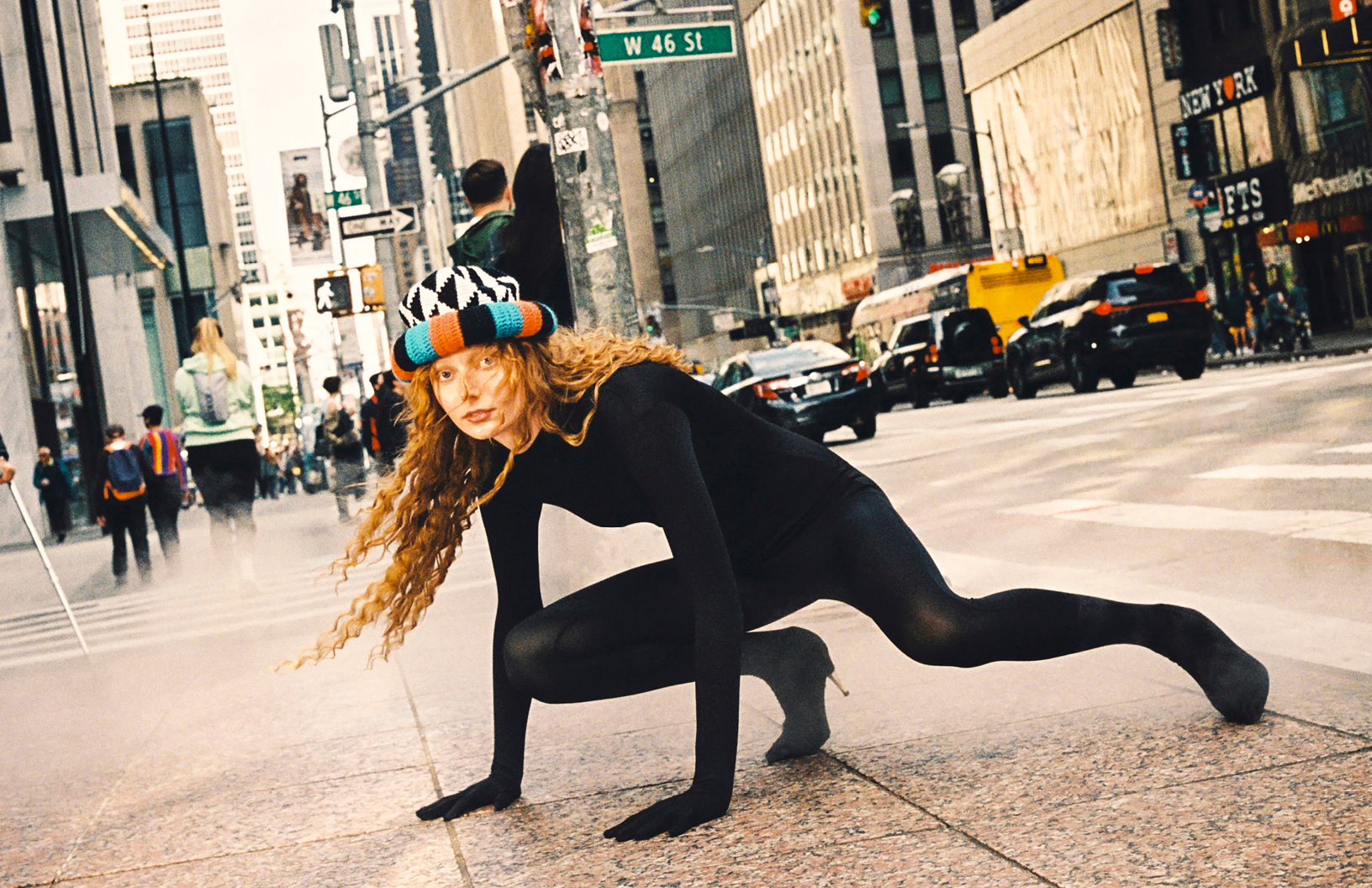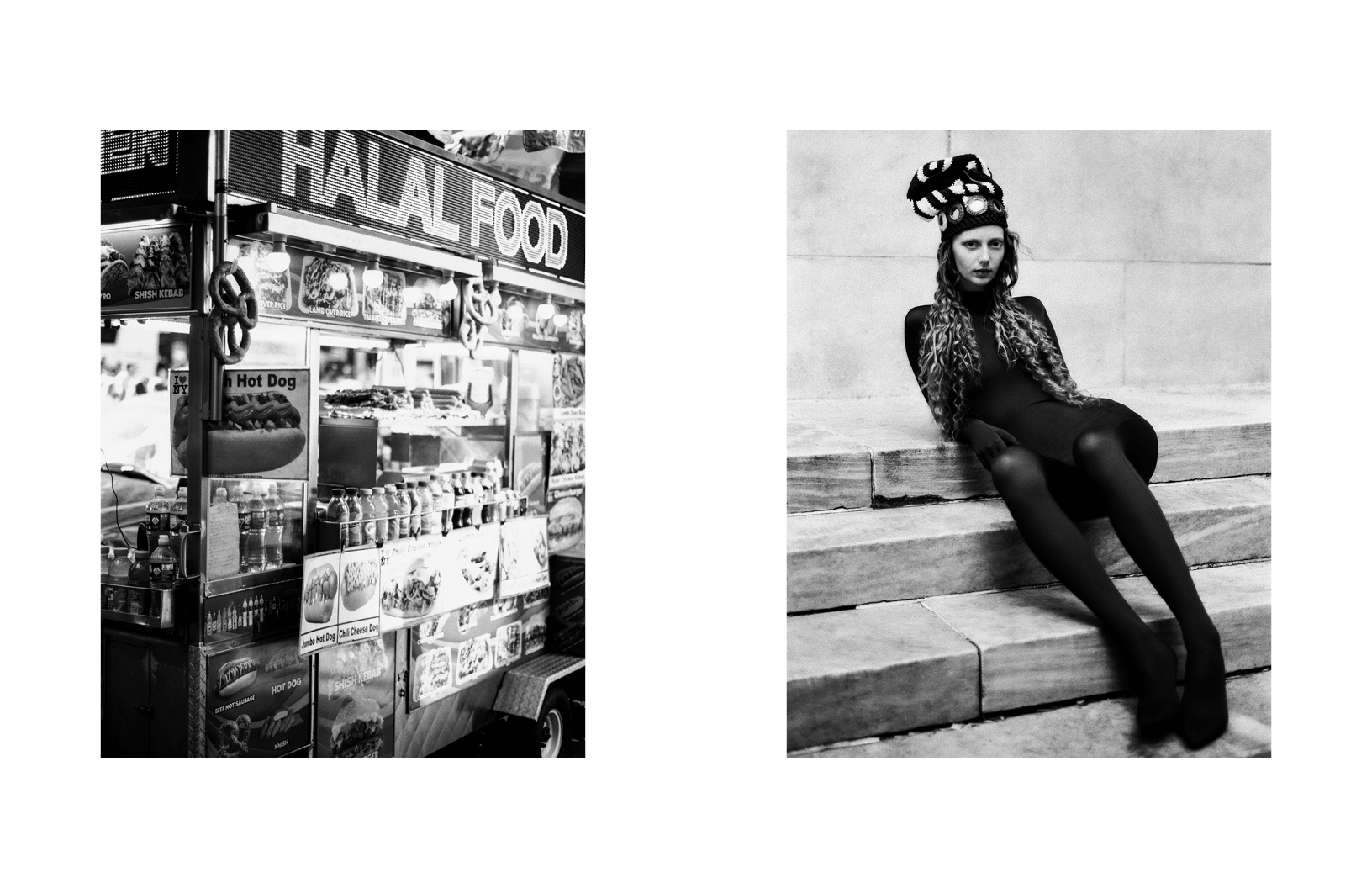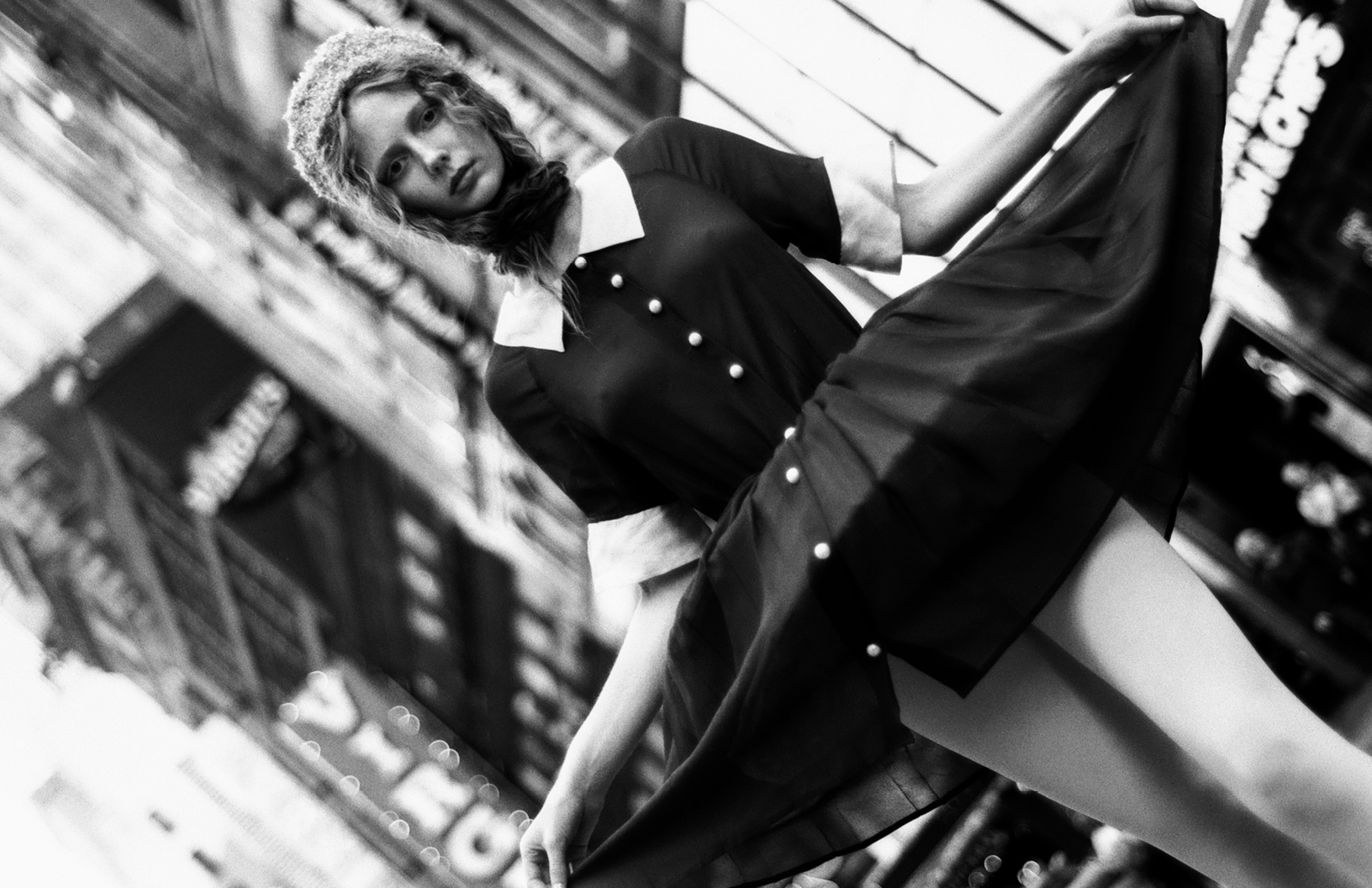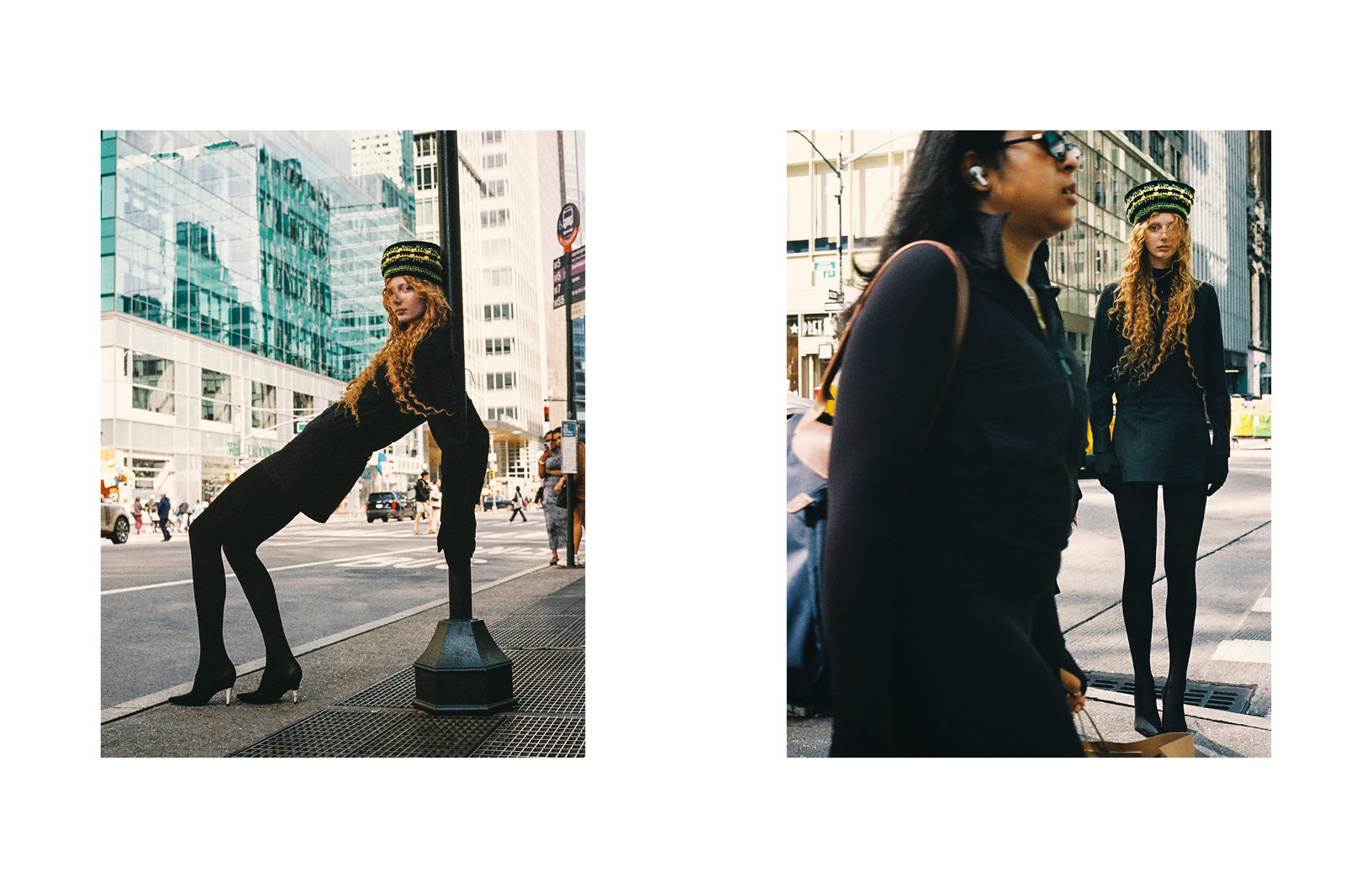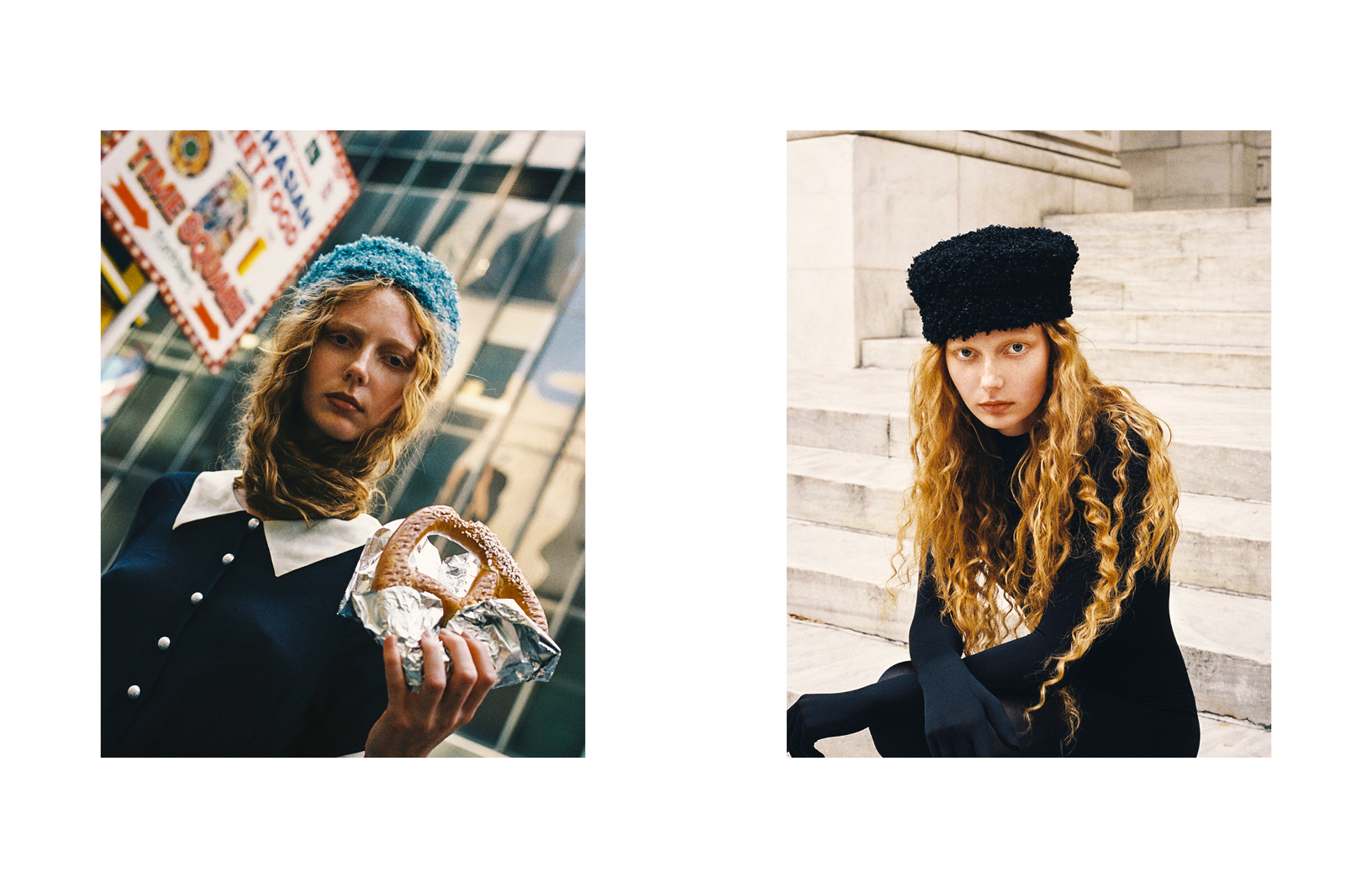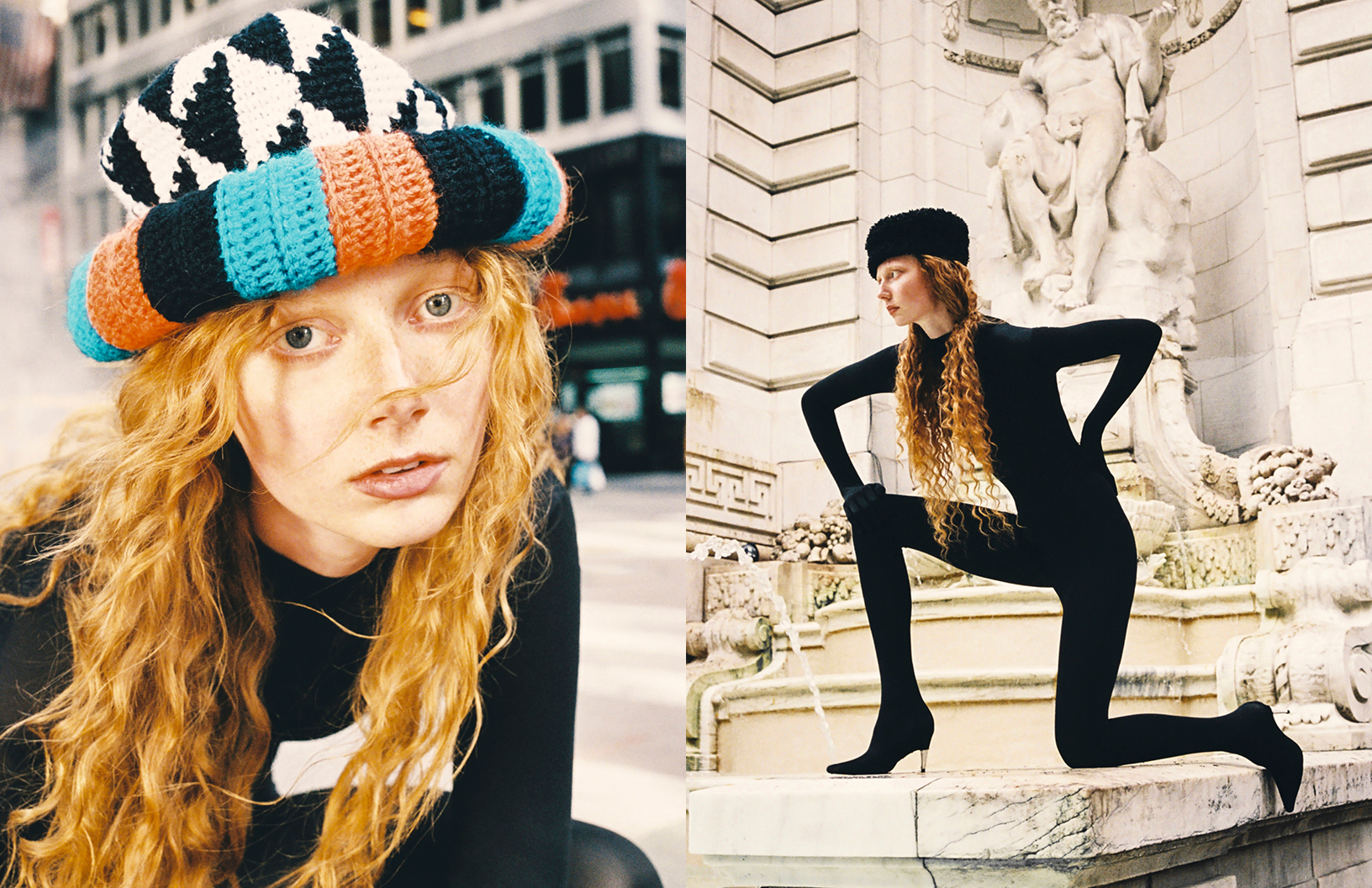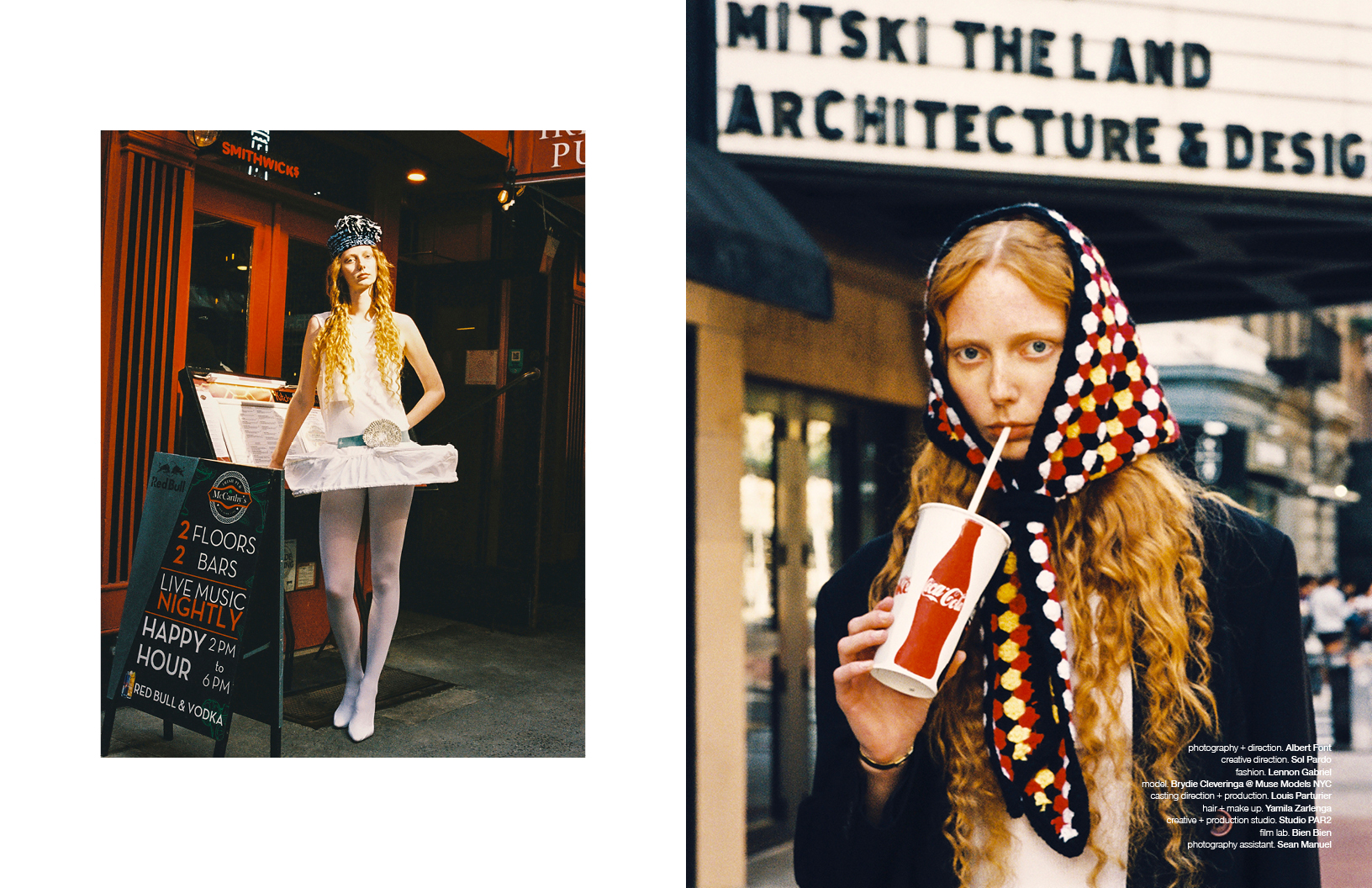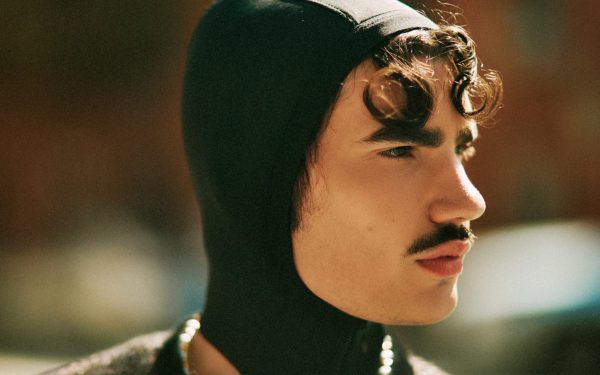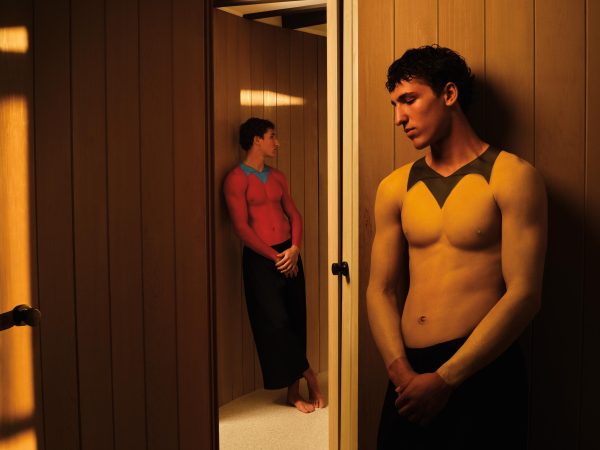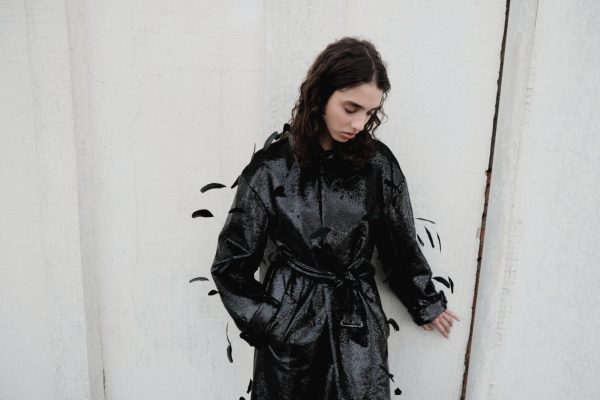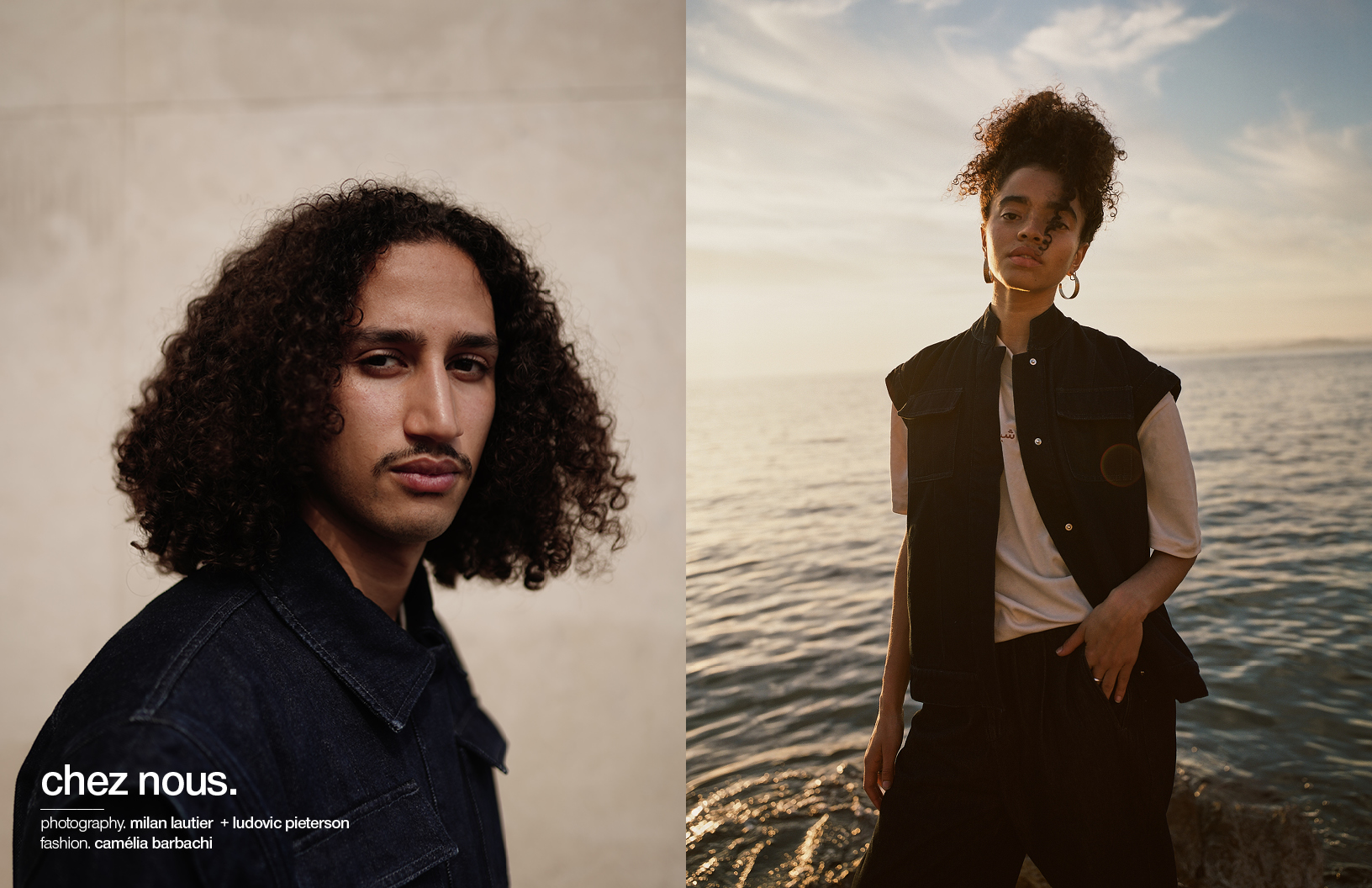
Chez Nous.
La Veste En Denim Jacket
opposite
Chez Nous.
Farah Sleeveless Jacket
Tataouine Tee
Zooter Trousers
By bringing together authentic representation and inclusivity with sustainability, aesthetics and traditions, CHEZ NOUS. understands the importance of creating garments that embrace ever facet of the wearer. Founder Camélia Barbachi is a self-described “bi-national” and aims to ensure every piece of clothing in CHEZ NOUS. collections and designs are as reflective as the people wearing them — including their quirks, origin stories, and where they are from.
Schön! chats with the rising designer about her growth in fashion, how Chez Nous. is implementing sustainability in the brand, and more.
What is the ethos behind CHEZ NOUS.?
The brand’s ethos revolves around two main axes. The first one is about representation and inclusion, especially looking back to my heritage as a France-born Tunisian woman. On the other hand, the brand aims to bring together sustainability, aesthetics and traditions.
You have roots in France and Tunisia, how have these two places inspired your designs and collections as a whole?
I was told several times that my brand feels “biographical.” I mainly find my eclectic inspirations in my roots, background and relationship with identity. As an example, while the ZOOTER pants from the SS22 collection are mostly inspired by the “zoot suits” worn by African-Americans (and most minorities later) at the time of racial segregation, the FARAH sleeveless jacket finds its roots in a traditional Tunisian female garment. In this case, I was very inspired by the concept of effortless sustainability emerging from this piece as Tunisian women change the sleeves of their traditional vests following seasons, fashion trends etc. In a nutshell, I love to play with traditional references and integrate them into very contemporary garments.
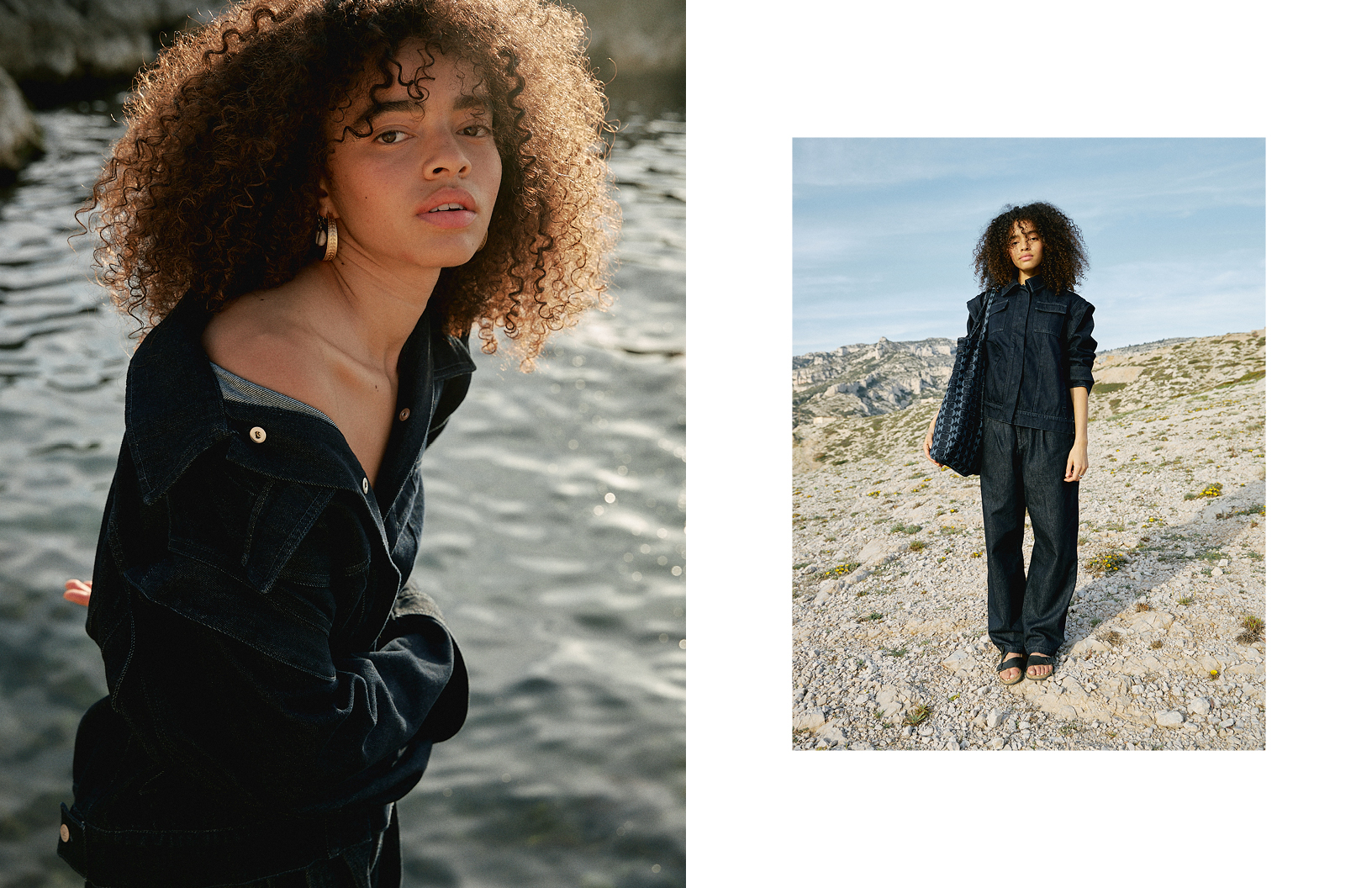
Chez Nous.
La Veste En Denim Jacket
Zooter Trousers
opposite
Chez Nous.
La Veste En Denim Jacket
Zooter Trousers
Le Kebir Bag
The brand celebrates the “in-betweenness” of existing in two places and having a plural identity. Why does that resonate with you as a designer?
As a North-African woman growing up in the West, I was never able to identify as a public person. Simultaneously, in Tunisia, bi-nationals like me are called the “chez nous là-bas” (back home) because they refer to their other country, often France, as their home. My work as a designer is essentially inspired by the plurality of my identity. I try not to be influenced by fashion trends but rather find the inspiration in that “in-betweenness” and translate it into minimalistic yet unique staples that people will want to wear for many years.
CHEZ NOUS. ensures that garments are made ethically — why is that so important to you as a designer?
As we all know today, the fashion industry has a massive impact on the environment but also on the human beings across the globe that make the garments. As a designer, I think it is my responsibility to ensure the garments I design are produced ethically. As a matter of fact, my goal is to not only produce sustainability but actually have a positive impact by working with certified workshops and integration workshops that contribute to the social and financial emancipation of the workers in both Tunisia and France.
What are some of the ways your brand is helping to create sustainable fashion and ease the emission impact of the supply chain?
CHEZ NOUS. commits to minimise its carbon footprint from the choice of raw materials to the item’s end of life. Our fabrics are carefully chosen to be either (1) Organic: GOTS-certified organic cotton for example ; (2) Sustainable: innovate wood-based fabrics, virgin merino wool ; (3) Recycled & Upcycled – In addition to natural and low-impact materials, we use recycled materials such as recycled polyamide or upcycled fabrics to which we give a new life. The manufacturing partners selected are labelled GOTS and SA8000. These certifications guarantee fair working conditions and wages, but also respect for the environment through the banning of toxic substances, the treatment of wastewater and the minimization and recycling of pre-consumption waste. We also partner with a zero-waste knitting workshop in the North of France which allows us to reach a 0-level pre-consumption waste. Finally, all our packaging is made out of GRS-certified recycled materials and is recyclable.
For the brand, spotlighting minorities is imperative — from people of colour to the elderly. The fashion industry isn’t as representative as it could be. With CHEZ NOUS. and other brands committing to representation, there can be real change. Do you feel empowered as a young designer to create change?
I do feel very much empowered to create change, especially when receiving clients’ or followers’ messages telling me they are finally able to identify and recognize themselves through a brand. Ultimately, I believe fashion is about feeling good about yourself and I am happy to be able to offer that. I think the new generations want more diversity and more representation and this is exactly what I aim to deliver. There’s a slow but real shift that’s happening in fashion at the moment and I am very excited about it.
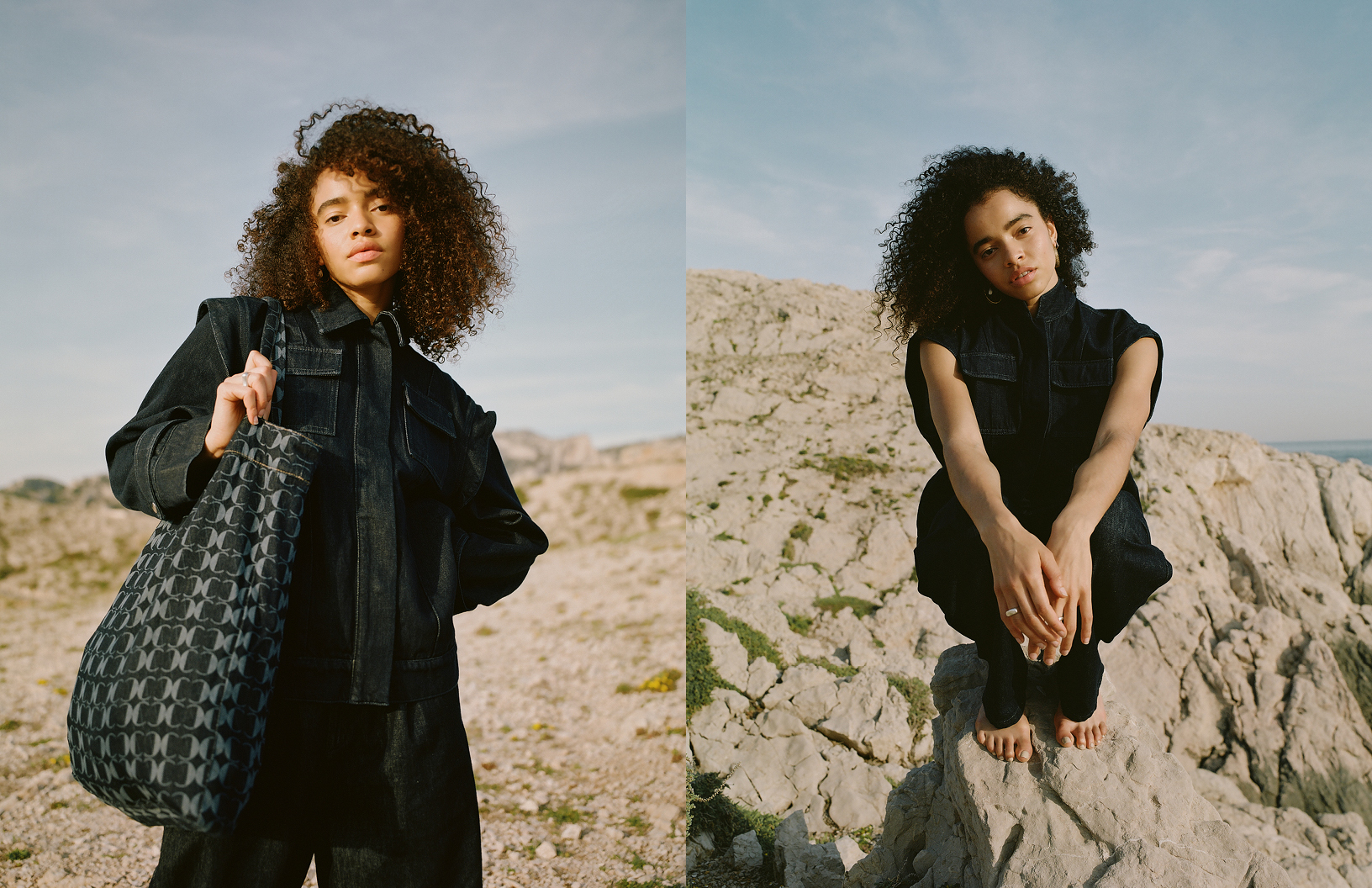
Chez Nous.
La Veste En Denim Jacket
Zooter Trousers
Le Kebir Bag
opposite
Chez Nous.
Farah Sleeveless Jacket
Zooter Trousers
Are there specific artists or craftsmen that have influenced your work?
To be honest, although there are many designers who I find really inspiring, I can’t really say they have influenced my work. As a Tunisian, Azzedine Alaïa is obviously one of my favourite designers but my two muses are my grandmother and my mother as they both have their very own approach to fashion. When I was young my grandma used to take me to the local dressmaker in Tunisia to make me tailored sets. When it comes to my mom, I always find myself digging in her ’90s wardrobe to find inspiration and trying on her old clothes. I feel very inspired by the memories of her non-conformism when it comes to fashion.
When making your designs, do you find inspiration by looking back to specific memories and the clothes you were wearing during that time?
I do feel inspired by personal memories and the clothes related to those memories. I am also very inspired by history: when I create a collection, I like to dig into fashion history books to understand the origins of certain garments and how they can connect to the brand’s narrative.
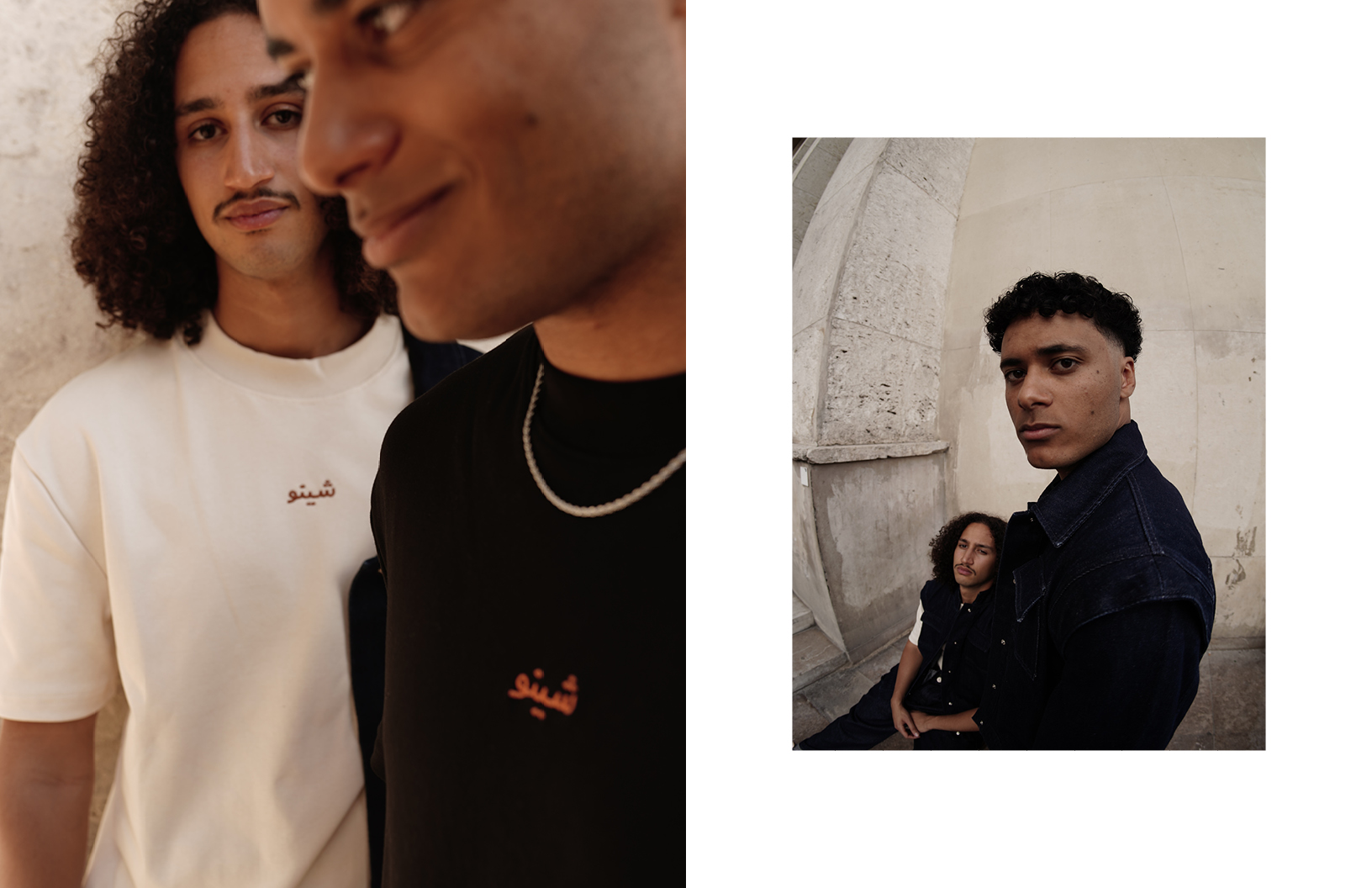
left to right
Chez Nous.
Tataouine Tee – Natural
Chez Nous.
Tataouine Tee – Black
opposite
left to right
Chez Nous.
Farah Sleeveless Jacket
Chez Nous.
La Veste En Denim
As a young designer, what are some of the fashion industry’s most difficult and rewarding aspects?
Obviously, fashion is one of the most saturated and competitive industries. It’s difficult to be visible without massive budgets as an emerging brand. However, I feel very grateful for the brand’s development in less than a year. I feel like people are genuinely connecting with the brand, regardless of their backgrounds and this is what makes me want to work harder every day.
How do you see the CHEZ NOUS. label growing and evolving in the future?
Basically, I will continue what I have been doing on a larger scale. I want to develop physical sales as we’ve noticed the garments work really well physically: customers like to touch the fabrics and feel the quality of the pieces. In short, more stockists not only in Europe but also across the world.
Lastly, what do you hope those that wear CHEZ NOUS. designs feel or think when wearing the clothing?
What I hope when people wear CHEZ NOUS. is that they feel comfortable, and empowered, at home.
To view the entire Chez Nous. collection, visit cheznous-store.com.
photography. Milan Lautier + Ludovic Pieterson
fashion. Camélia Barbachi
models. Nassim Ahriz, Theo Placktor + Ambre Gomis


Schön! Magazine is now available in print at Amazon,
as ebook download + on any mobile device


